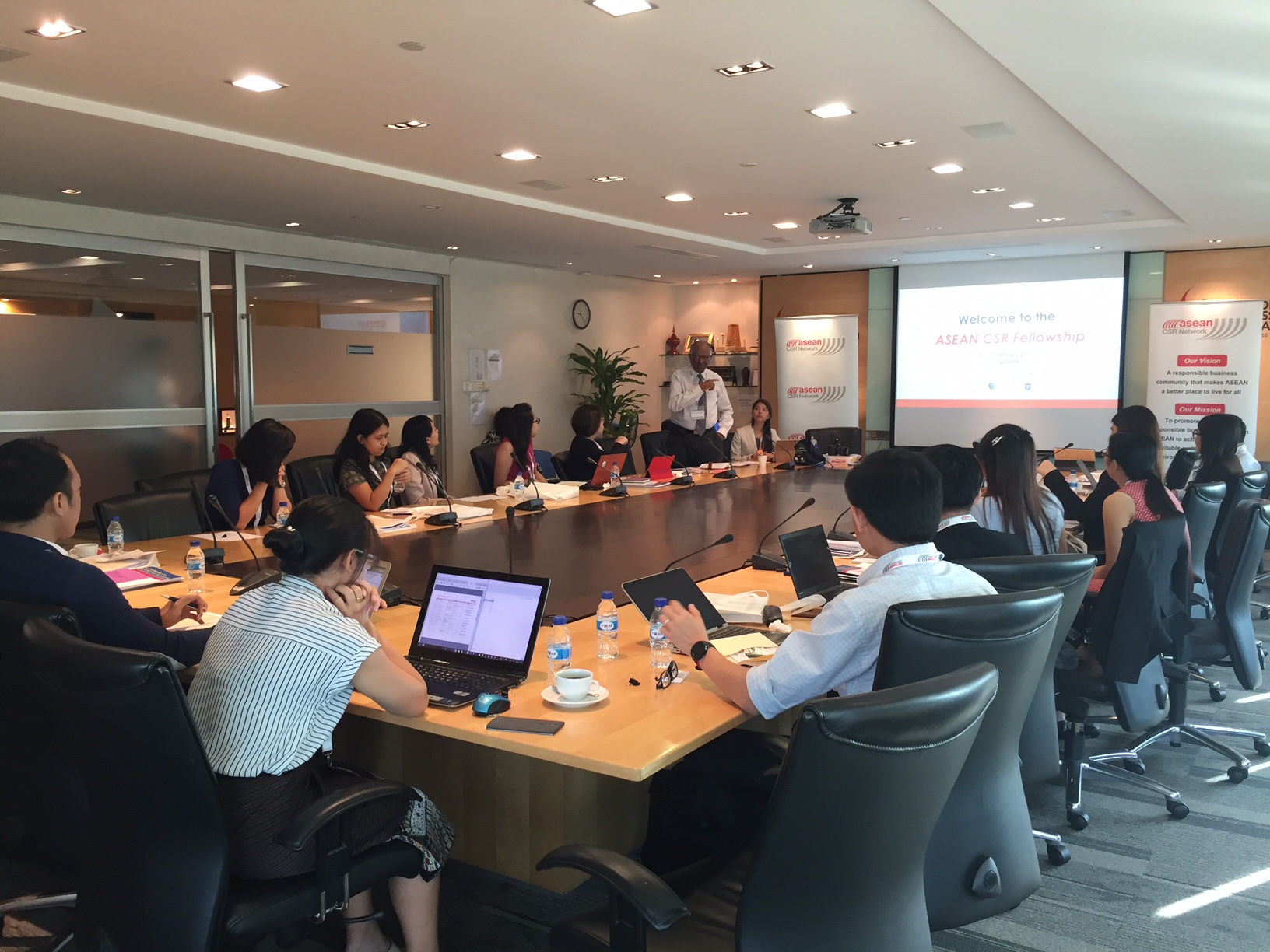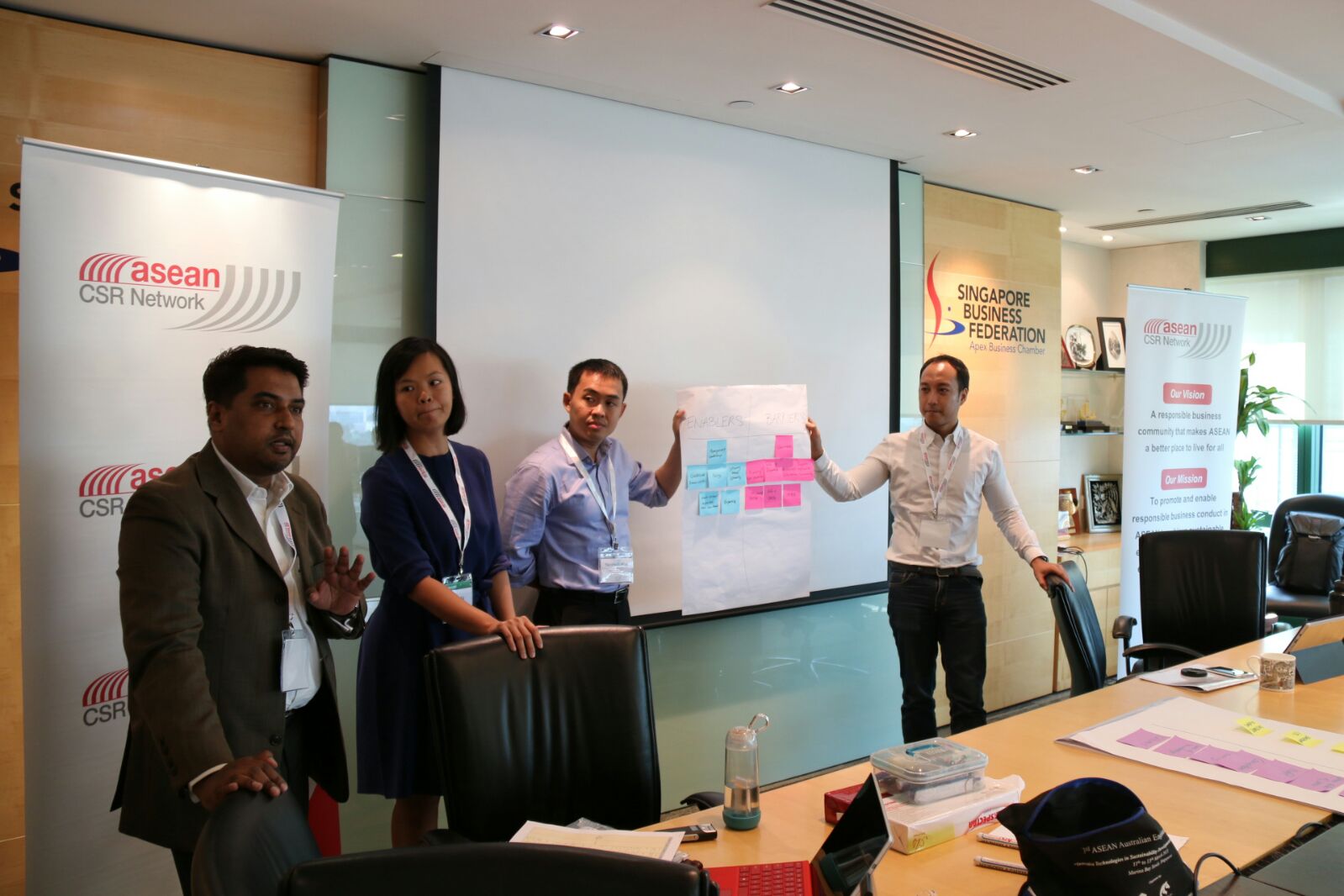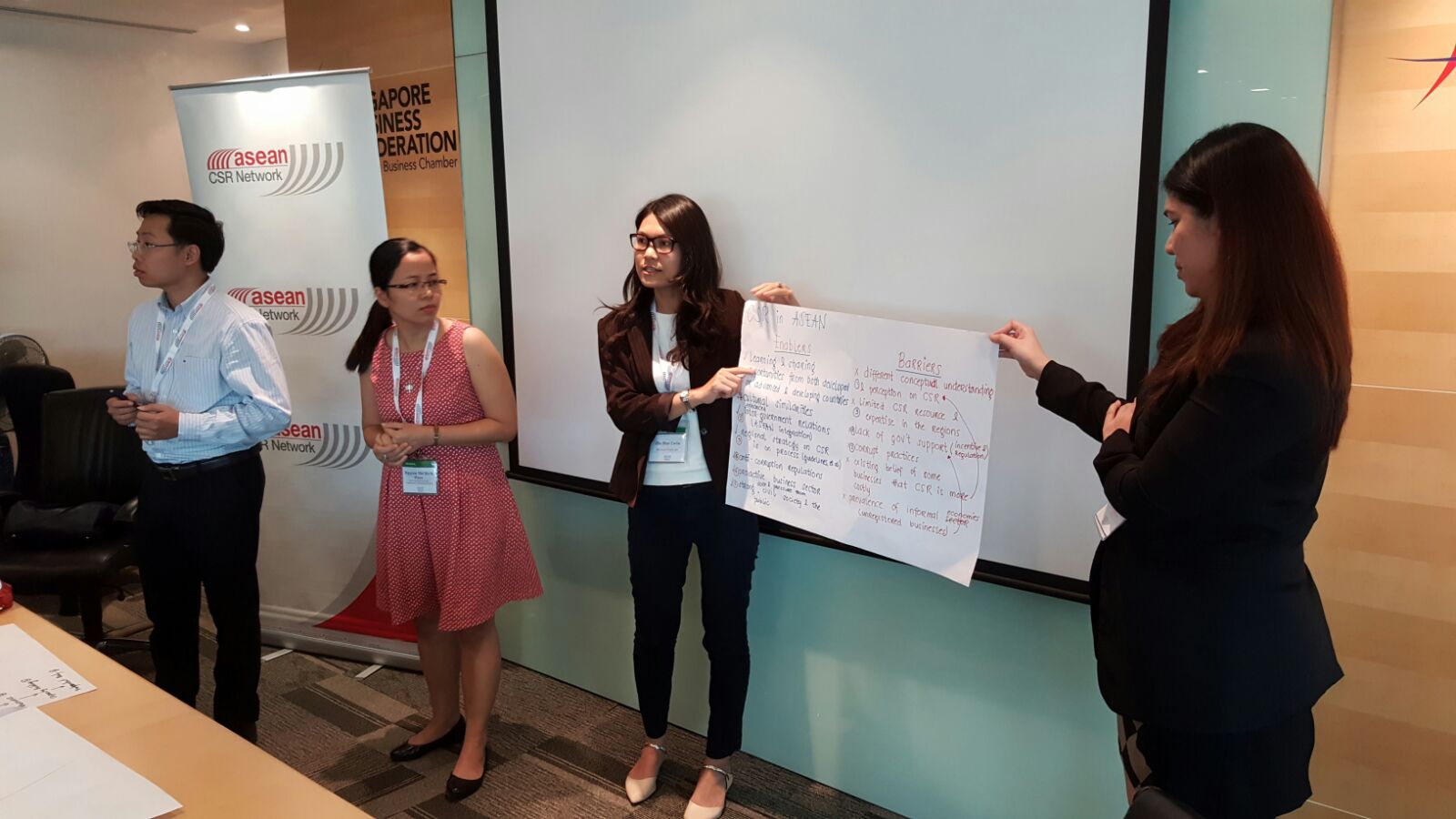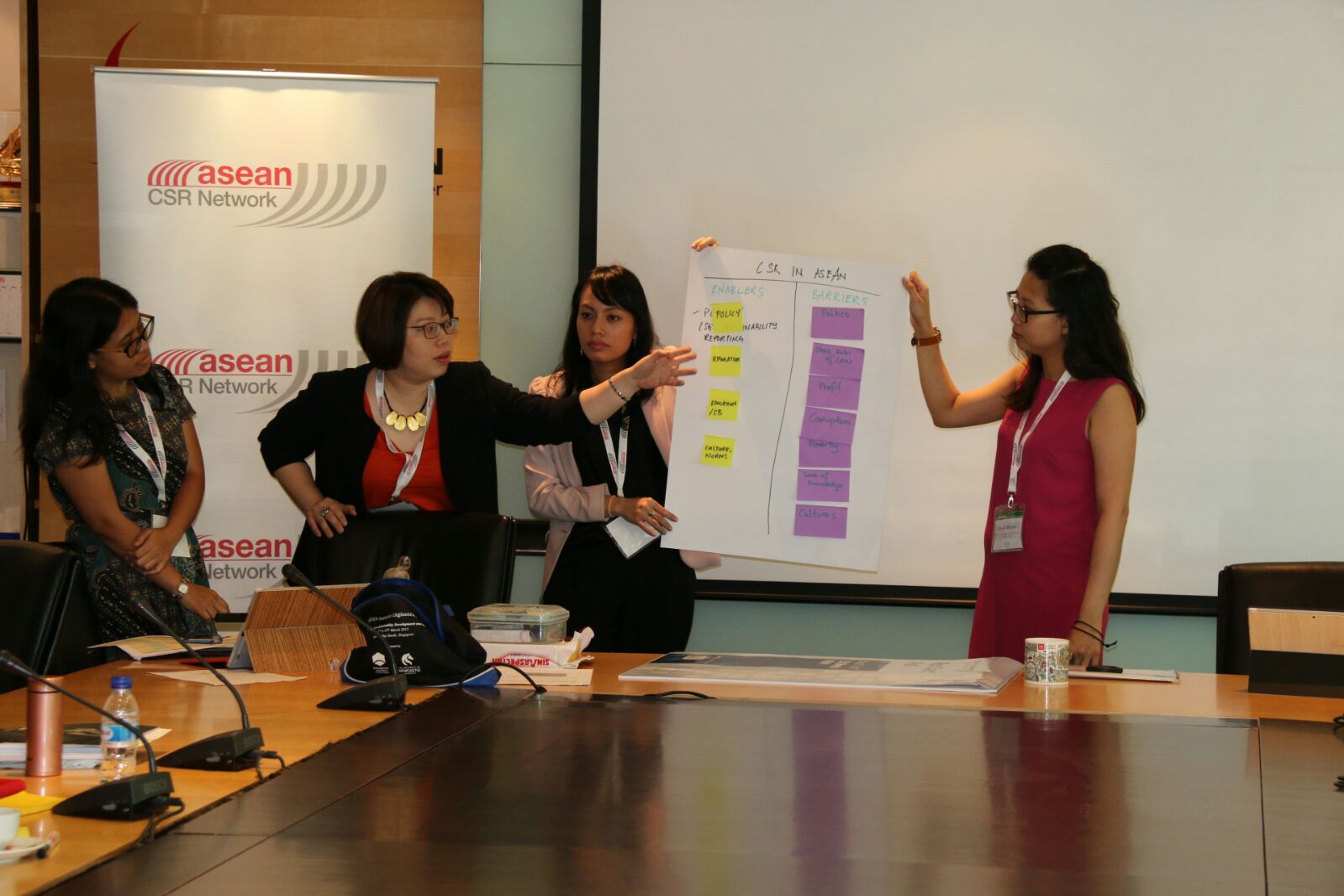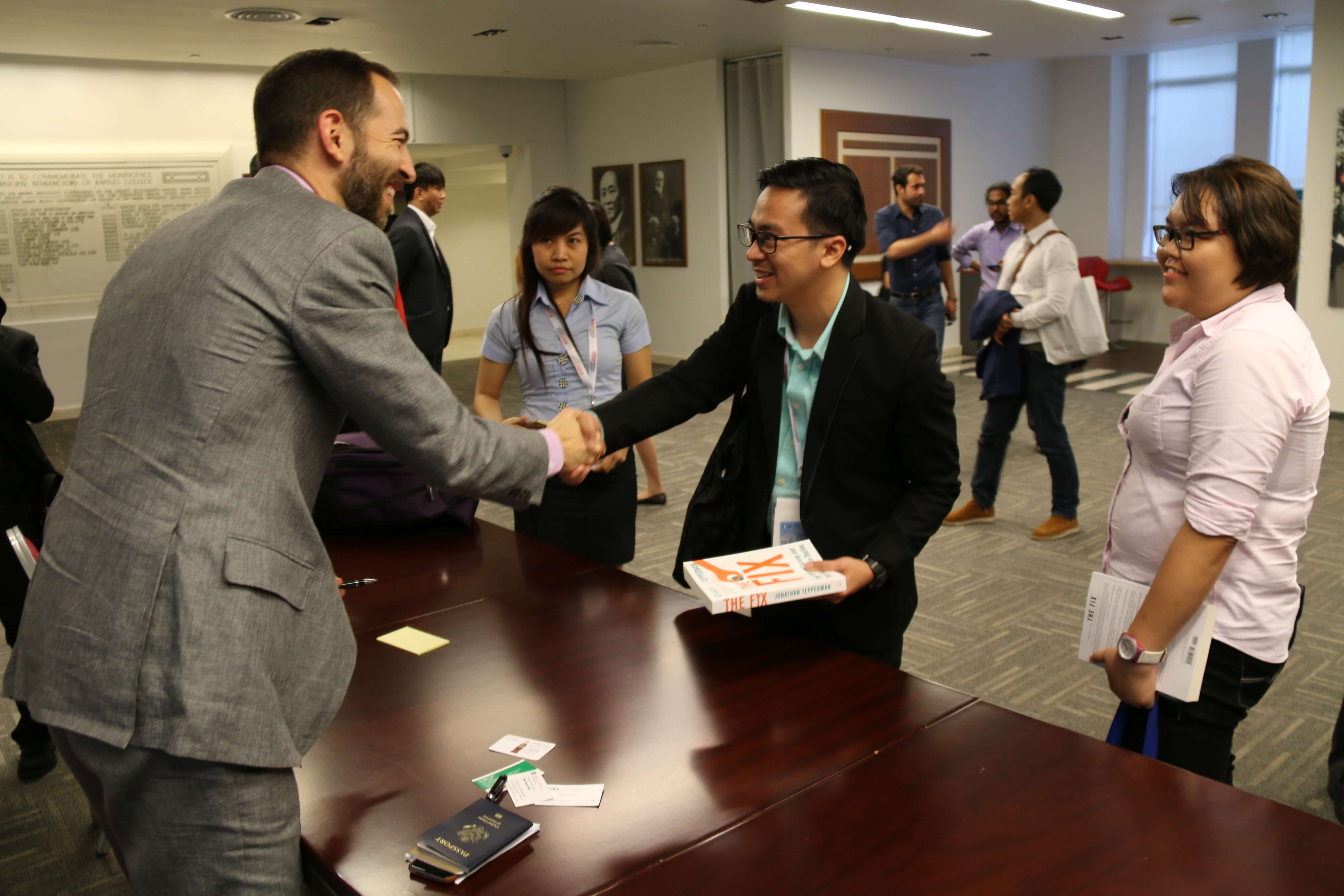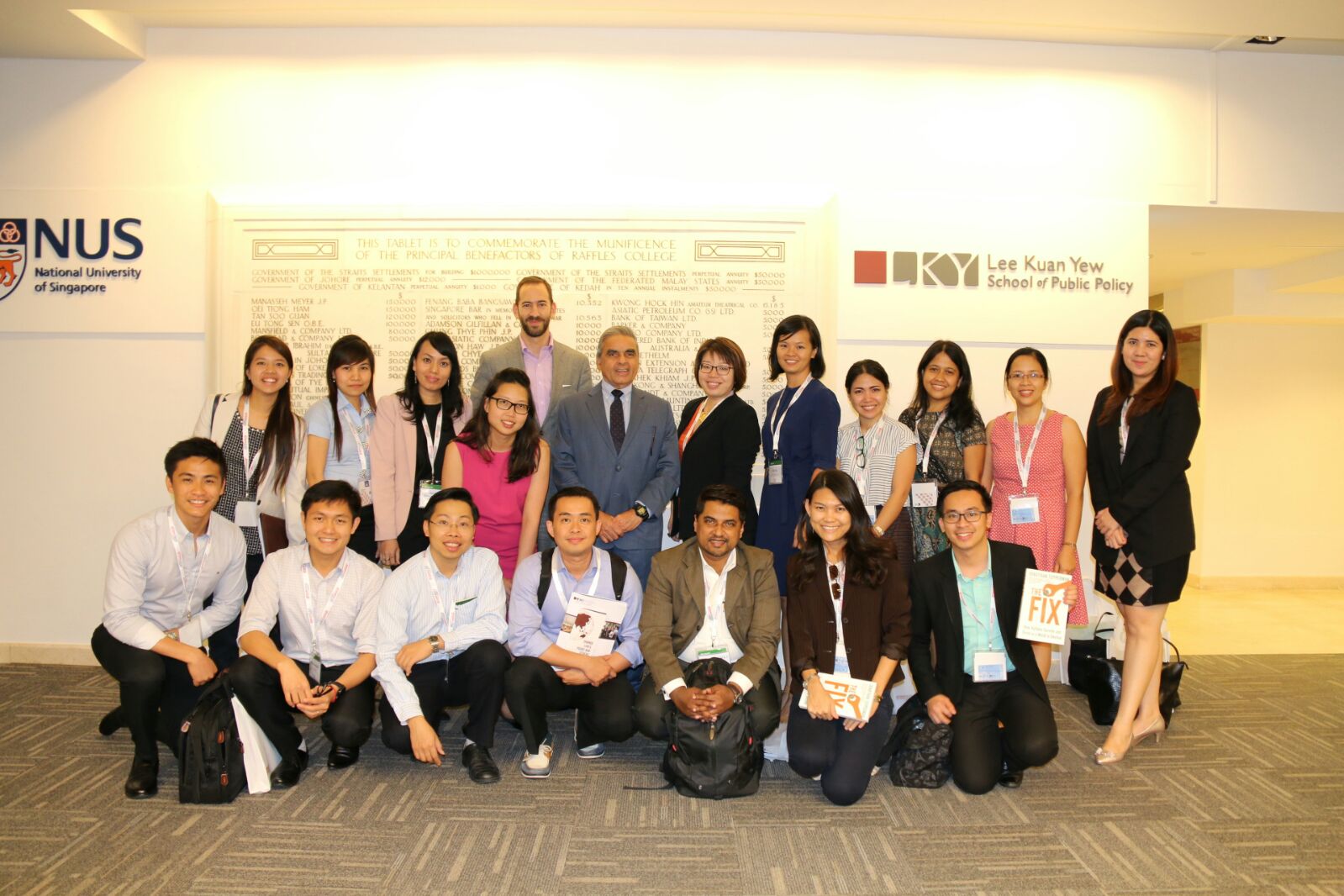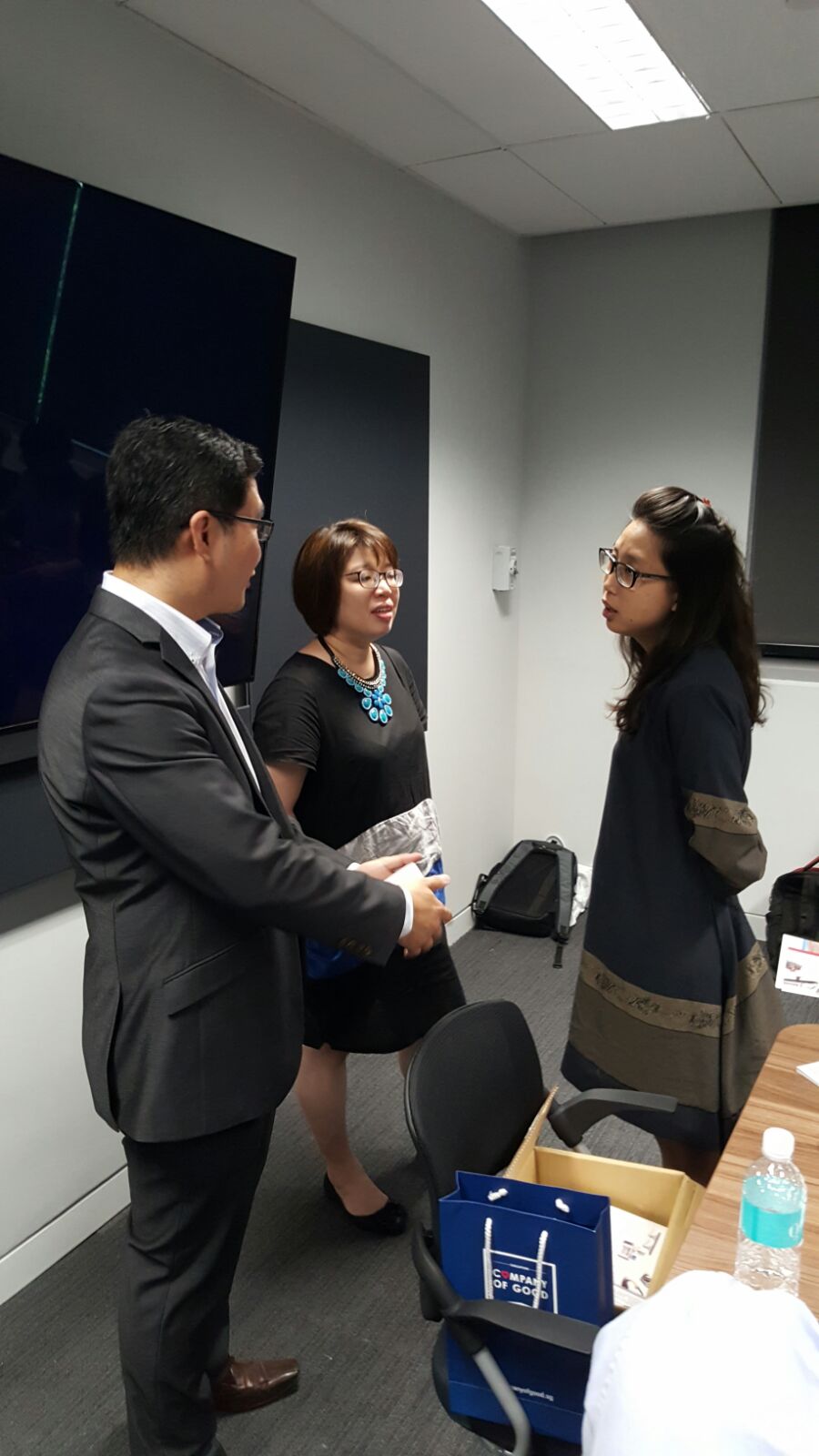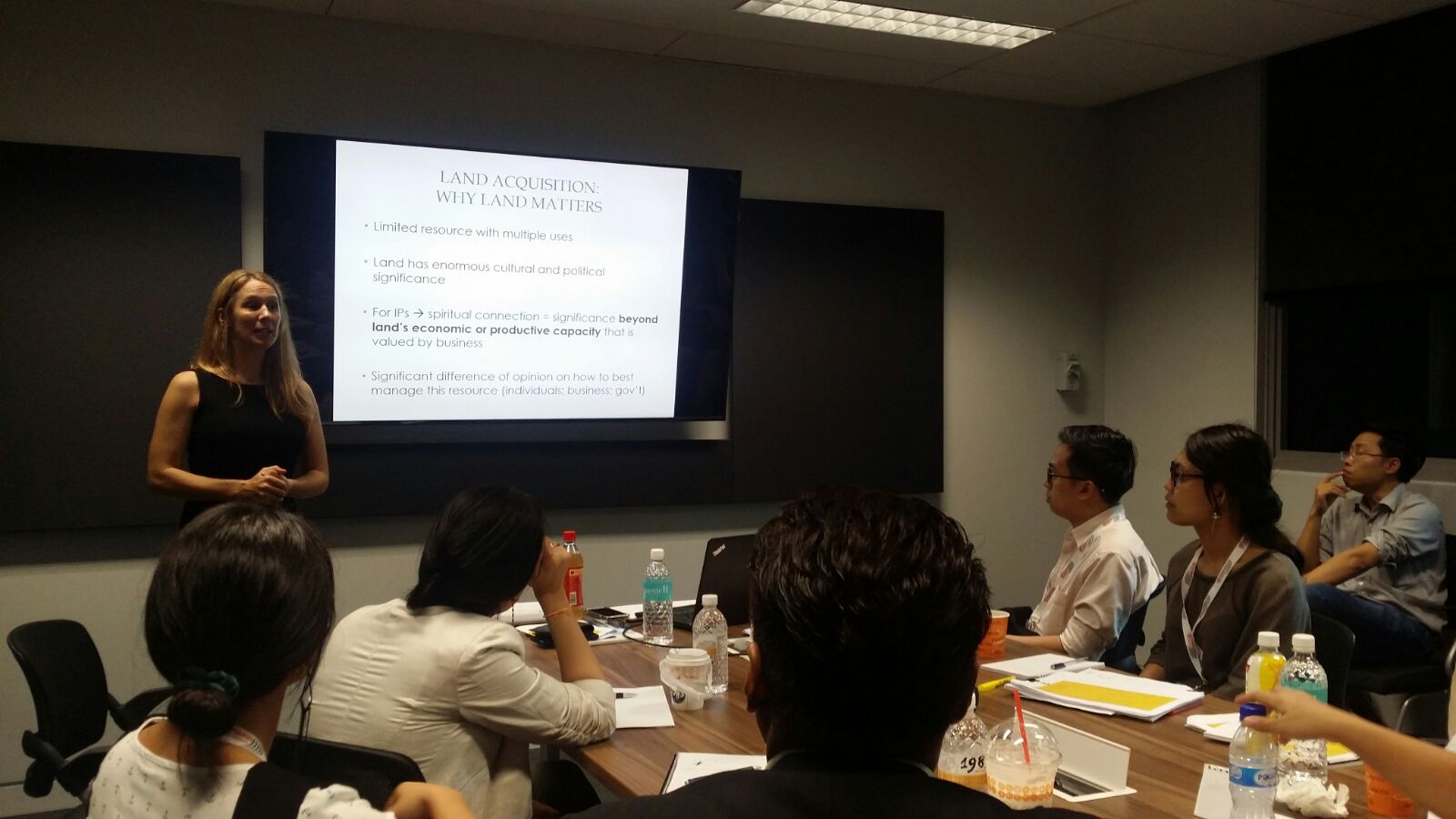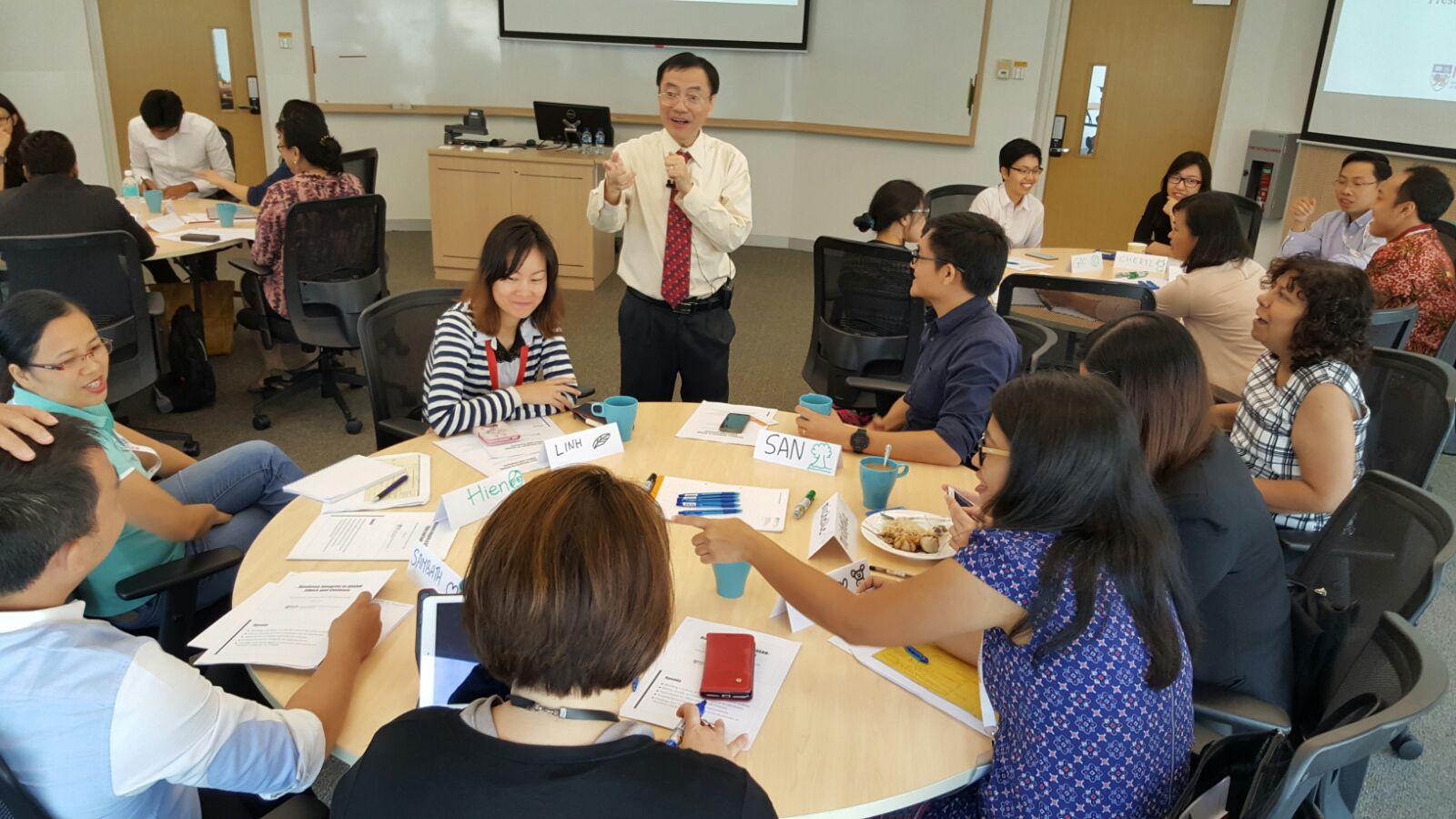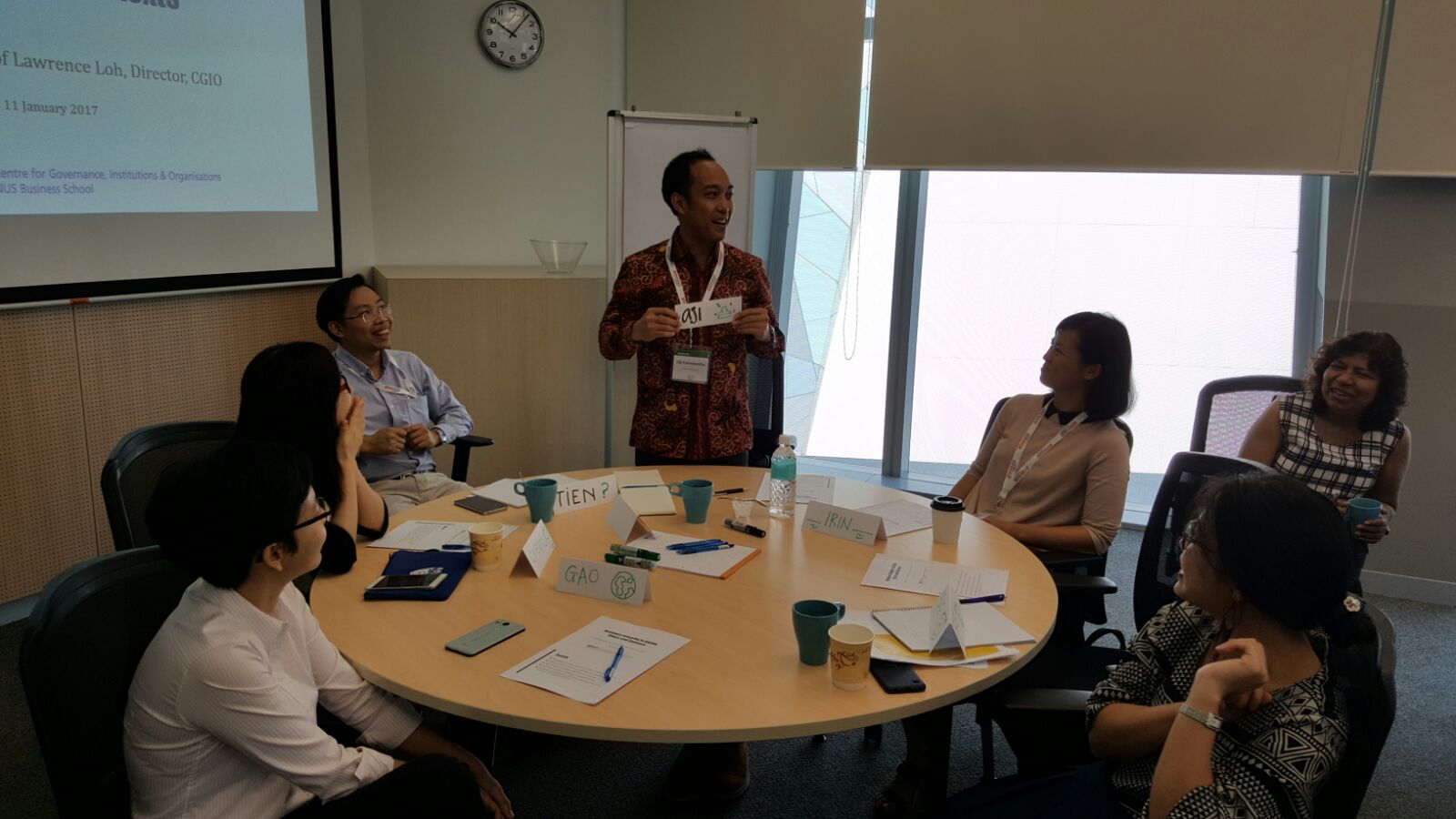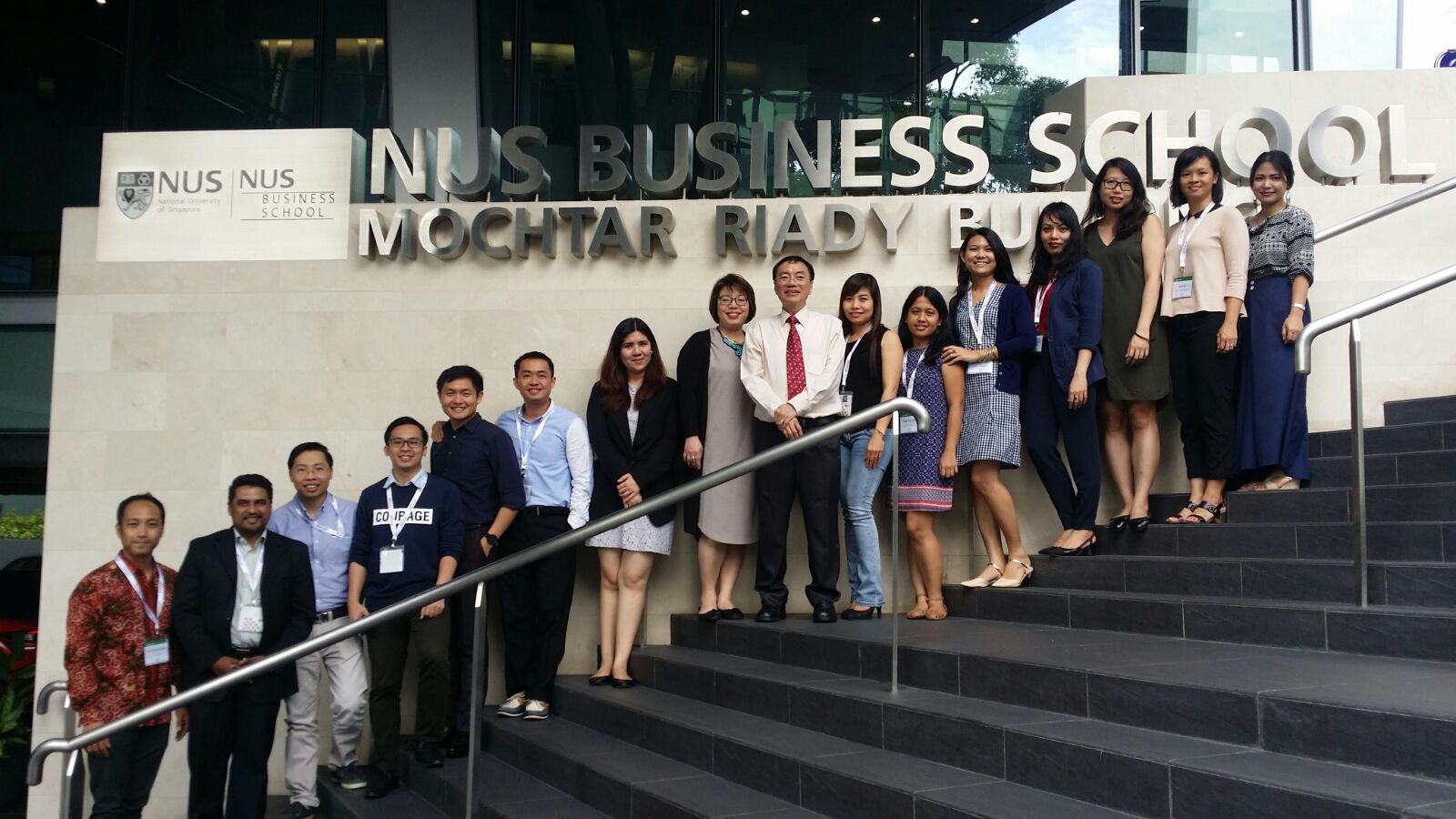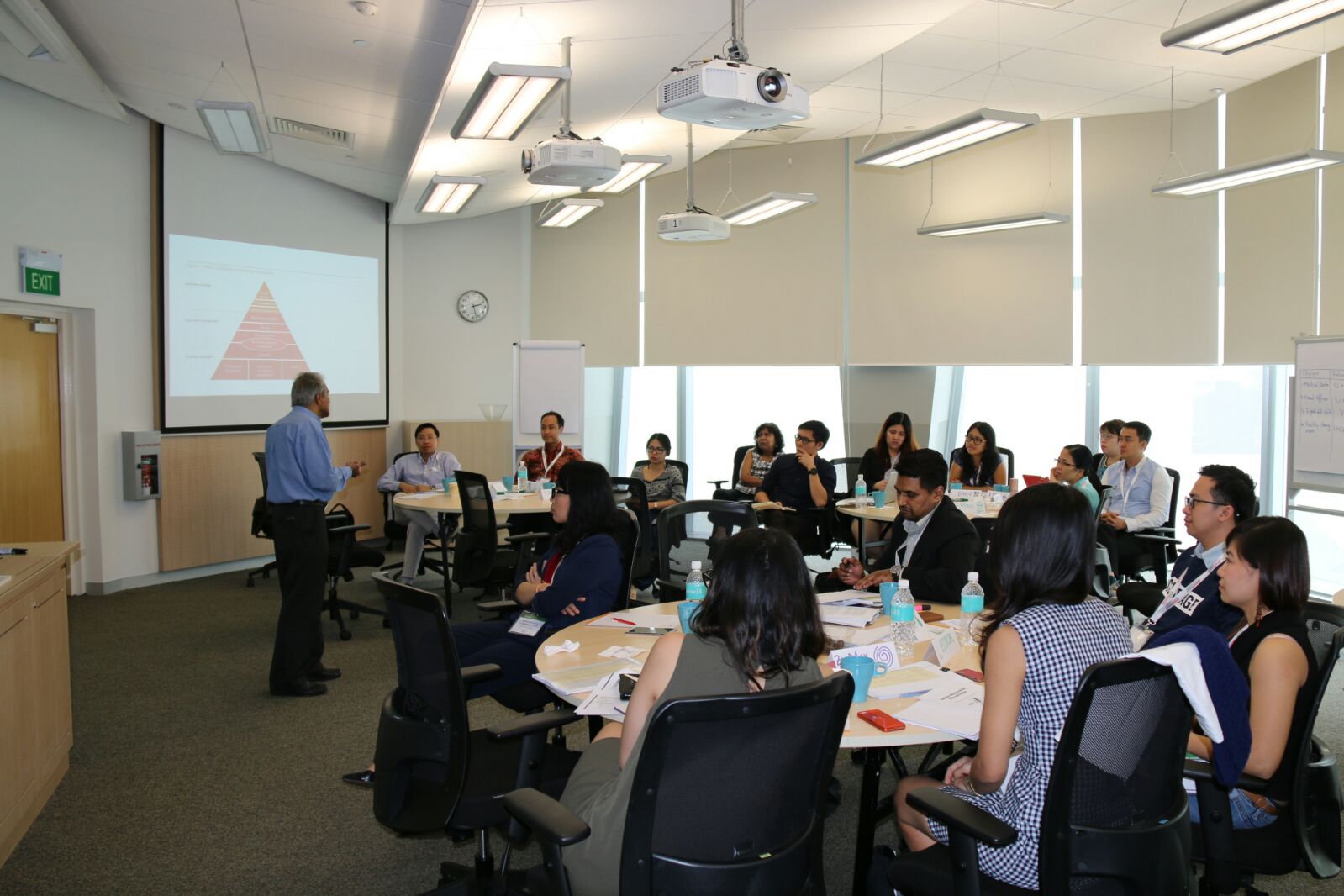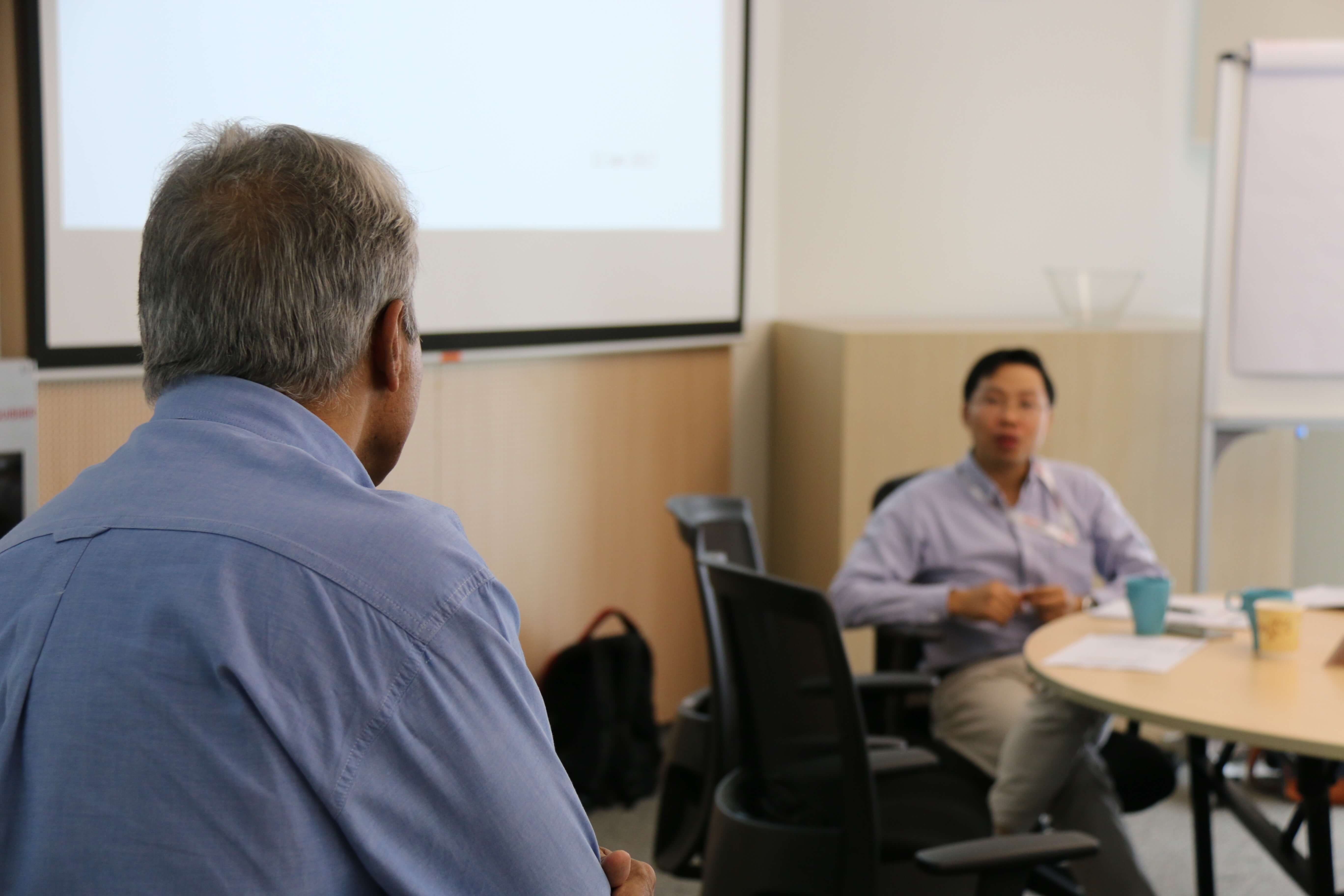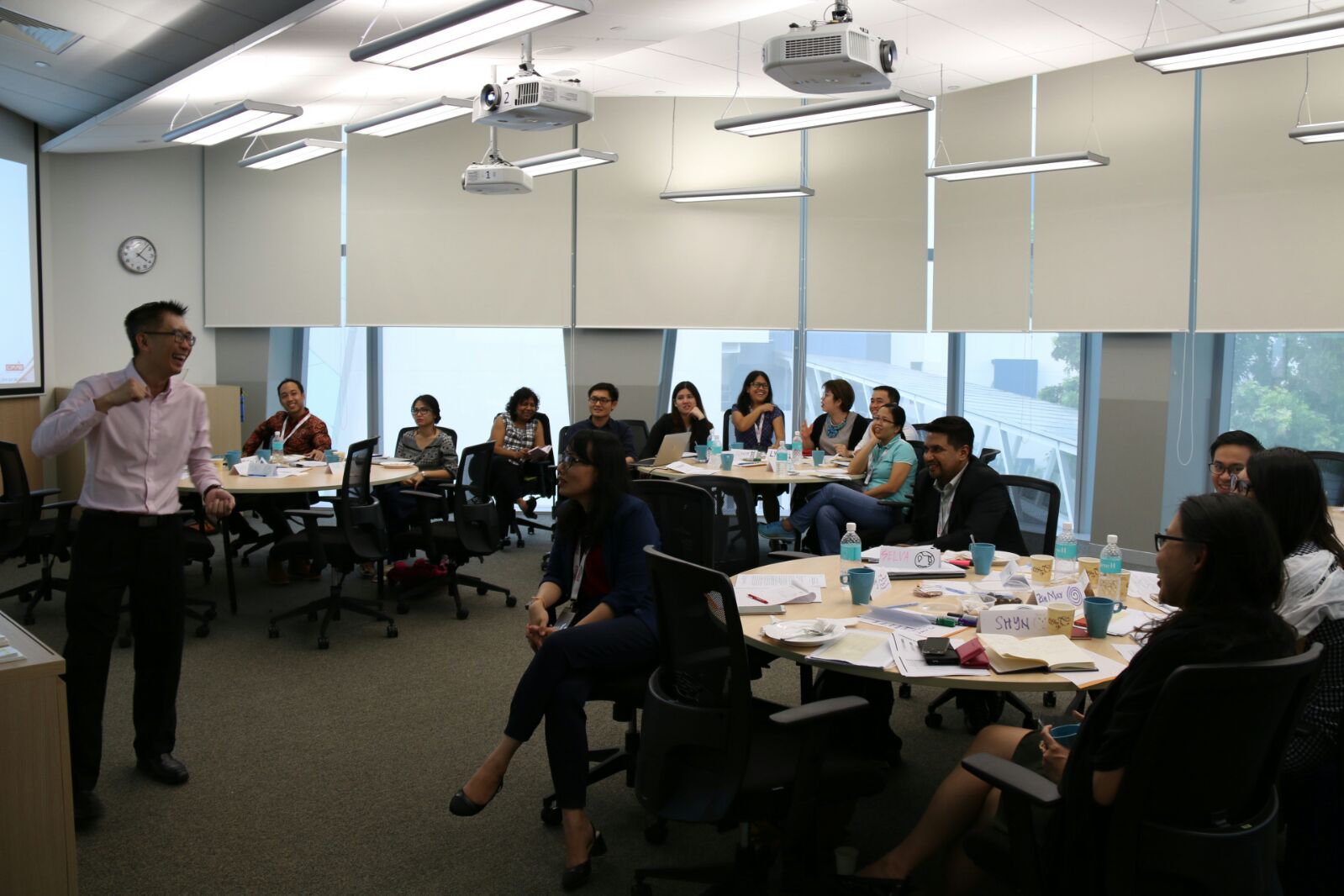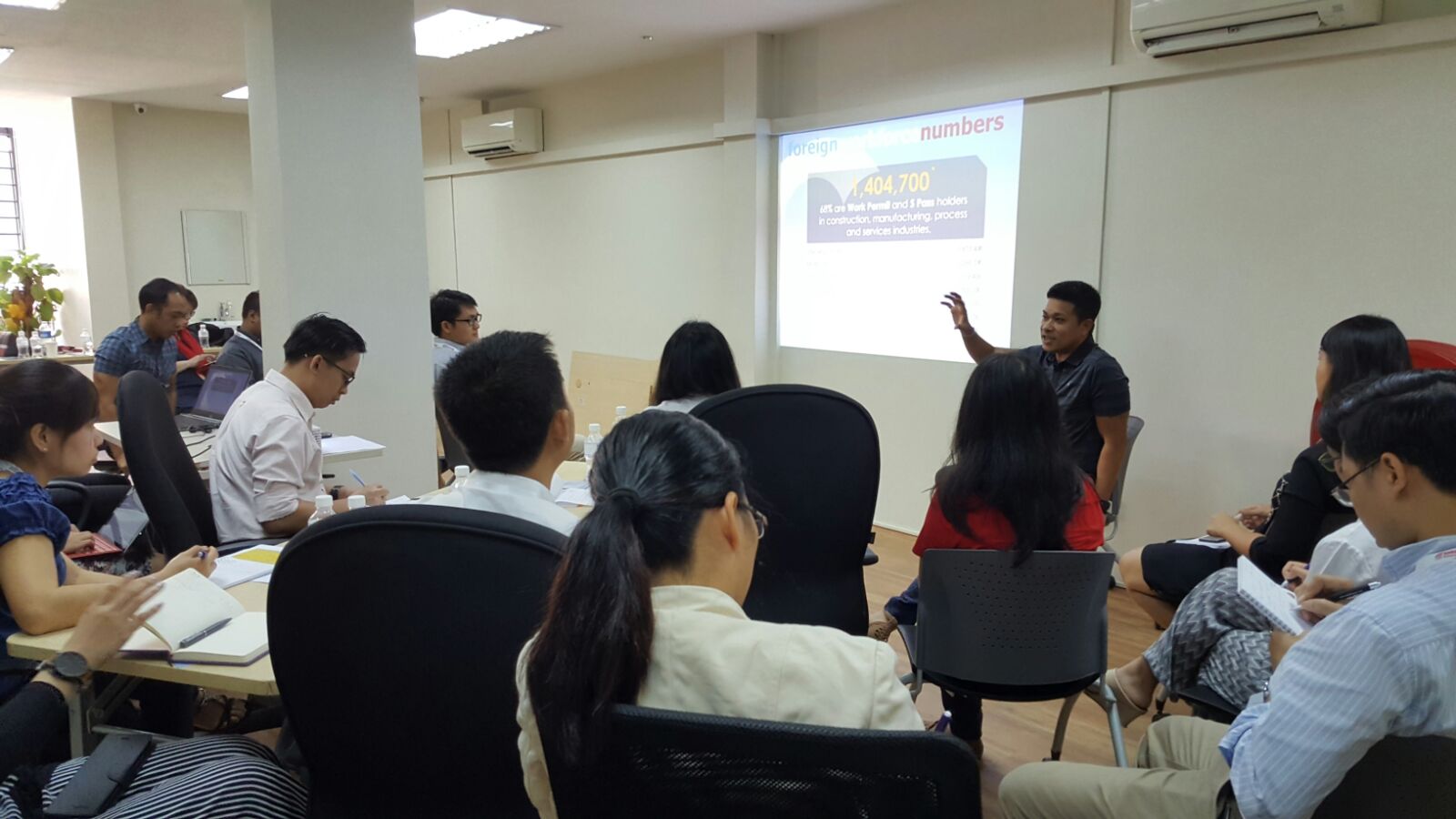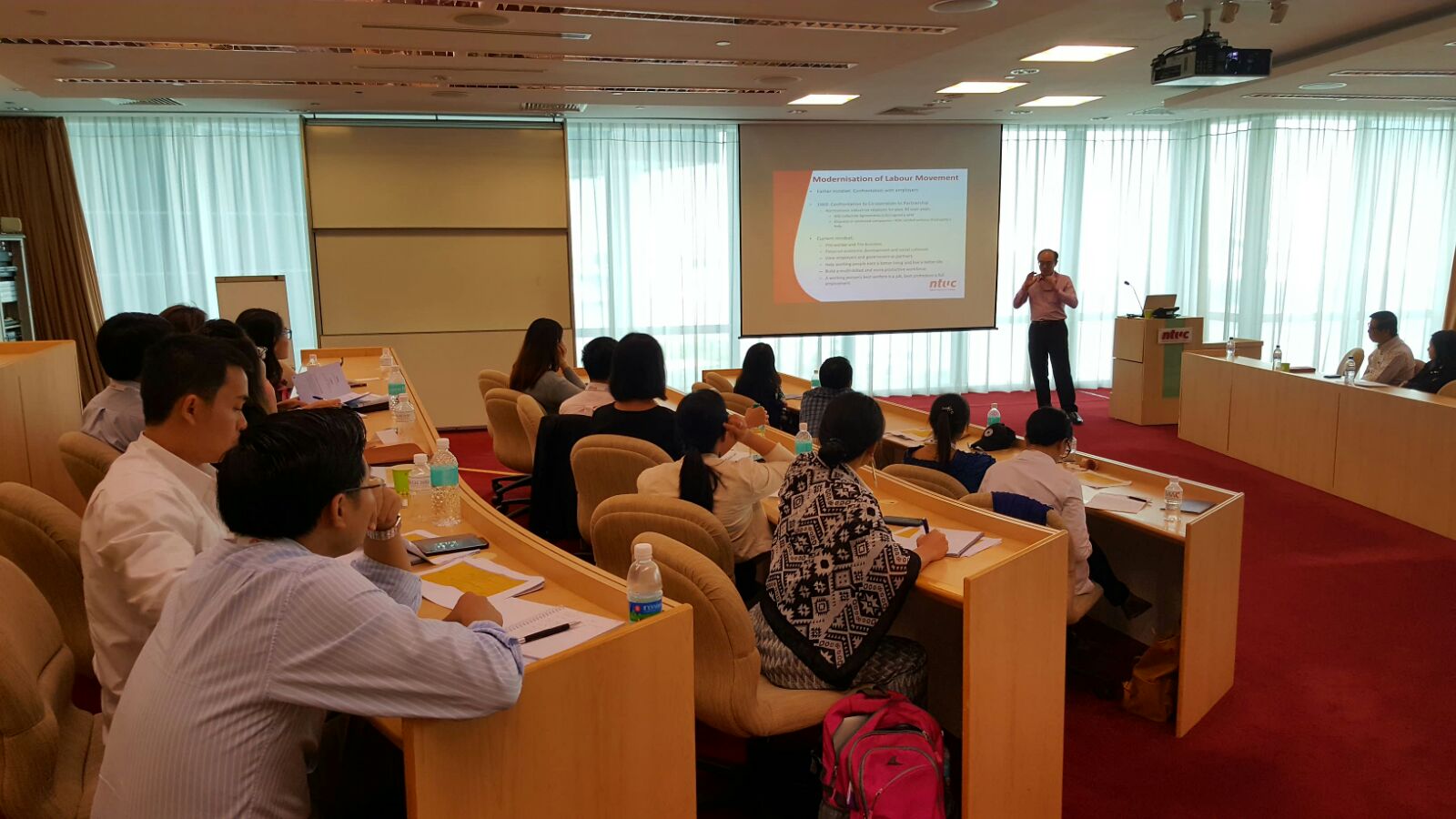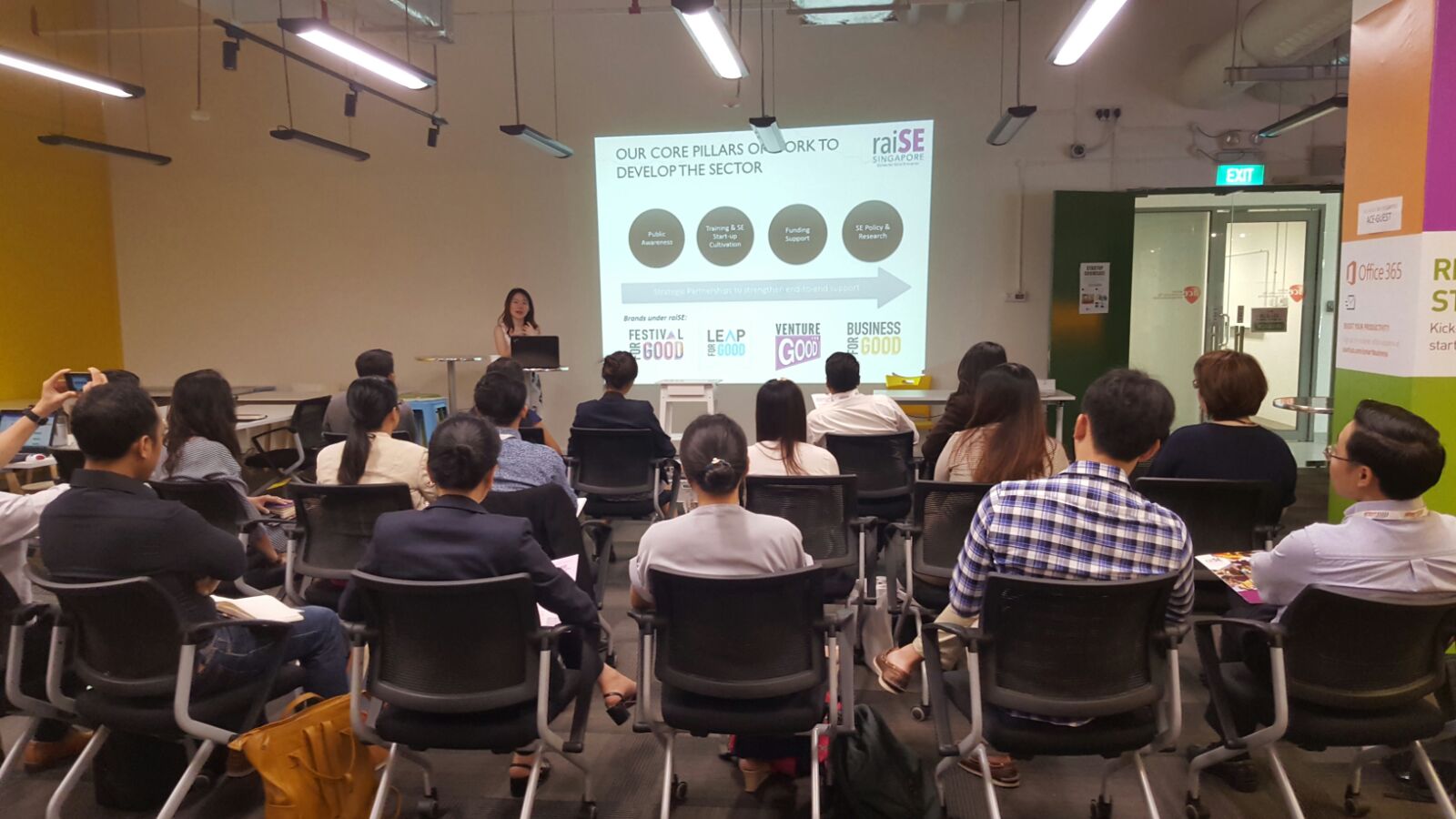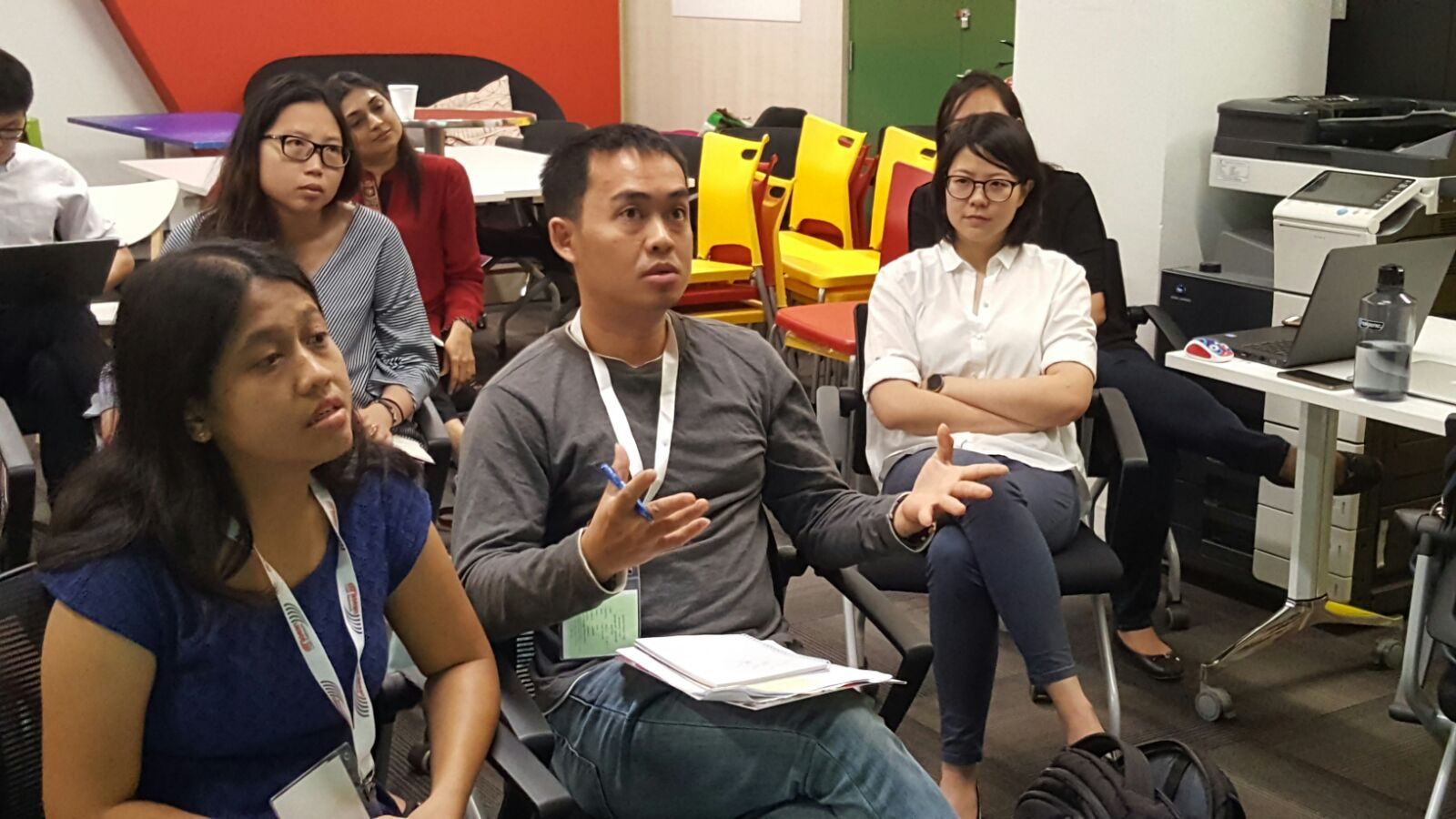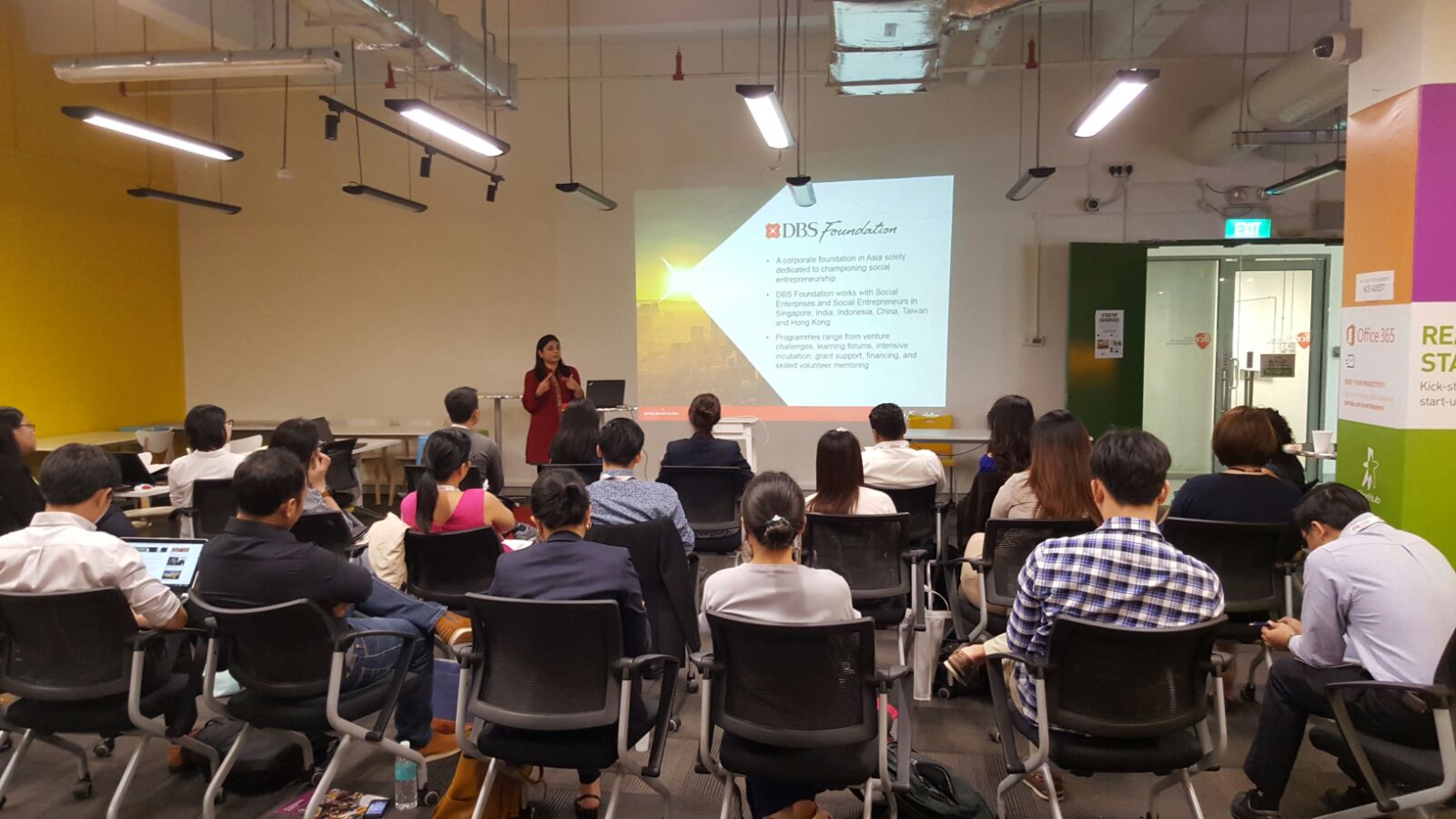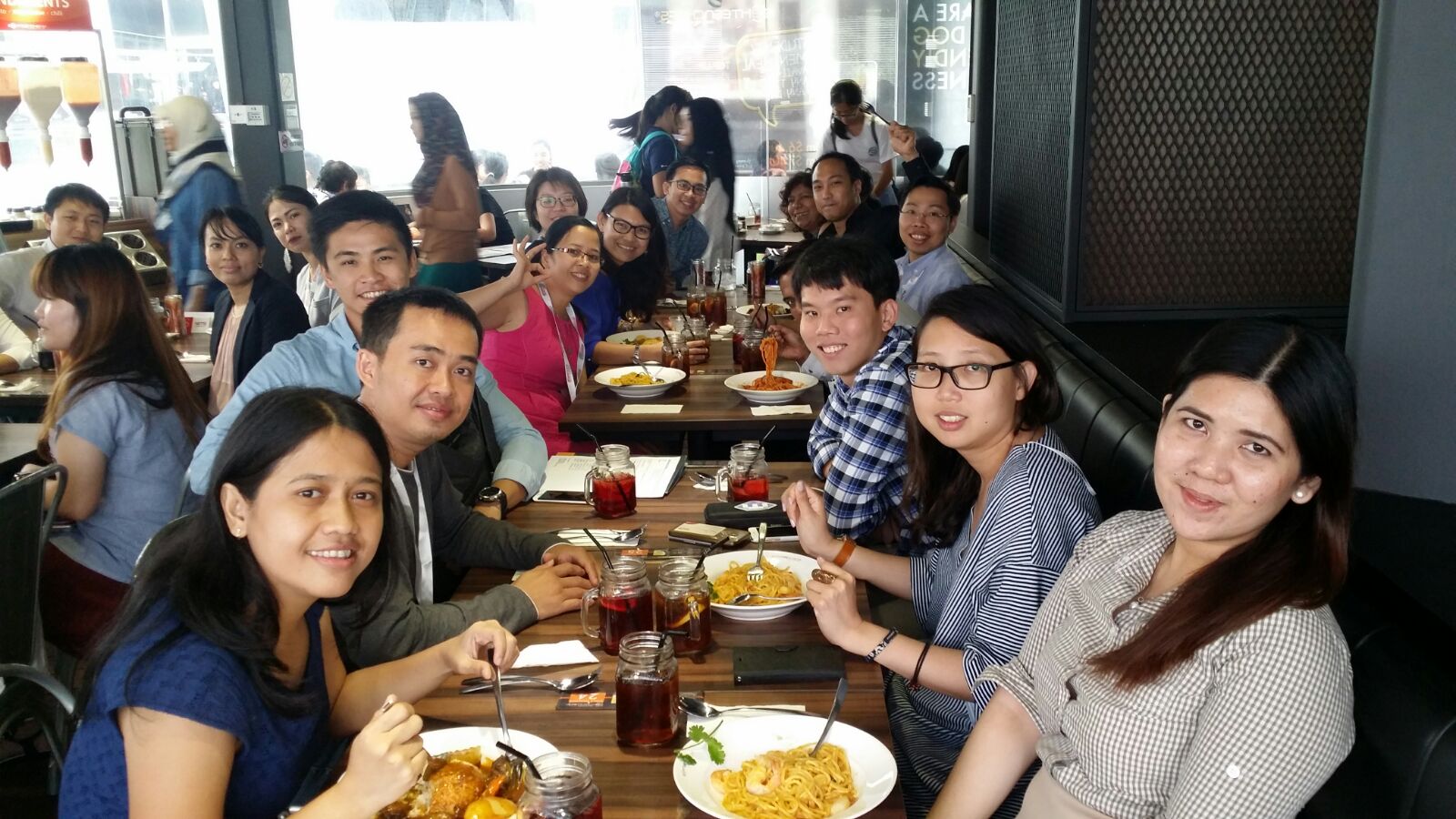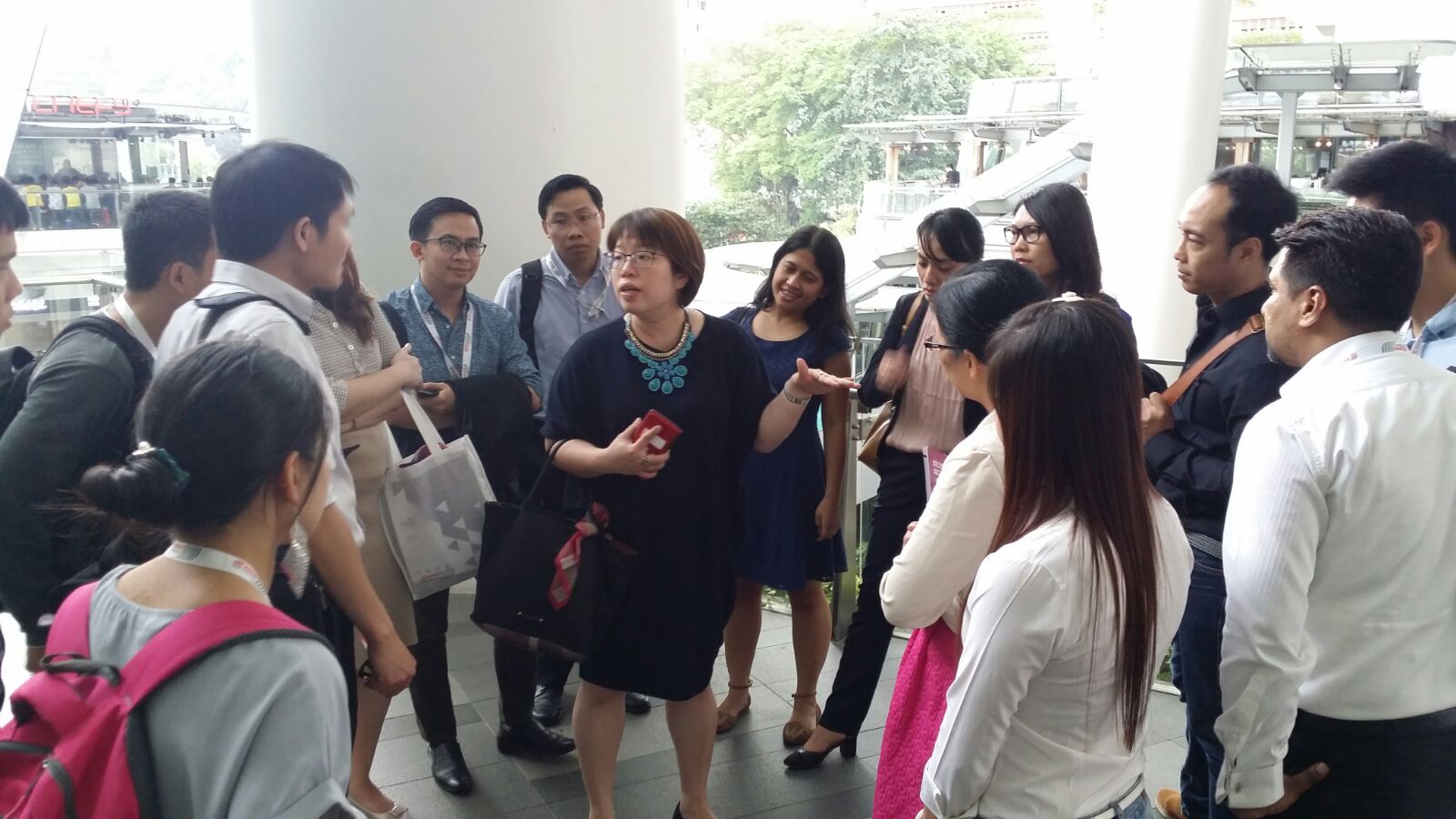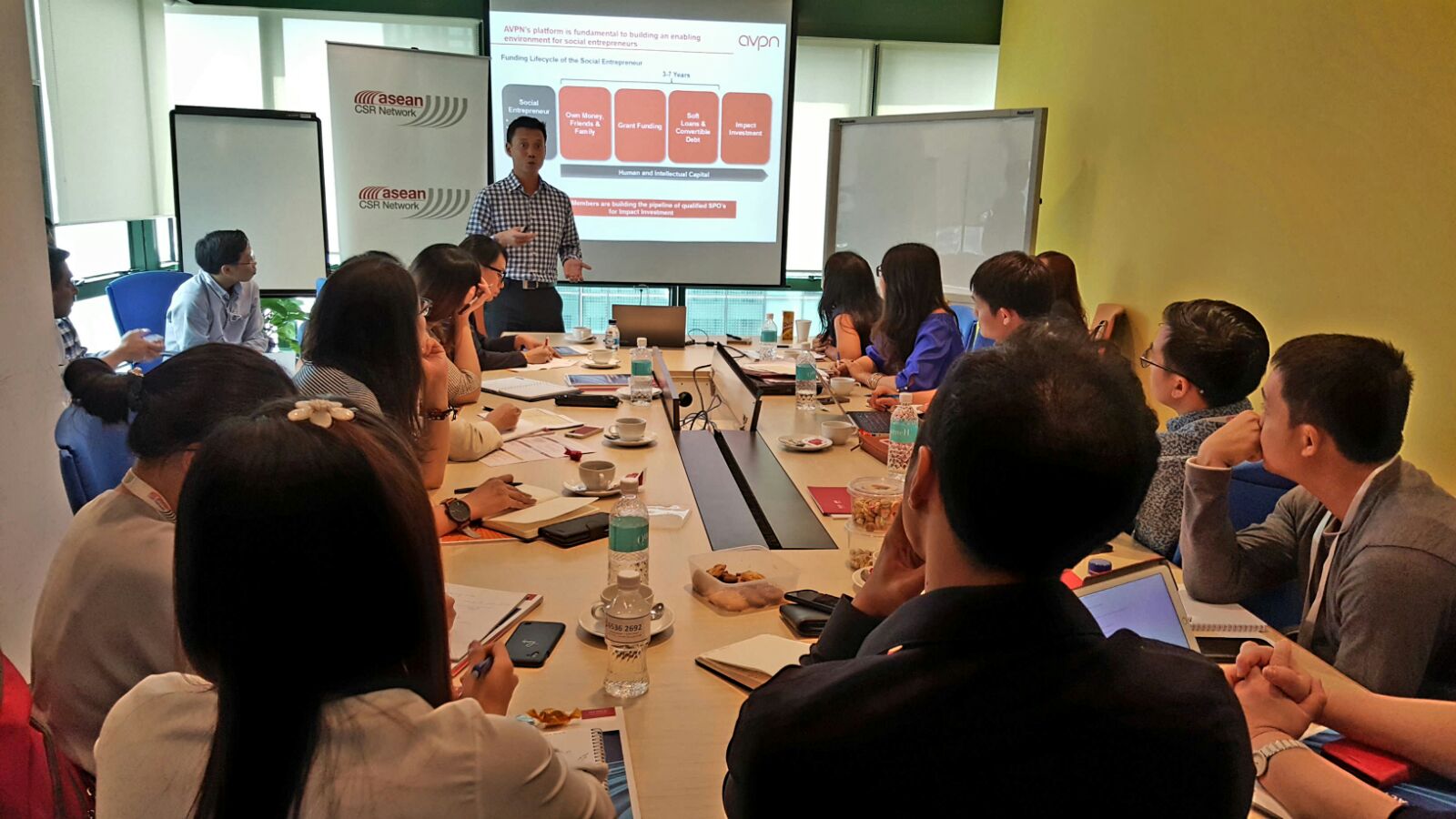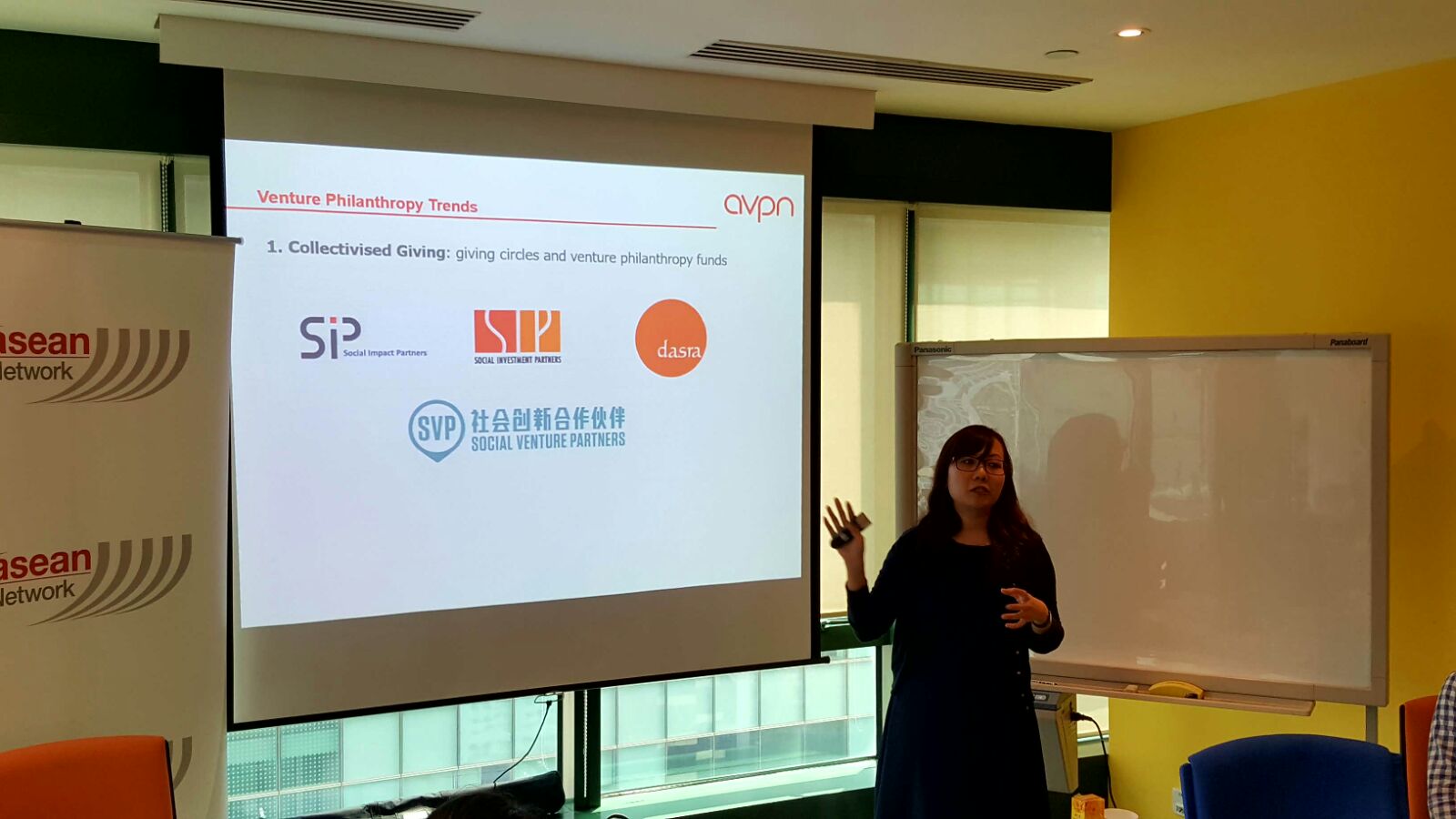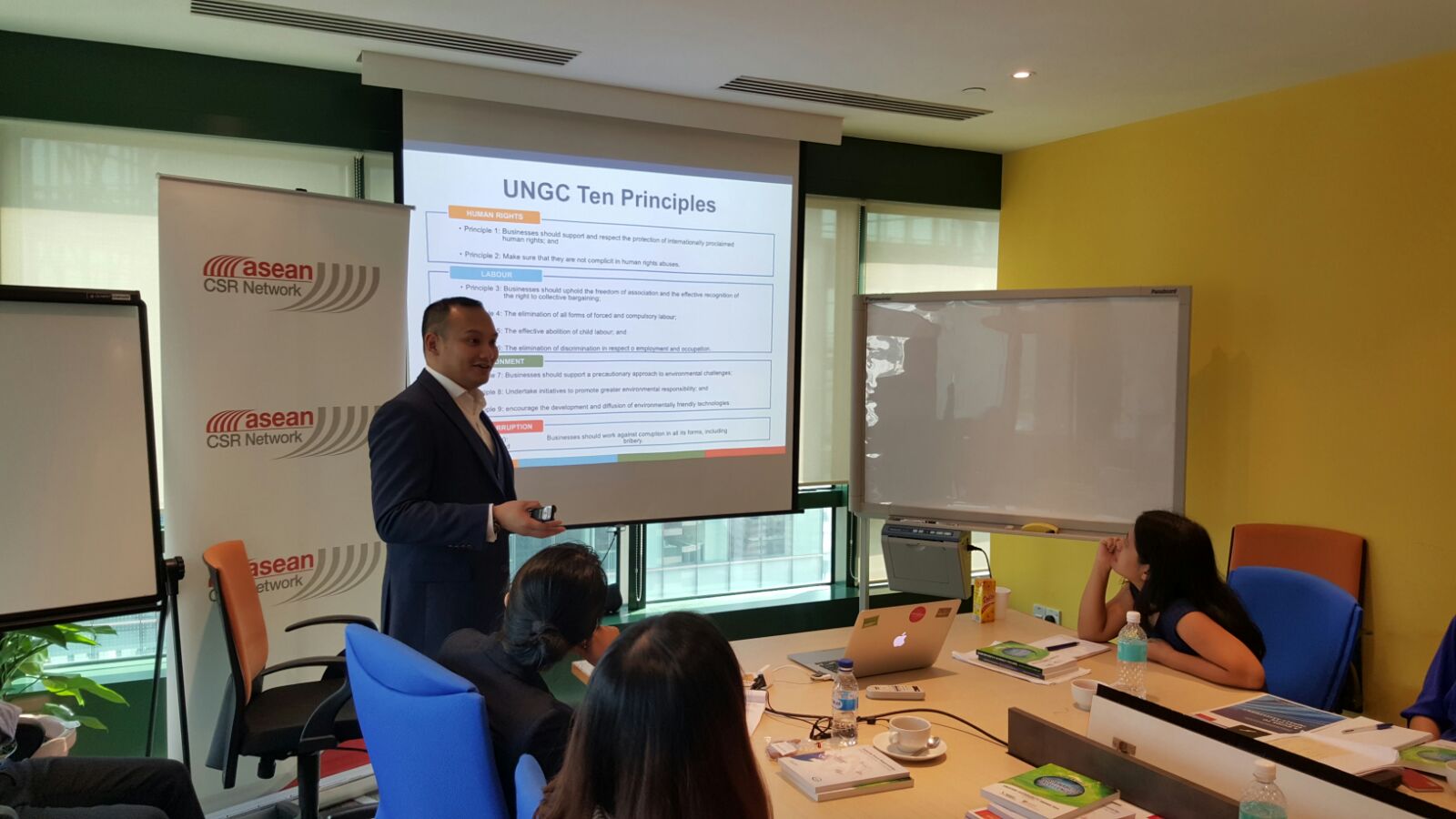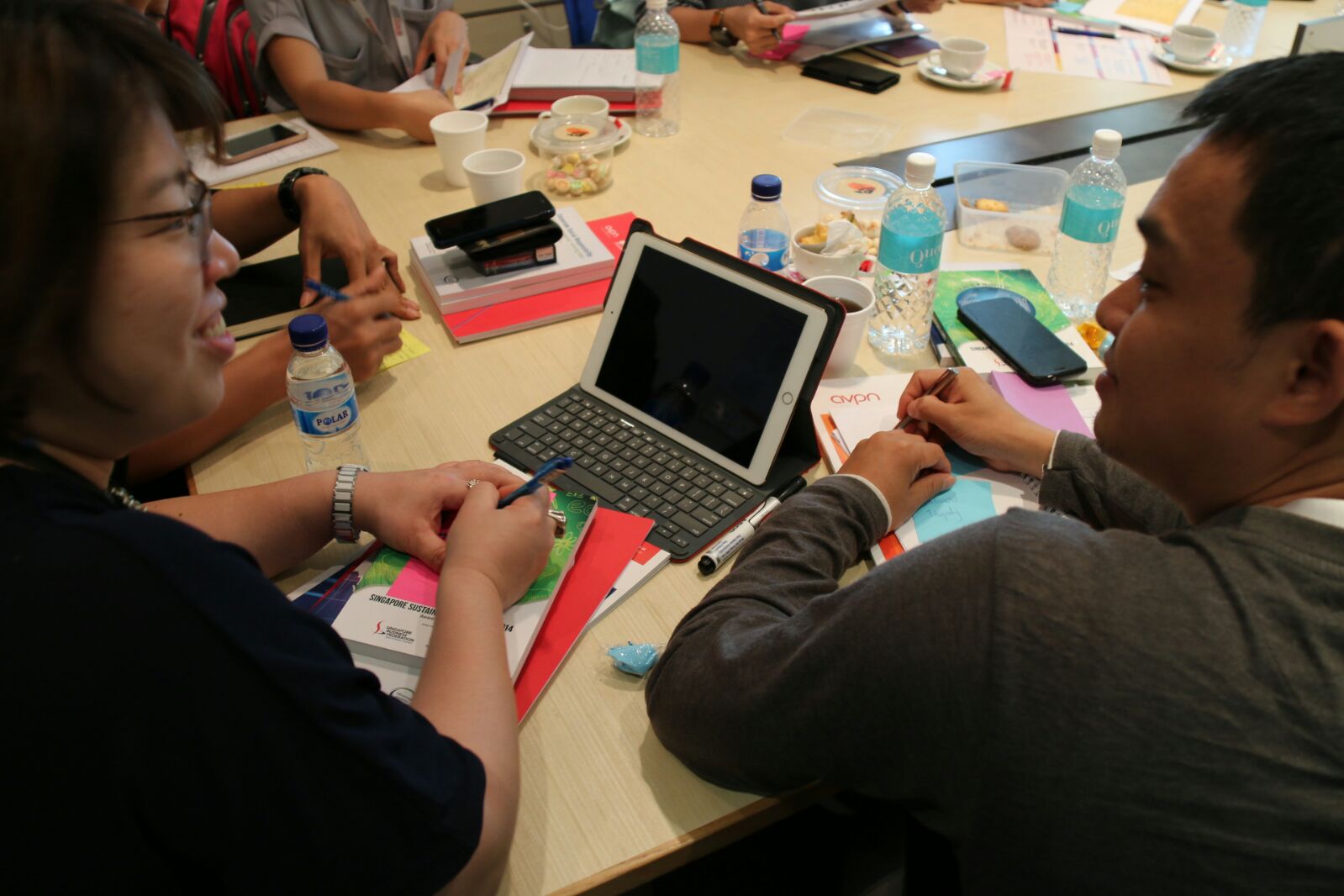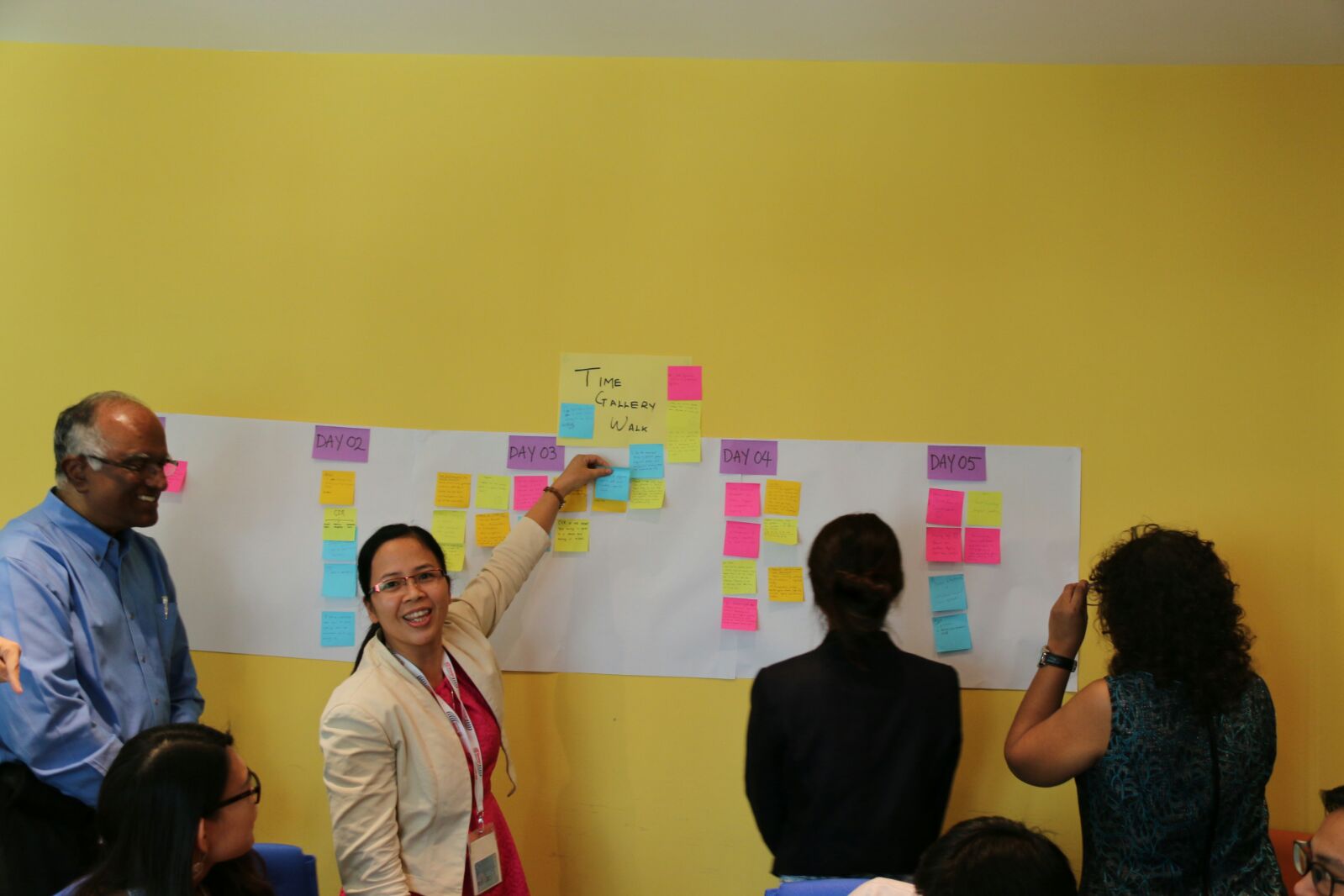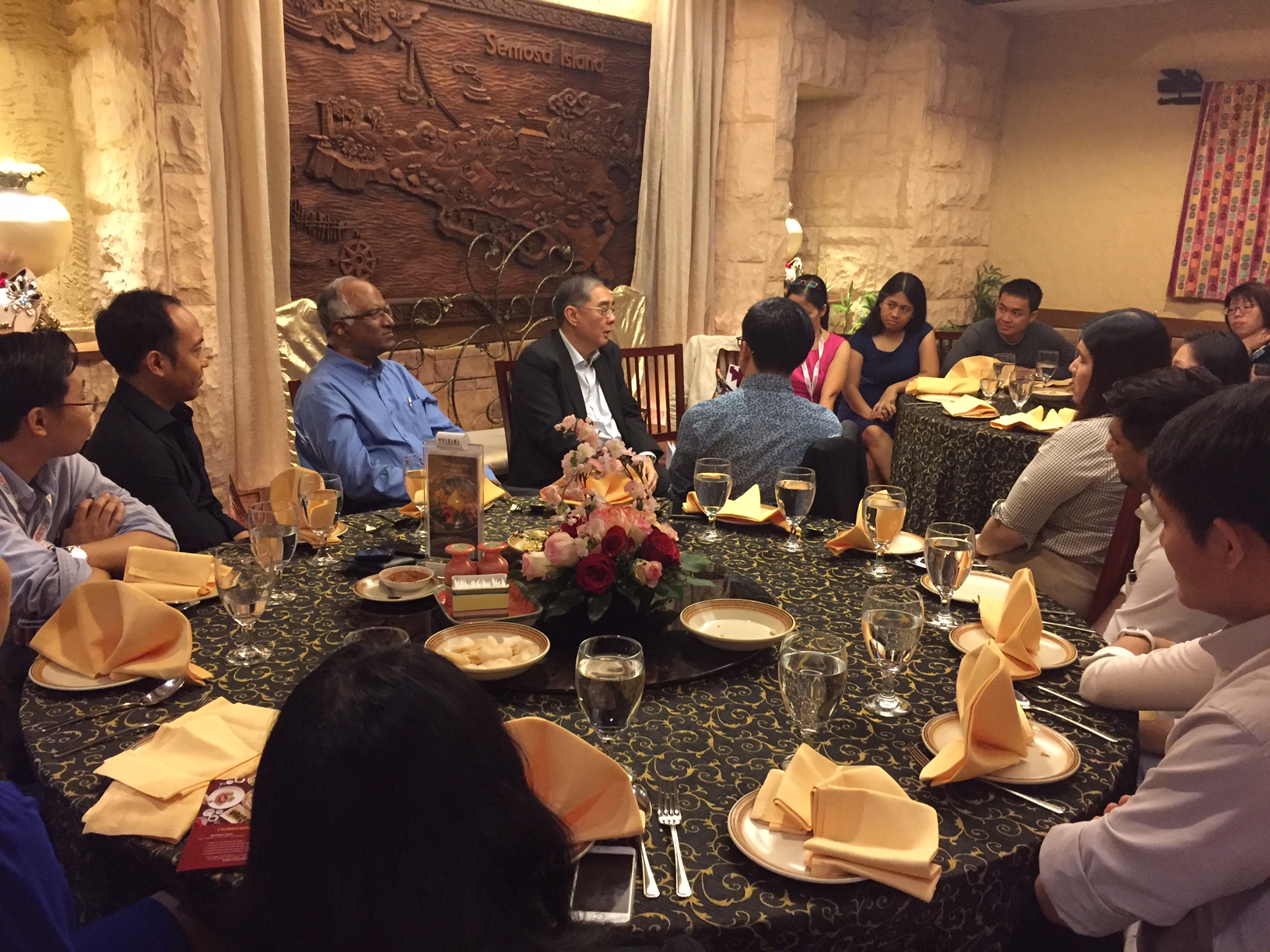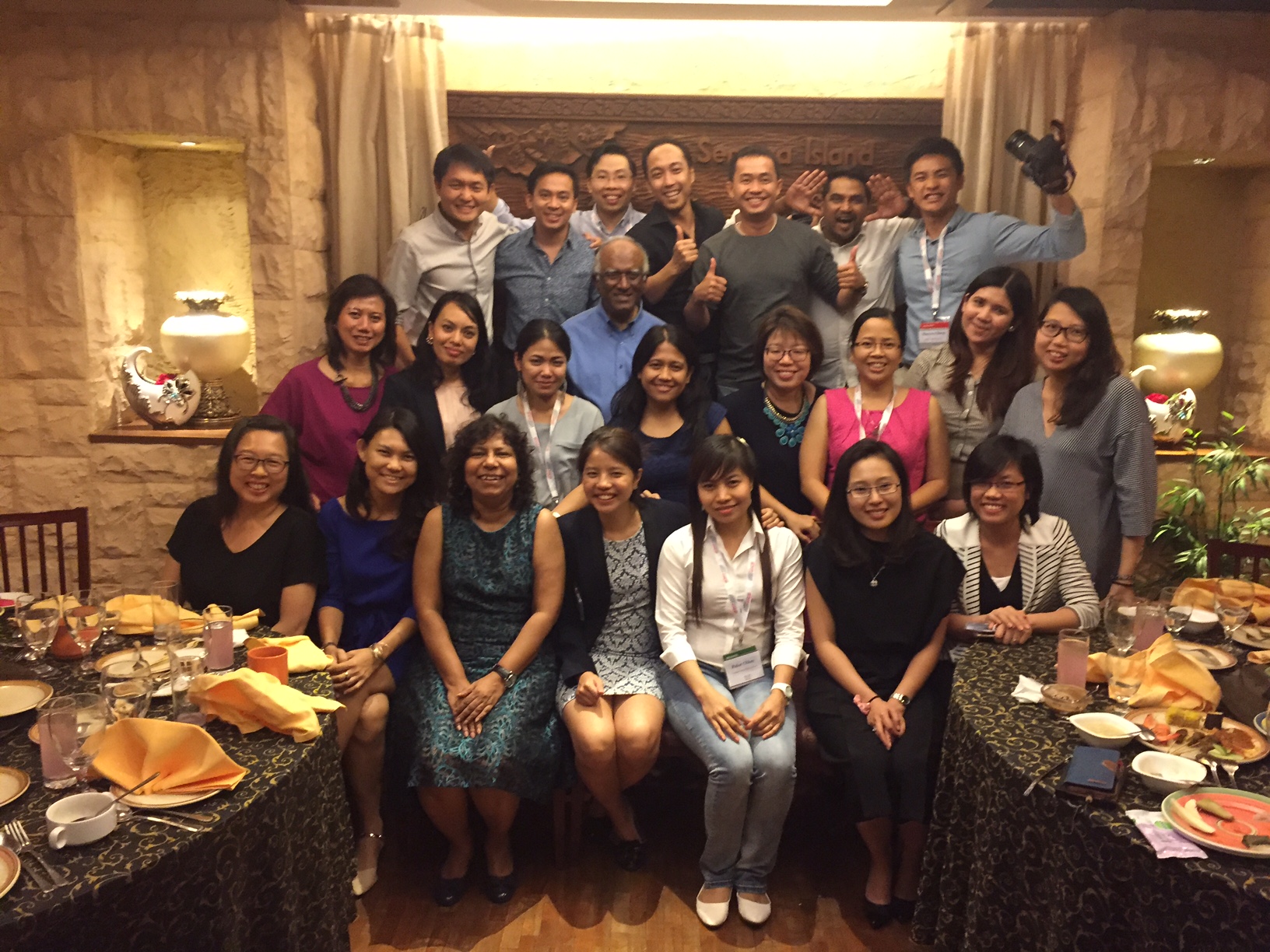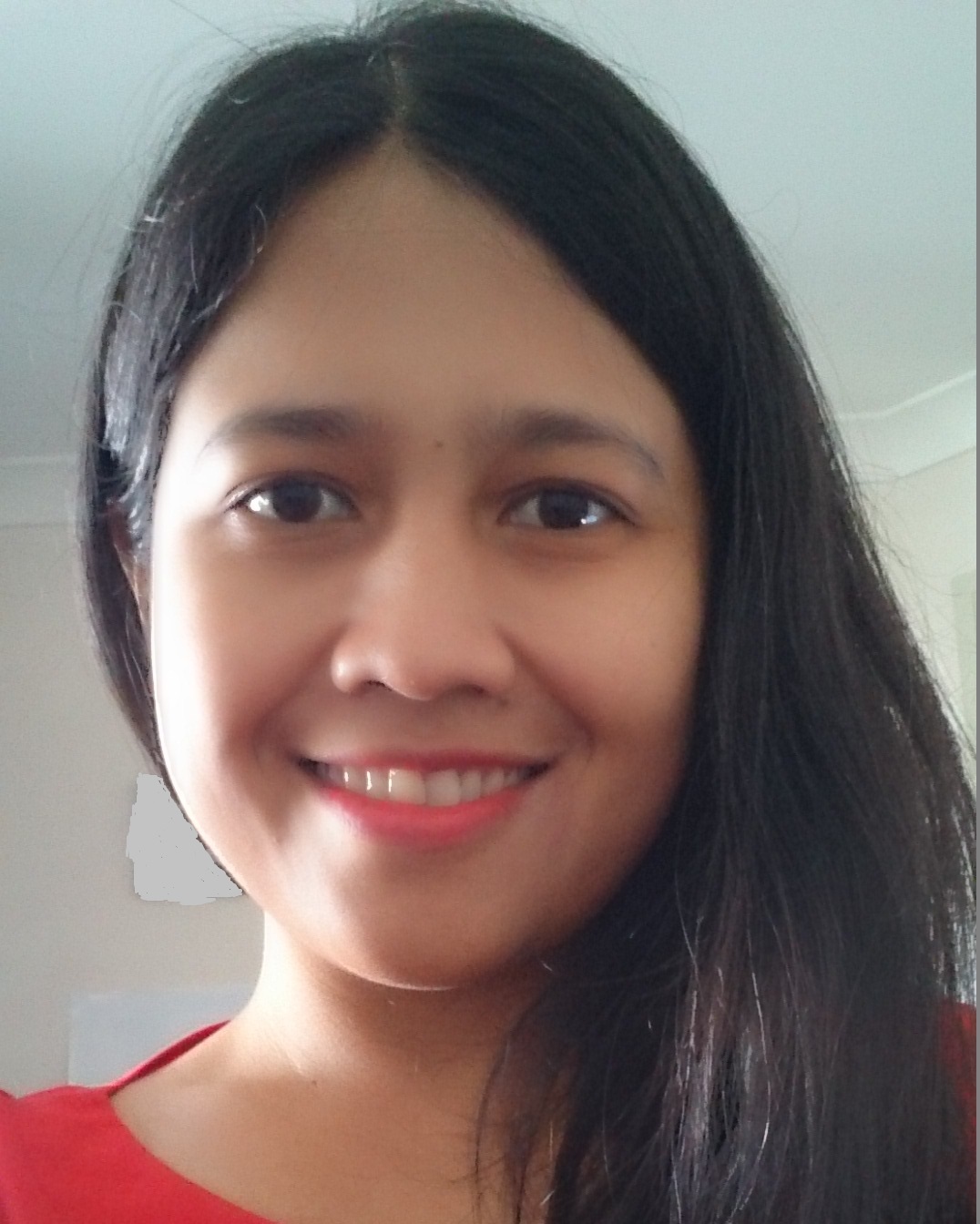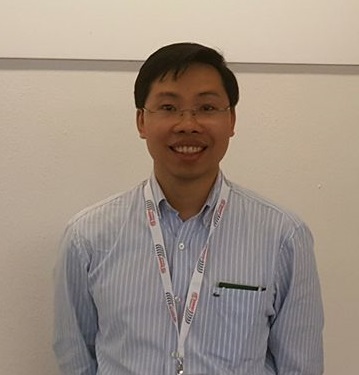ASEAN CSR Fellowship: Inaugural Batch (2017)
ACN launched its inaugural ASEAN CSR Fellowship on 9 Jan 2017. This programme aims to deepen cross-border perspectives and build up the next generation of CSR leaders for responsible business in Southeast Asia, harnessing their potential to address key regional issues in business & anti-corruption, business & human rights, and food security & sustainable agriculture. 16 Fellows were selected from 8 ASEAN countries to participate in a series of study tours to meet business leaders, government officials, academics, and civil society practitioners. This programme began in Singapore from 9 to 13 Jan 2017, and will be followed by visits to 3 other ASEAN countries in April, July and November, concluding with a Capstone Project which the Fellows can implement in their respective countries with the newfound knowledge and network.
Fellows were partially sponsored with the support of the Government of Sweden and the National Youth Council Singapore.
A total of 16 Fellows from 8 ASEAN countries (Cambodia, Indonesia, Laos, Malaysia, Myanmar, the Philippines, Singapore, Vietnam) have been selected for the year-long Fellowship. They range from CSR managers from MNCs to land rights activists at NGOs.
ABOUT THE FELLOWSHIP PROFILES OF THE FELLOWS (CLASS OF 2017)
Highlights in Singapore:
- Closing dinner with Ambassador Ong Keng Yong (Former Secretary-General of ASEAN)
- Tour of the Singapore Parliament and witnessing a live sitting
- Business & Human Rights lecture at Singapore Management University (SMU)
- Business Integrity workshop at the National University Singapore (NUS) Business School
- Sharing by Hitachi on their commitment to human rights
- Panel discussion on migrant worker issues with the Manpower Ministry and civil society groups
- Learning about impact investment from the Asian Venture Philanthropy Network (AVPN)
Day 1 (9 Jan 2017) - Understanding Singapore
The Fellowship kicked off with an introduction of Global Compact Network Singapore (GCNS) and ASEAN CSR Network. Fellows also took time to learn about each other's work back in their home countries.
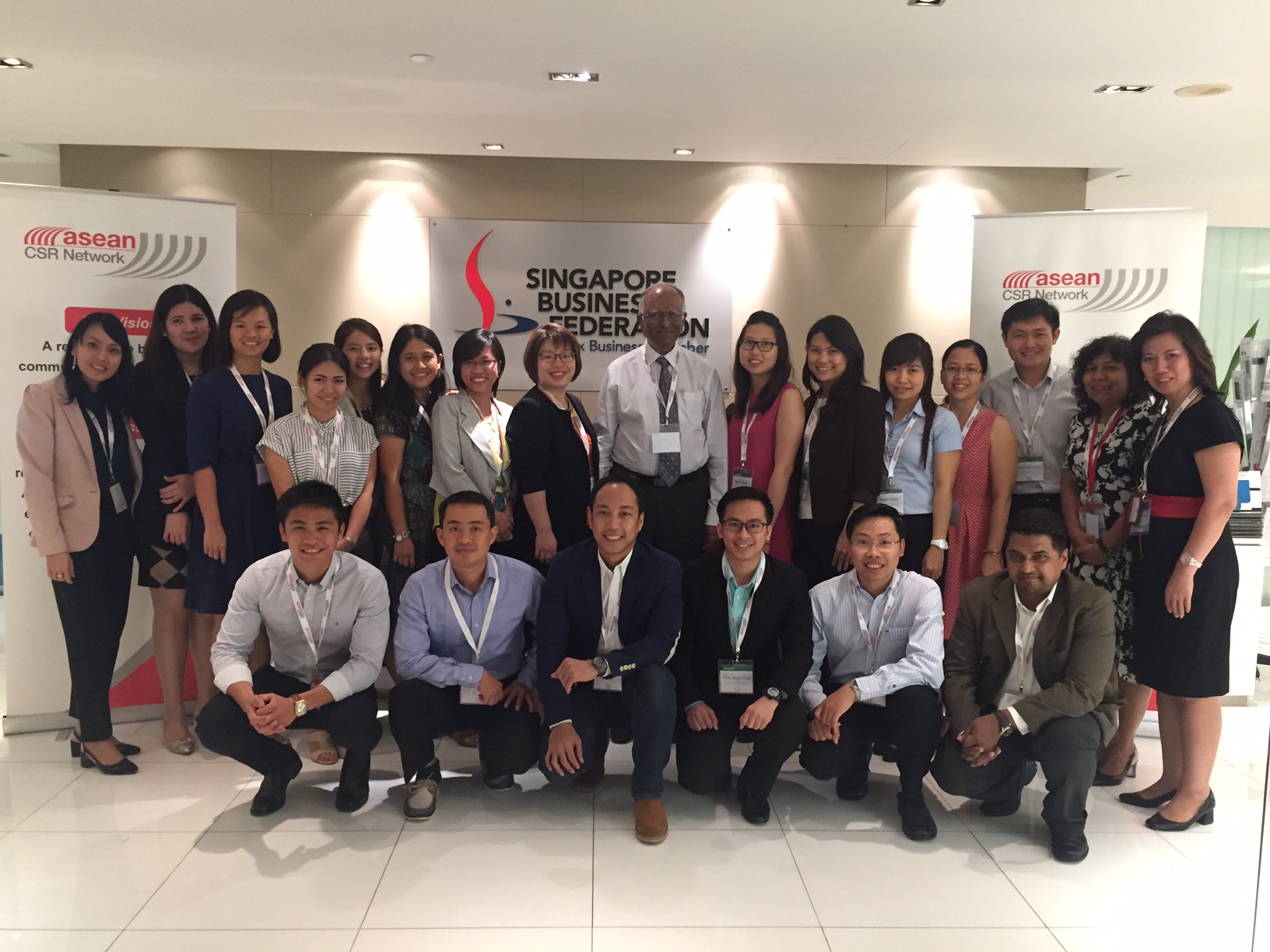
Inaugural batch of Fellows with staff of ASEAN CSR Network: (From L, top row) Philaiphone Vongpraseuth from Phousy Soles Group in Laos, Michelle Ong from Metro Bank Foundation in the Philippines, Irin Ng from Como Hotels & Resorts in Singapore, Vanida Khouangvichit from Village Focus International in Laos, Melissa Chong from ASEAN CSR Network (ACN), Dini Triyuni from WWF Indonesia, Nguyen Phuong Thao from ACN, Lydia Ang from CapitaLand in Singapore, Thomas Thomas from ACN, Ong Shiyun from the National Volunteer Philanthropy Centre in Singapore, Zin Mar Lwin from Norwegian People's Aid in Myanmar, Pidor Chhay from Transparency International Cambodia, Nguyen Thi Bich Hien from IUCN Vietnam, Sanva Saephan from KP Company in Laos, Braema Mathi from ACN, Ester Tjahjadi from ACN, Marcus Chong from ACN, Sambath Bun from G Gear Company in Cambodia, Aji Paramartha from KPMG Indonesia, Vo Ly Hoai Vinh from Coca-Cola Beverages Vietnam, Nguyen Dung Tien from the ILO-IFC Joint Programme on Better Work in Vietnam, and Selveraj A/L V Ramasamy from the Ministry of Foreign Affairs Malaysia.
Introduction of ASEAN CSR Network (ACN)'s missionand milestones by Thomas Thomas, CEO of ACN
Before meeting in Singapore, Fellows embarked on an online CSR programme created by the University of Nottingham, in order to understand basic theoretical principles and case studies of CSR in practice. A workshop was then held where Fellows broke into small groups to share their key learning outcomes from the online module, discussing the following key question: "What are the enablers and barriers to promoting CSR in ASEAN?". Some of the common 'enablers' shared were government policies and buy-in from top management, while a common 'barrier' was the profit-at-all-cost motive of many companies.
In the afternoon, Fellows paid a visit to Singapore's Old and New Parliaments, which presented an opportunity to understand Singapore's unique strength in robust policy-making in order to foster trust from the business community. A Parliament guide introduced the Fellows to Singapore's Westminster Parliamentary system and answered queries on how the main policy-making body functions in Singapore. The visit coincided with a Parliament sitting on the day and Fellows sat in a live debate on the Securities & Futures Bill. After the tour of Parliament, Fellows attended a book launch held at the Lee Kuan Yew School of Public Policy (LKYSPP), involving a panel discussion with Mr Jonathan Tepperman, Managing Editor of Foreign Affairs, and Prof Kishore Mahbubani, Dean of LKYSPP. The book was titled "The Fix: How Nations Survive and Thrive in a World of Decline", and Fellows gained insights on the pertinent issues in global politics today and how it might affect CSR.
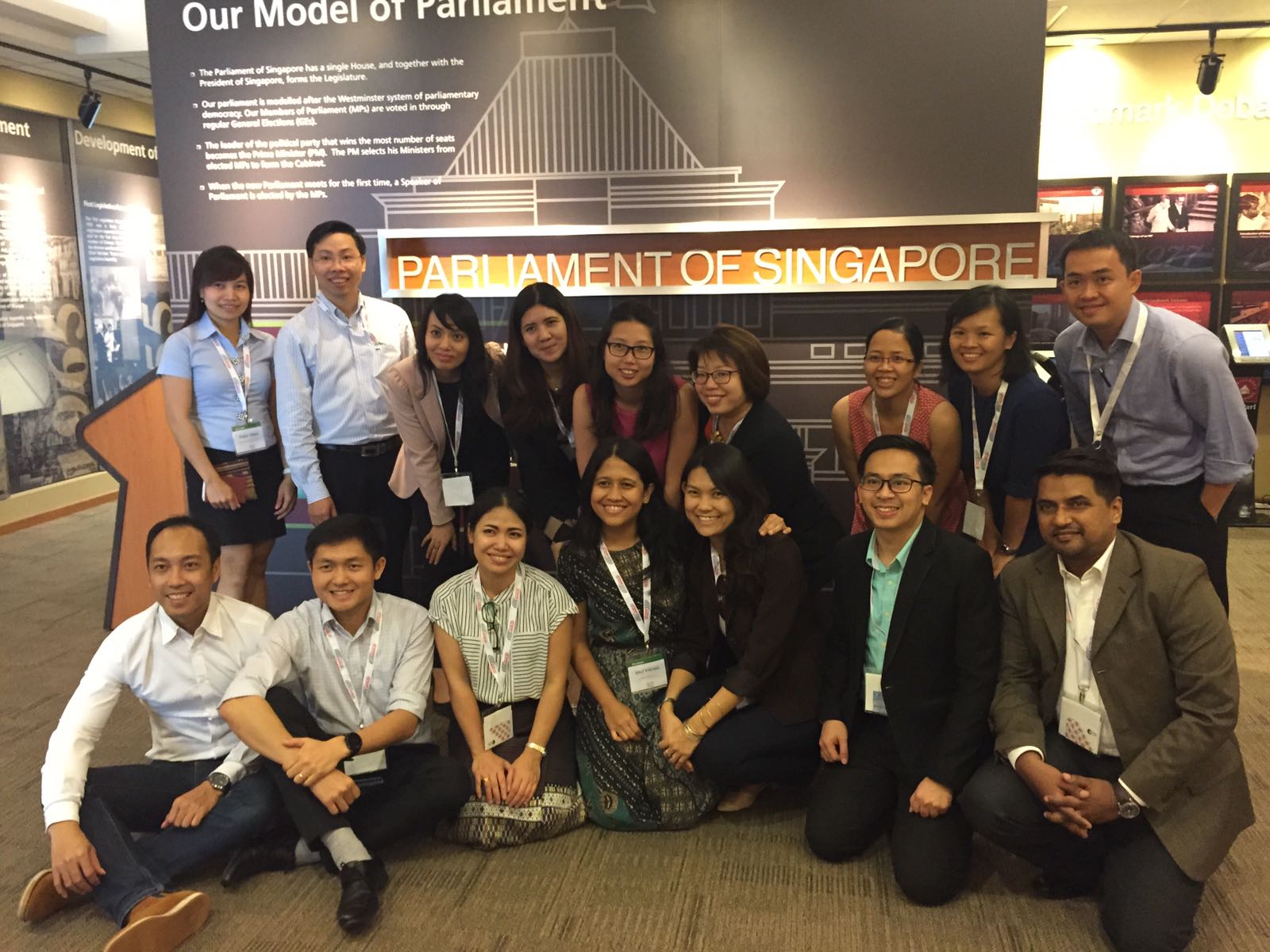
Tour of Singapore's Parliament
Fellows with Mr Jonathan Tepperman, Managing Editor of Foreign Affairs & Prof Kishore Mahbubani, Dean of the Lee Kuan Yew School of Public Policy (LKYSPP)
Day 2 (10 Jan 2017) - Business & Human Rights
On Day 2, Fellows spent the day at Singapore Management University (SMU)'s School of Law to understand how businesses ought to protect and respect human rights, starting with a classroom session with Prof Mahdev Mohan (Assistant Professor of Law & Director, Asian Business and Rule of Law Initiative, SMU). He shared common theoretical concepts such as the UN Guiding Principles on Business and Human Rights, as well as case studies from Cambodia and Singapore. This was followed by a presentation by one of ACN's corporate partners - Hitachi Asia - represented by Christian Bustamante (Sustainability Manager), who shared with the Fellows on Hitachi's commitment to Human Rights. Valuable insights were shared on Hitachi's corporate policy, the timeline of its development, and how the policy was implemented over time.
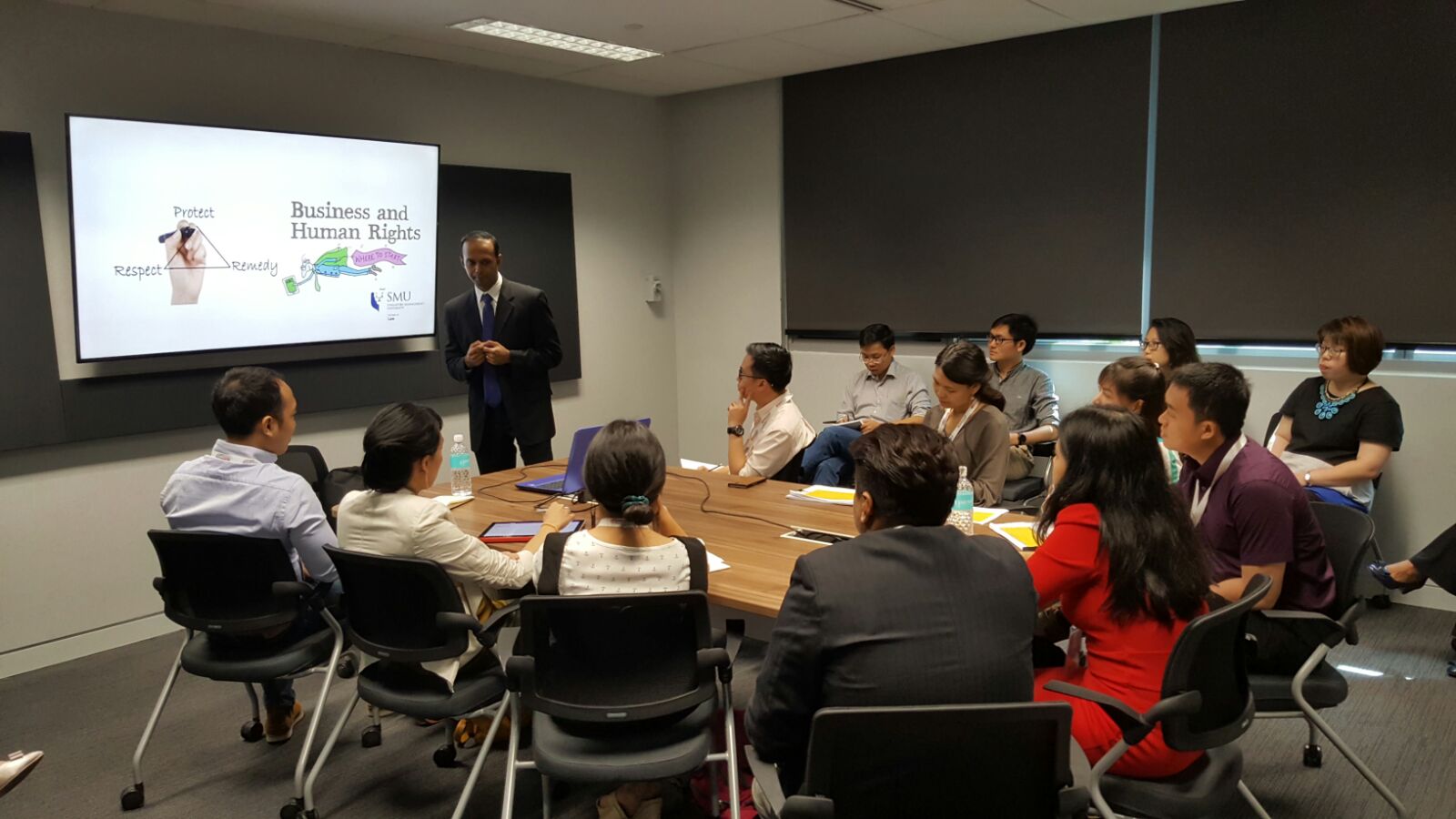
Prof Mahdev Mohan, (Assistant Professor of Law & Director, Asian Business and Rule of Law Initiative, SMU) sharing on the 'Protect, Respect and Remedy' framework
Q+A with Mr Christian Bustamante, Sustainability Manager of Hitachi Asia
The day continued with Mr Thomas Thomas (CEO, ASEAN CSR Network) sharing an introductory presentation covering CSR and its relevance in ASEAN, including some of the key research reports conducted by ACN which identified areas of progress and gaps in ASEAN countries. This was followed by Ms Cynthia Morel (Expert Advisor of the Asian Business & Rule of Law Initiative) who shared her extensive research on land rights issues in ASEAN, particularly in the agribusiness & mining industries.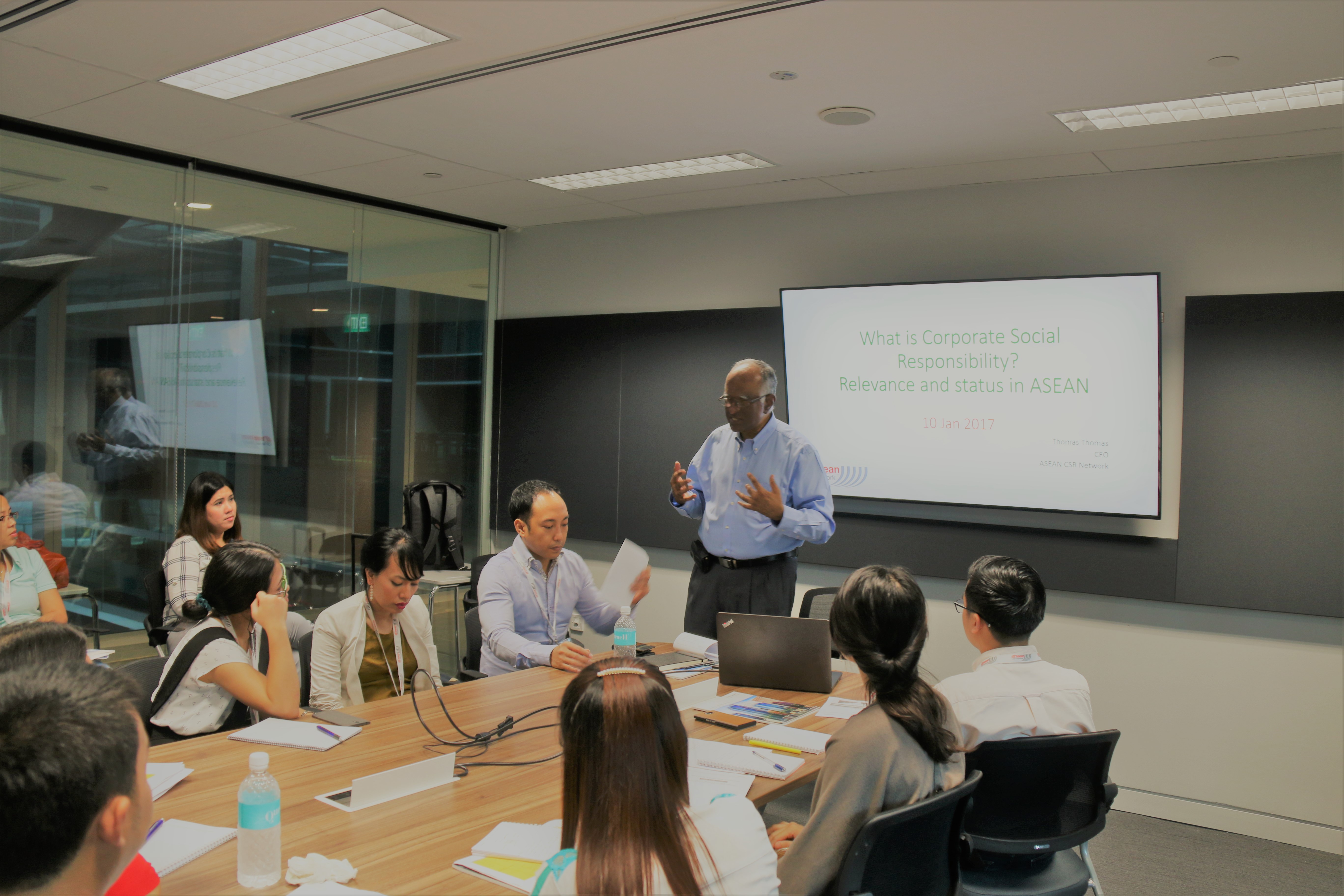
Mr Thomas Thomas (CEO, ASEAN CSR Network) on the business case for CSR - why should businesses care about the triple bottom line in today's context?
Cynthia Morel (Expert Advisor of the Asian Business & Rule of Law Initiative) leading a discussion on land acquisition issues and why it matters in ASEAN
Day 3 (11 Jan 2017) - Governance in Businesses
Day 3's focus was on business integrity, corporate governance and compliance - held at the National University of Singapore (NUS) Business School. Prof Lawrence Loh (Director of Centre of Governance, Institutions and Organisations (CGIO)) started the session with an introduction to business ethics, posing the opening question: "Can Ethics be Taught?". Prof Lawrence then introduced philosophical frameworks to help Fellows solve dilemmas in decision-making, using the "Lifeboat Exercise" as an analogy. This included an introduction to the body of work from philosophers such as JS Mills, Immanuel Kant, John Rawls and Aristotle. He ended off by presenting the latest findings in a piece of research conducted together with ACN, focusing on the state of corporate disclosure by the largest 50 companies in Indonesia, Malaysia, Philippines, Singapore and Thailand.
Workshop and class discussions led by Prof Lawrence Loh (Director of Centre of Governance, Institutions and Organisations (CGIO)), on approaches to ethics and dilemmas in decision-making
The afternoon's learning focused on governance in practice, starting with Mr G Balasubramaniam who shared on the best practices from his years of experience as a Compliance Advisor to top companies. This was followed by Mr Michael Lee from Singapore's anti-corruptions bureau - the Corruption Practices Investigations Bureau (CPIB) - providing insights on how Singapore has maintained its integrity culture.
Discussions led by Mr. Bala (Compliance Advisor) and Michael Lee (Corruptions Practices Investigations Bureau) on governance in practice
Day 4 (12 Jan 2017) - Migrant Workers & Labour Issues
Day 4 featured a deep dive into issues surrounding migrant workers and labour. The aim was to help Fellows understand how the government and civil society groups in Singapore ensure migrant workers retain good relations with their employers, as well as the challenges faced in managing their wellbeing and enforcing their rights. The day started with a site visit to the Migrant Workers' Centre (MWC), an NGO which champions fair employment practices. Their Executive Director, Mr Bernard Menon, shared about the migrant worker landscape in Singapore, including the fact that more than a third of Singapore's workforce were migrants from Bangladesh, Malaysia, China, Myanmar and other neighbouring countries. Following the site visit, a panel discussion was held with Mr Alex Au (Vice President, Transient Workers Count Too (TWC2), Ms Stephanie Chok (Researcher, Humanitarian Organisation for Migration Economics (HOME)) and Mr Chng Yi Ken (Senior Assistant Director, Foreign Manpower Unit, Workplace Policy & Strategy Division, Ministry of Manpower (MOM)). The main issue discussed was how these different organisations and agencies support migrant workers in Singapore, and manage the different demands and pressures from all stakeholders.
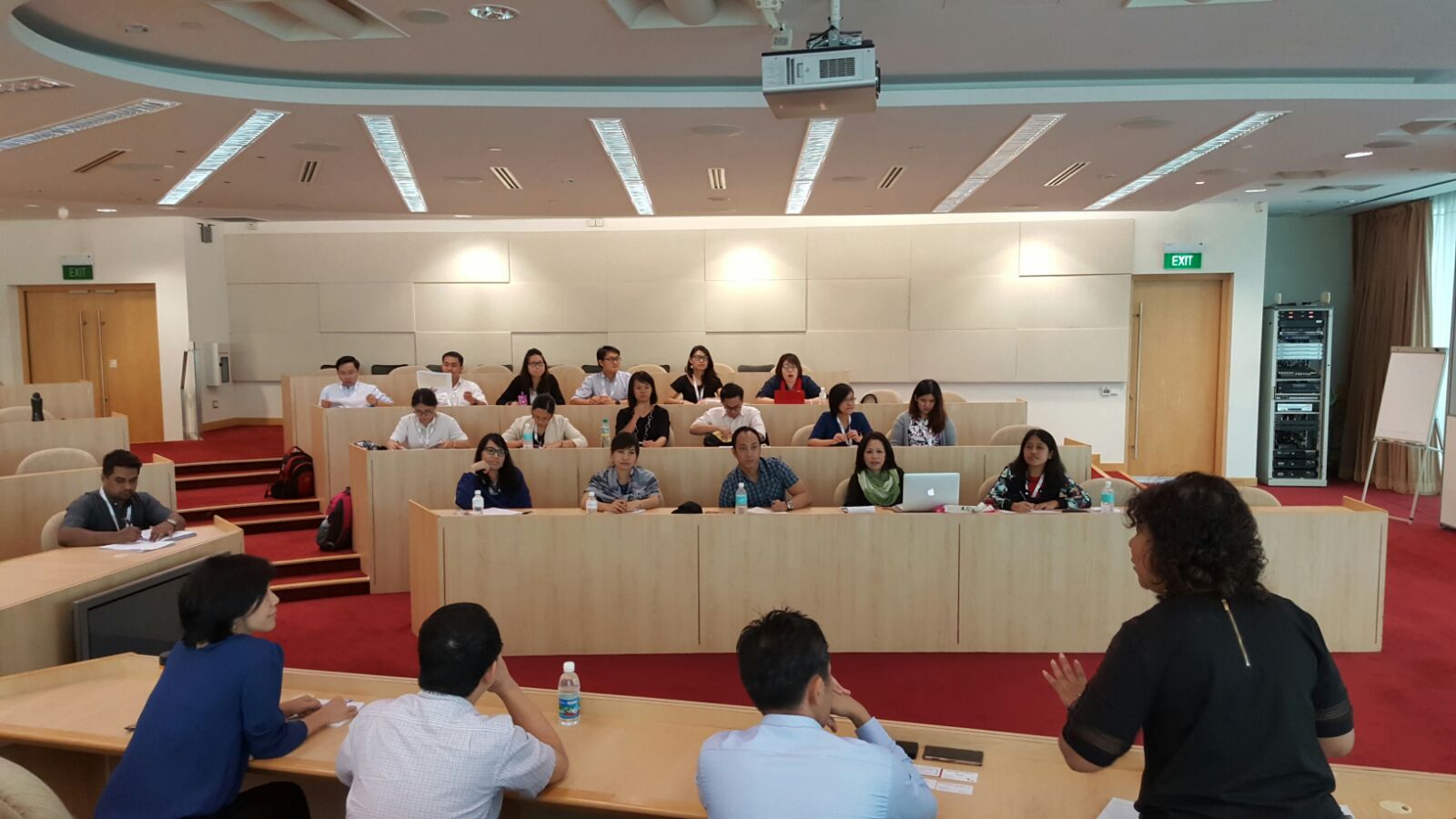
Presentation by Mr. Bernard Menon (Migrant Workers' Centre) and Panel Discussion with Transient Workers Count Too (TWC2), Ministry of Manpower (MOM) and Humanitarian Organisation Migration Economics (HOME)
After lunch, another panel discussion took place to focus on Singapore’s labour movement and tripartite system, and how industrial relations is maintained through the various agencies. Panellists were representatives from Singapore's main agencies directed to manage labour relations in Singapore – Mr Frederick Ho (Deputy Director, International Affairs, National Trades Union Congress (NTUC)), Mr Tay Wee Yee, (Senior Manager, Singapore National Employers Federation (SNEF)) and Mr Lau Weng Hong (Deputy Director, Industrial Relations, MOM)). Discussions surrounded how government, trade unions and the private sector work hand in hand to maintain healthy labour relations and economic stability.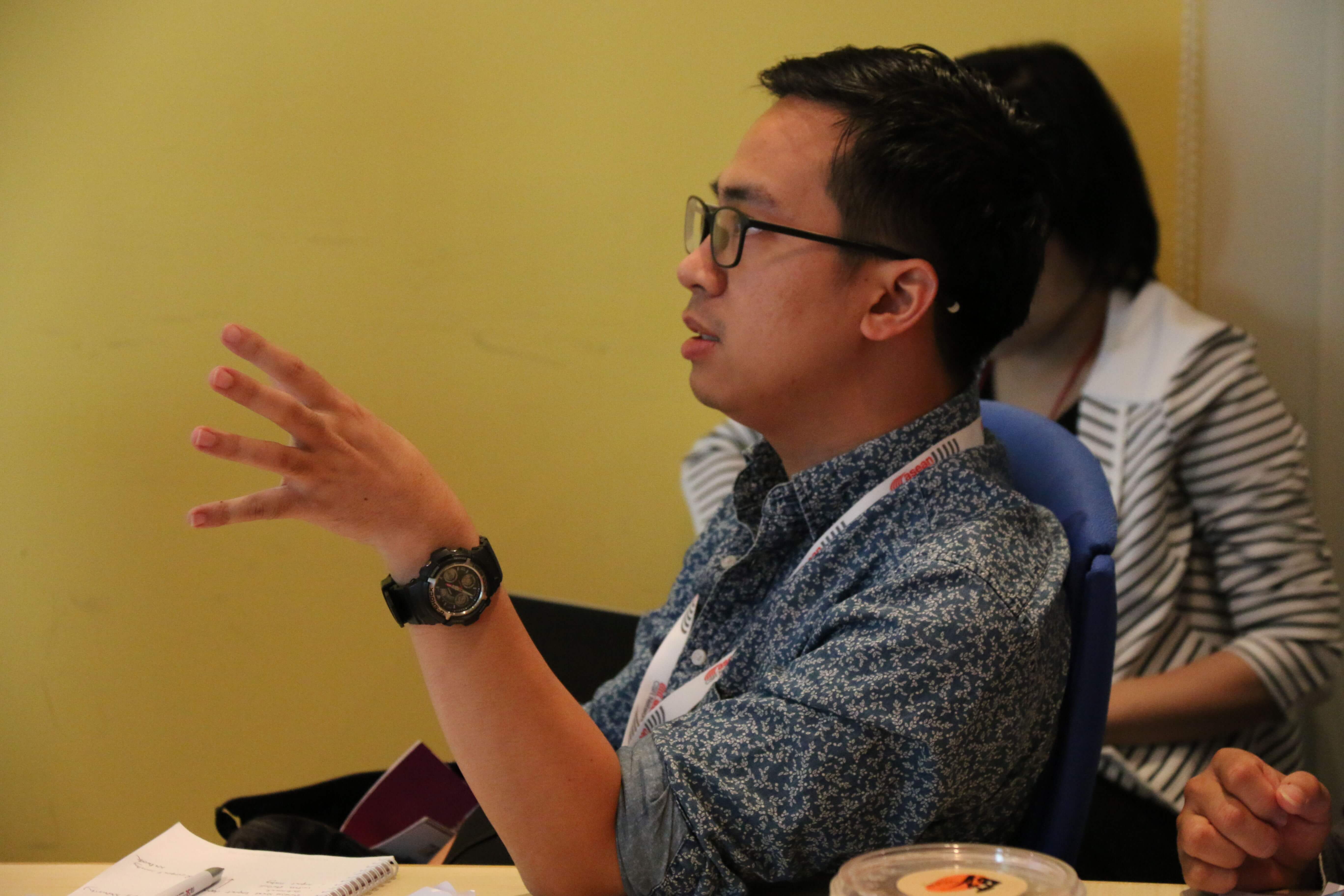
Mr. Frederick Ho from the National Trade Unions Congress (NTUC) sharing the key milestones in Singapore's history of labour relations, and how it has developed since post-WWF2 with prevalent strikes and work stoppages
Final Day (13 Jan 2017) - Social Enterprises & Impact Investment
The final day of the Fellowship focused on Singapore's social enterprise and impact investment space, and Fellows made a site visit to the Singapore Centre for Social Enterprises (raiSE). Ms Lyn Chen from Research & Strategy at raiSE shared how companies could be involved in the social good movement through social innovation - for example, by investing in new products and processes with a potential to create social impact. This was followed by a presentation by Ms Mythili Mamidanna from DBS Foundation who shared about the bank foundation's mandate to support social enterprises in Singapore through grants, consultancy services and dedicated programmes.
Visit to Singapore Centre for Social Enterprise (raiSE) and sharing by DBS Foundation - on how a government-led and private-sector initiative supports budding social entrepreneurs in Singapore
The visit to raiSE was folllowed by lunch at Eighteen Chefs - a restaurant chain founded by an ex-convict, which now hires a large team of ex-convicts to operate its 12 outlets nationwide. The social enterprise hopes to find alternative ways to help youths and ex-convicts reintegrate back into society, while providing them a platform for them to realise their talents in the F&B industry.
Lunch at Eighteen Chefs at the outlet in Star Vista - one of Singapore's greenest malls operated by CapitaLand. One of the Fellows, Ms Lydia Ang, also gave an impromptu tour of the mall as the Sustainability Manager of CapitaLand.
After lunch, Fellows heard from Asian Venture Philanthropy Network (AVPN), one of the first and leading players in Singapore's social investment space. Mr Kelvin Teo, Managing Director of the AVPN Knowledge Centre, shared on the progress, challenges and opportunities for social investment in ASEAN. He explained that social investing was a relatively new but exciting industry, involving the financing of social enterprises, encompassing types of investment such as venture philanthropy and impact investment.
This was followed by a presentation from Mr Wilson Ang (Executive Director, Global Compact Network Singapore (GCNS)), who wrapped up the final session by providing an overview of the CSR landscape in Singapore, including the trends, opportunities and challenges faced by companies in adopting CSR.
Mr Kevin Teo and Ms Phuong Anh Nguyen (Asian Venture Philanthropy Network), and Mr Wilson Ang (Global Compact Network Singapore) sharing on trends in social investing and CSR in Singapore
The day ended with a debrief and sharing by the Fellows on the key learning points gathered during the Fellowship. To close the 5-day learning journey, a dinner was hosted at Furama Riverfront Hotel with Ambassador Ong Keng Yong, former ASEAN Secretary-General, who shared his insights on how the responsible business agenda can be promoted in the region..
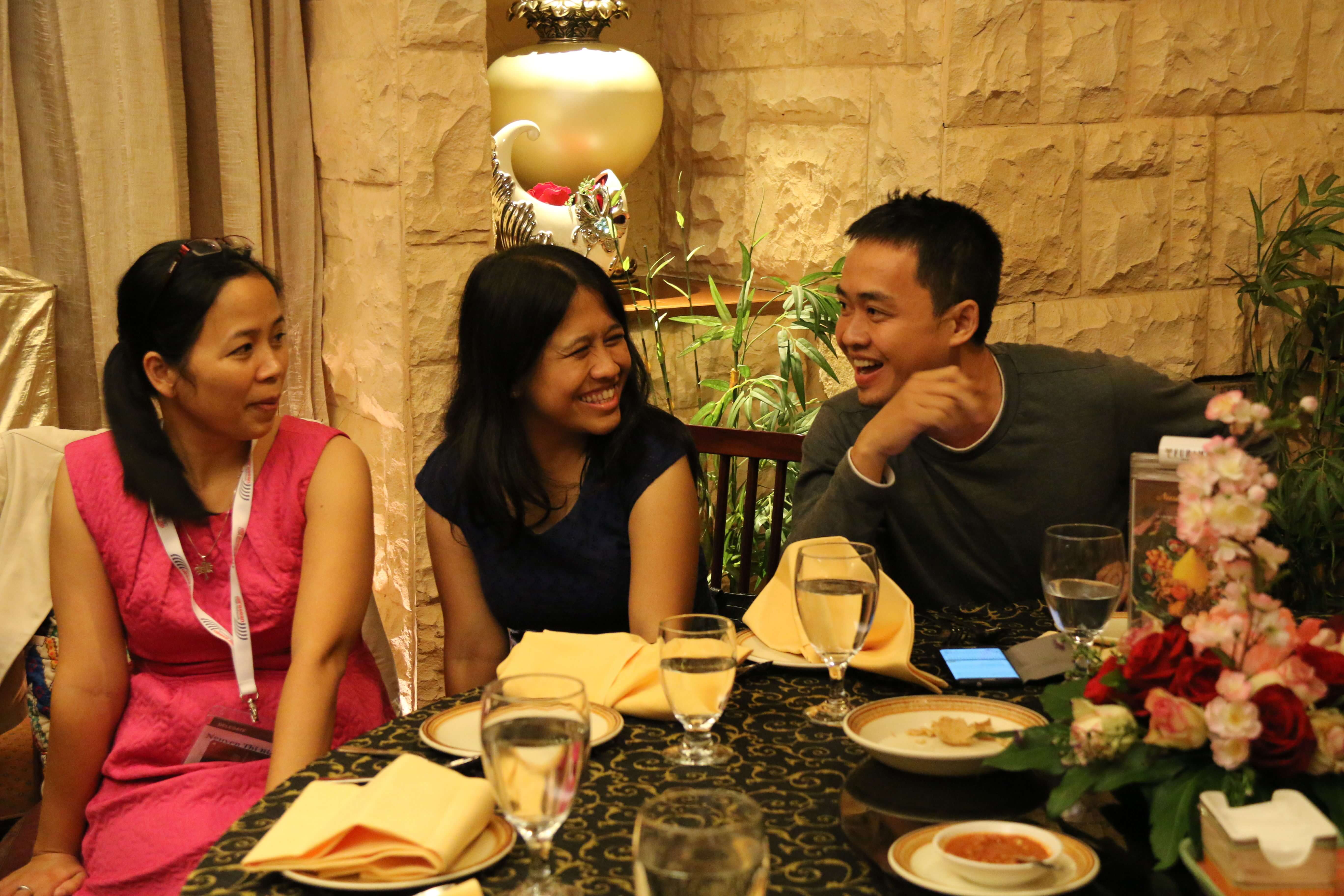
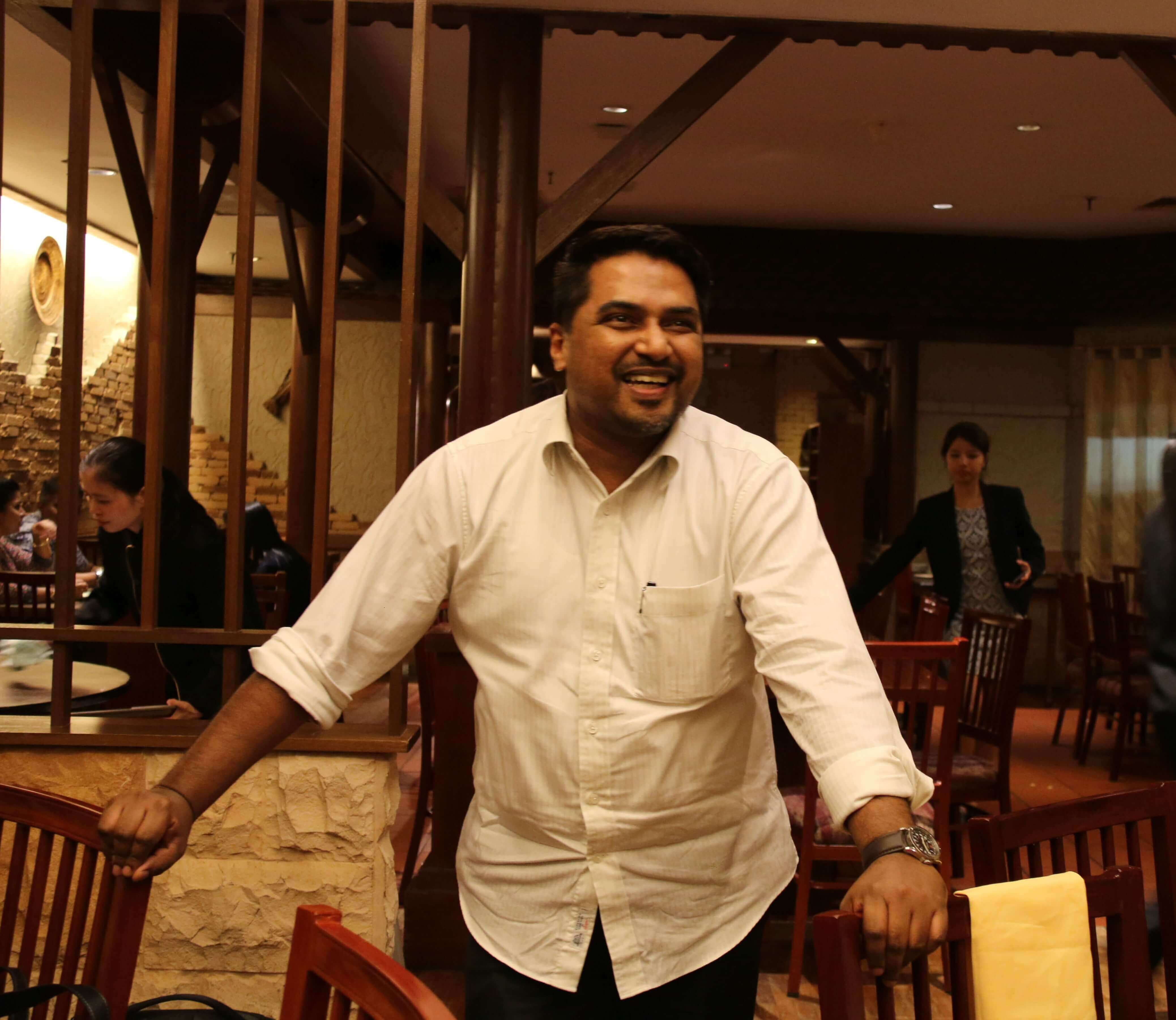
Dinner and conversations with Ambassador Ong Keng Yong, former ASEAN Secretary-General, on where ASEAN is heading with regards to responsible business practices
The inaugural ASEAN CSR Fellowship continues in Indonesia (April 2017), Myanmar (July 2017) and the Philippines (November 2017).
Indonesia Day 1 (3 Apr 2017) - Visit to ASEAN Secretariat
The ASEAN CSR Fellowship started its country programme in Indonesia. Fellows are going to spend 5 days from 3-7 April in Jakarta to learn about the status and key challenges in and opportunities for responsible business practices in ASEAN and Indonesia. Some of the key topics will be discussed include business and human rights, business and environment, youth empowerment, and partnership for development. The Indonesia programme is organised by ACN in partnership with Indonesia Business Links
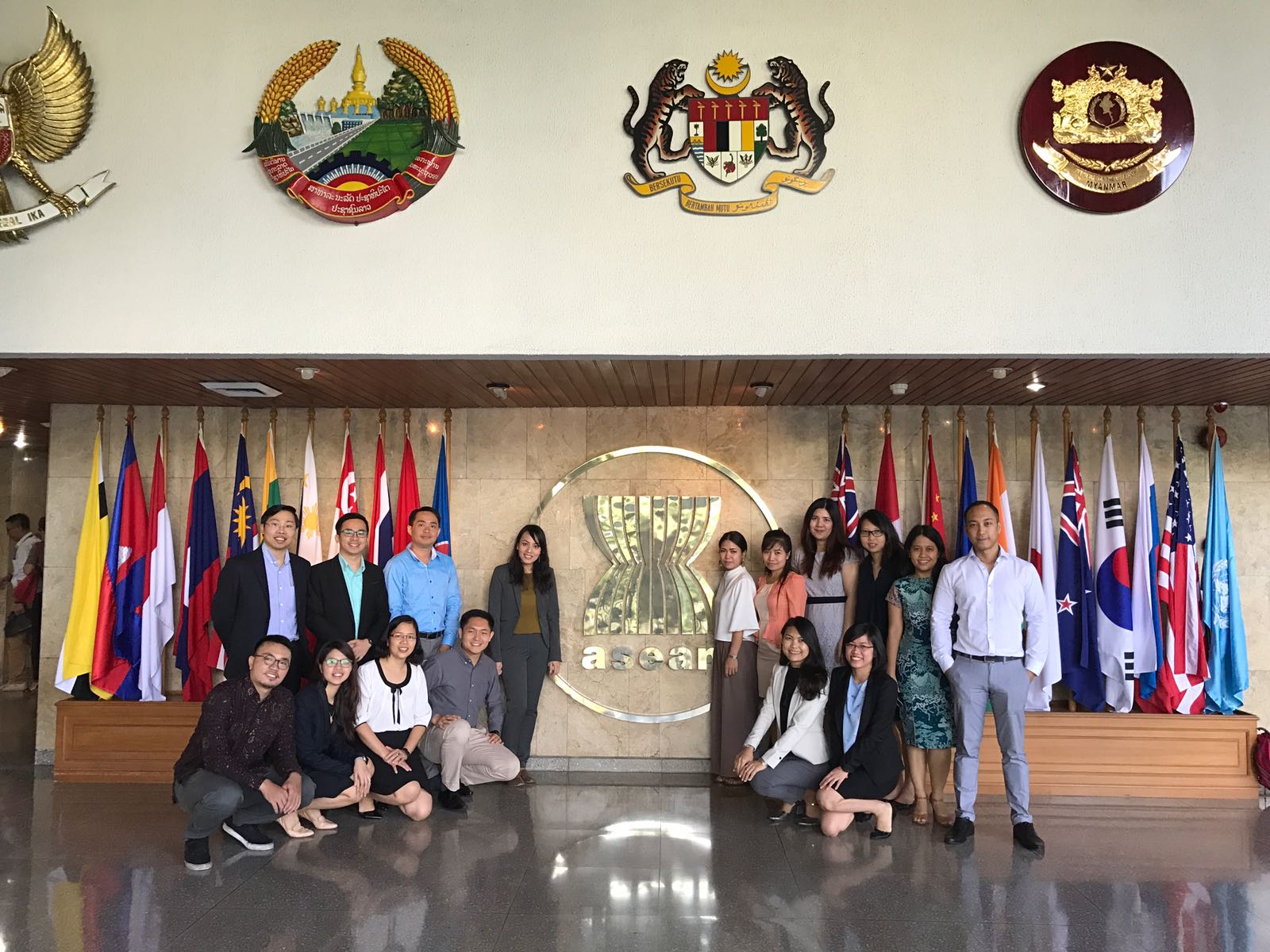
Fellowship Members in front of the ASEAN offices with ACN Team members Thao and Melissa
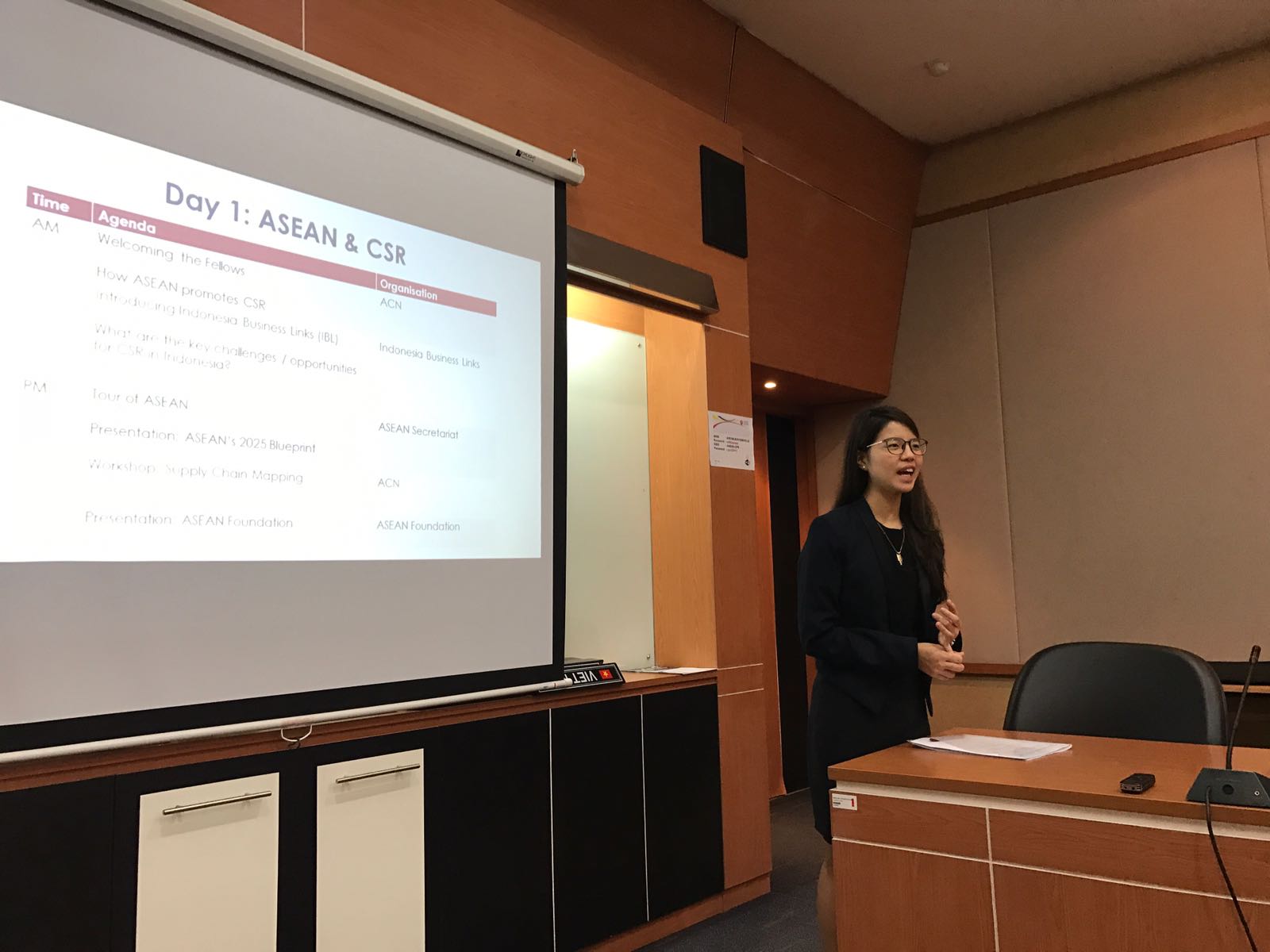
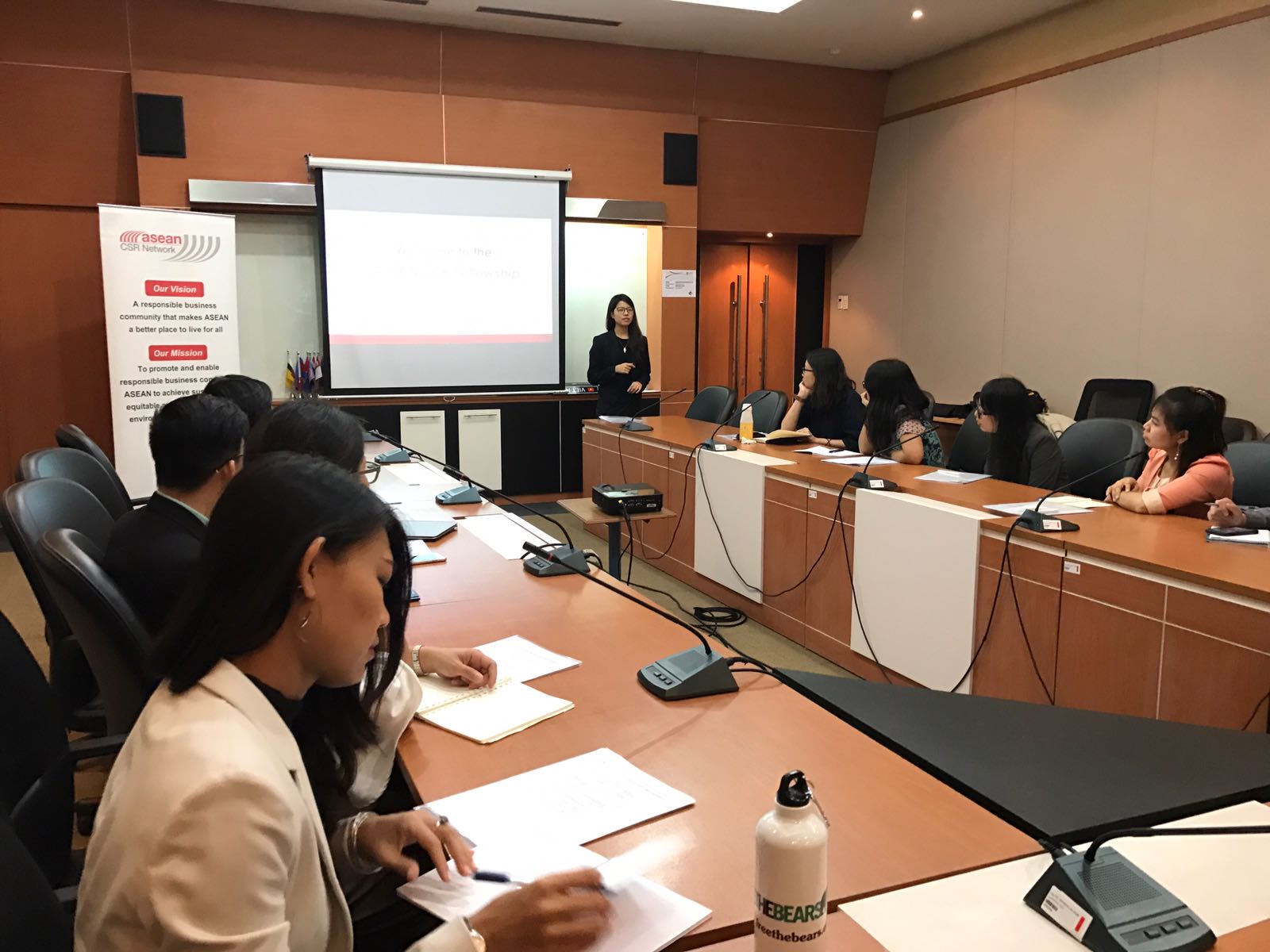
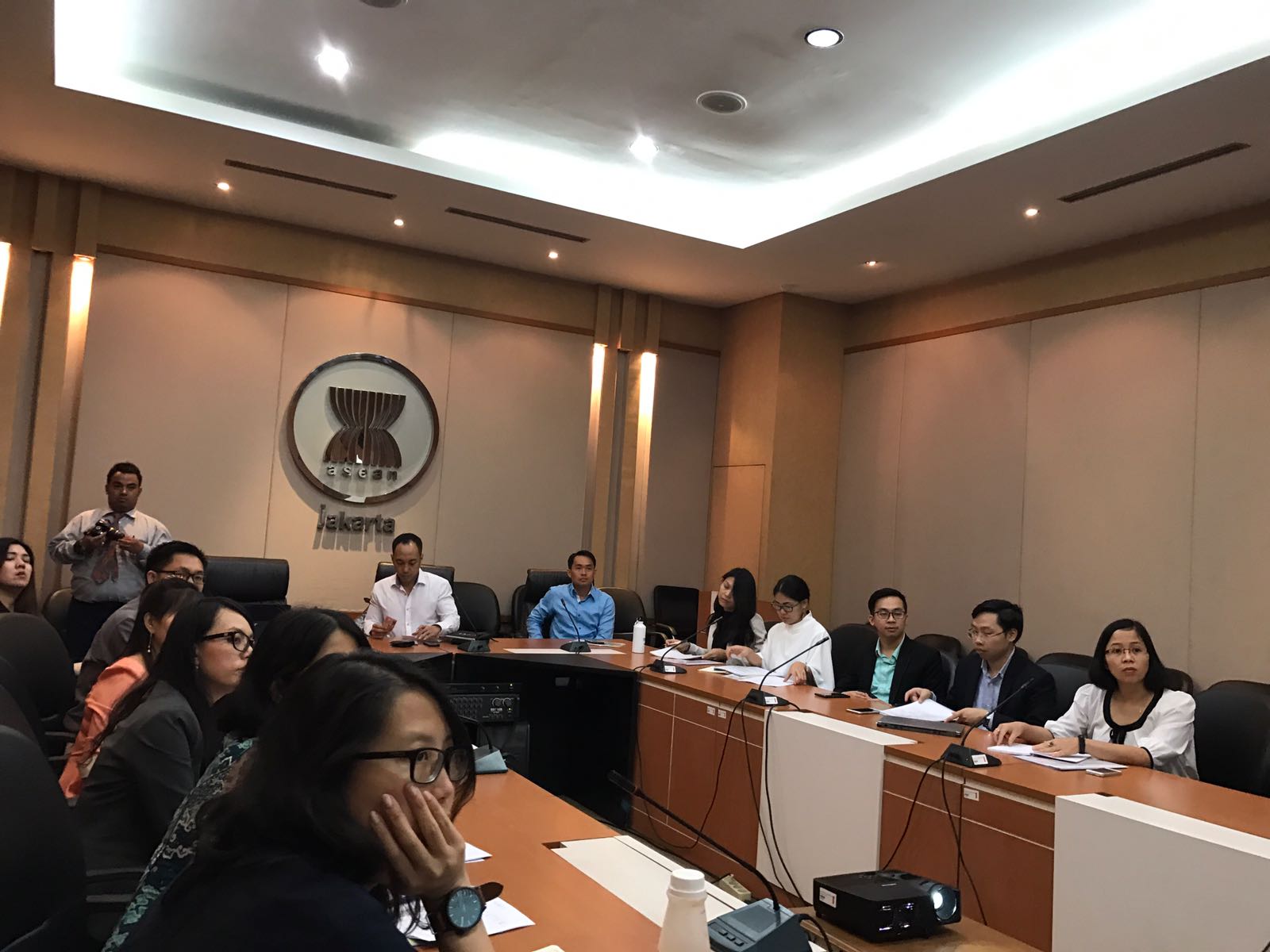
Opening Session with Ms. Melissa Chong of the ACN
The morning session opened with an introduction by Ms. Melissa Chong, ACN's Project Co-ordinator, on what the Fellows should expect during the week and a short briefing on the events for the day.
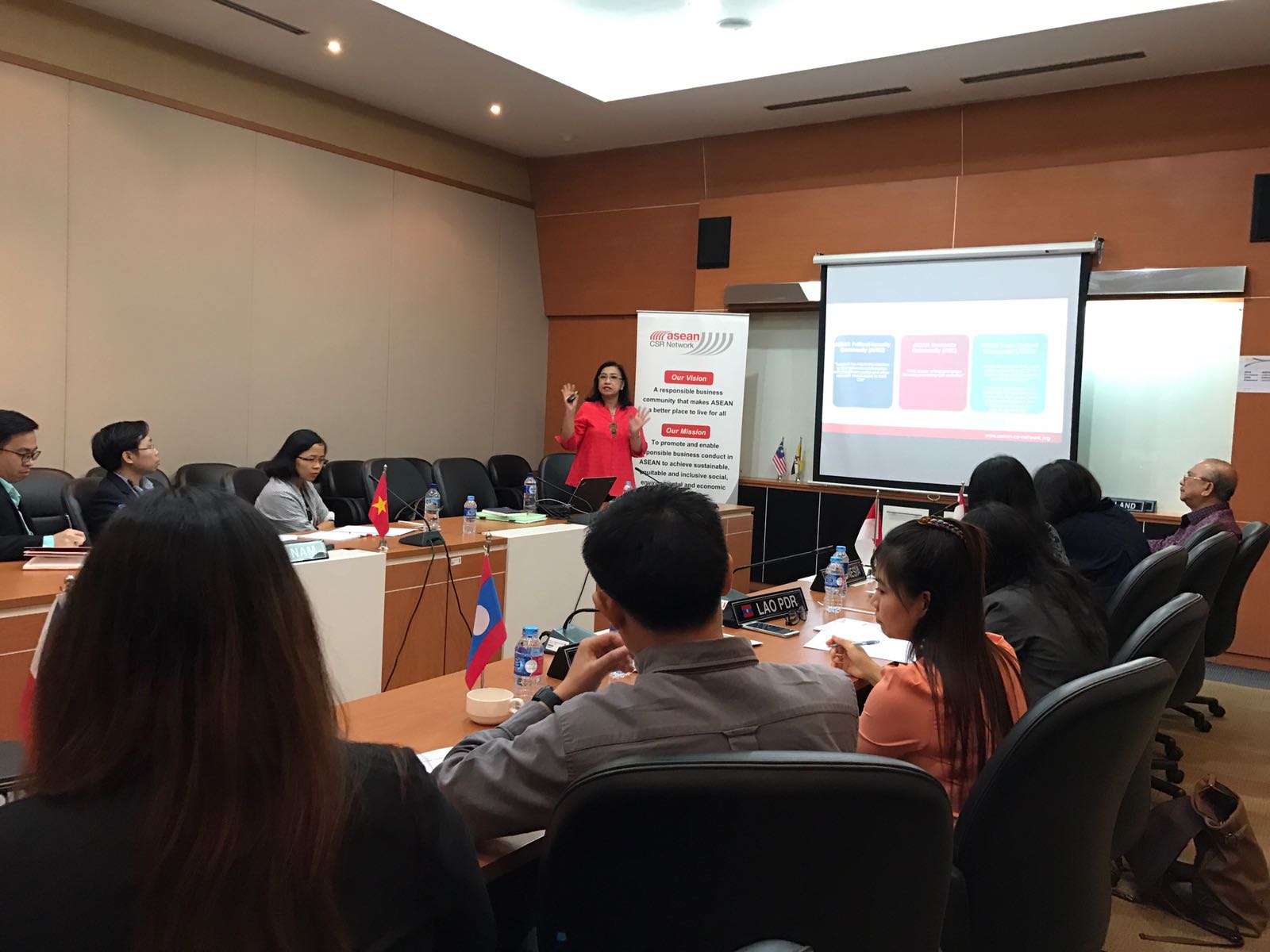
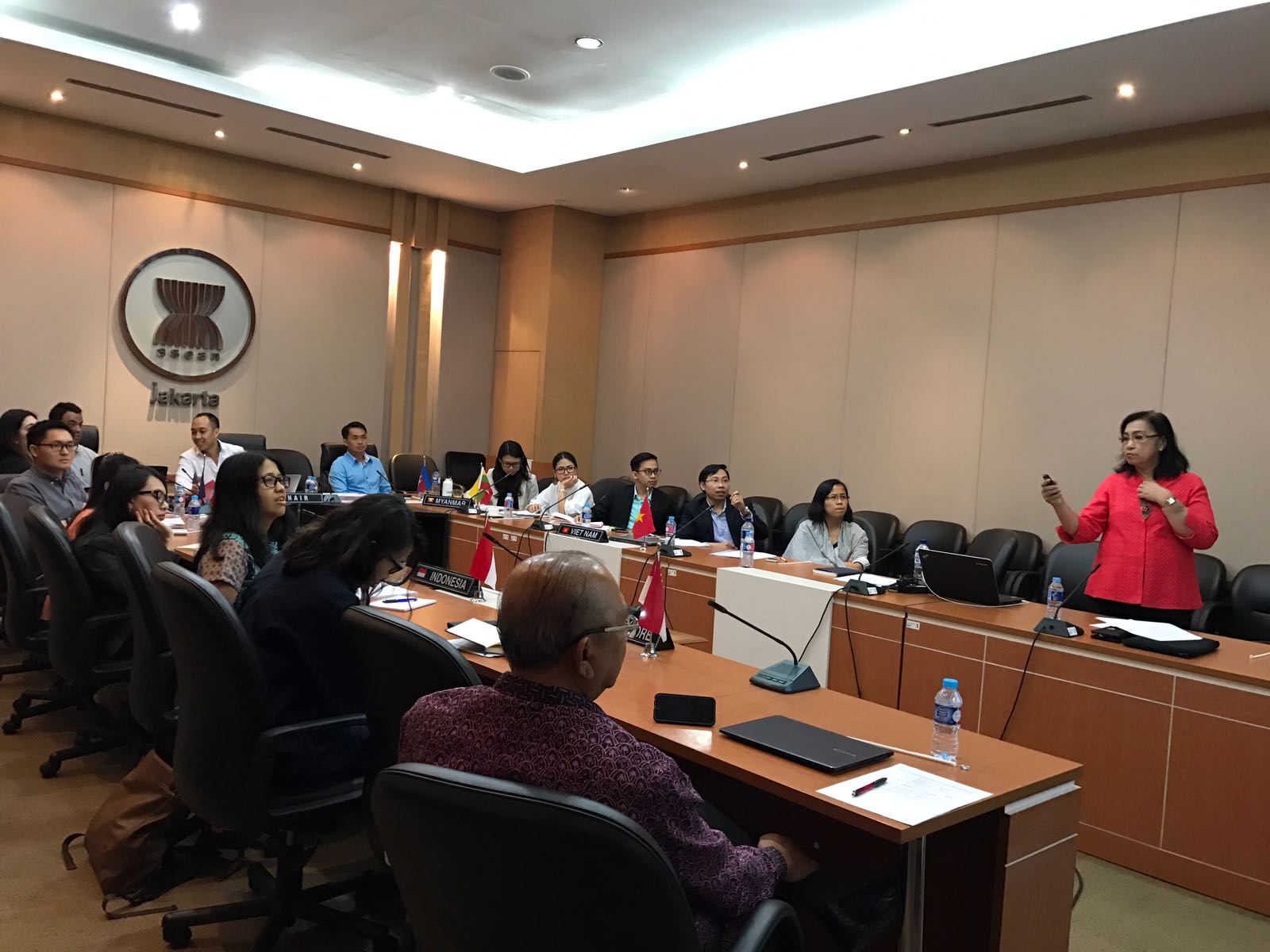
Briefing by Ms. Yanti Triwadiantini, Chair of ACN
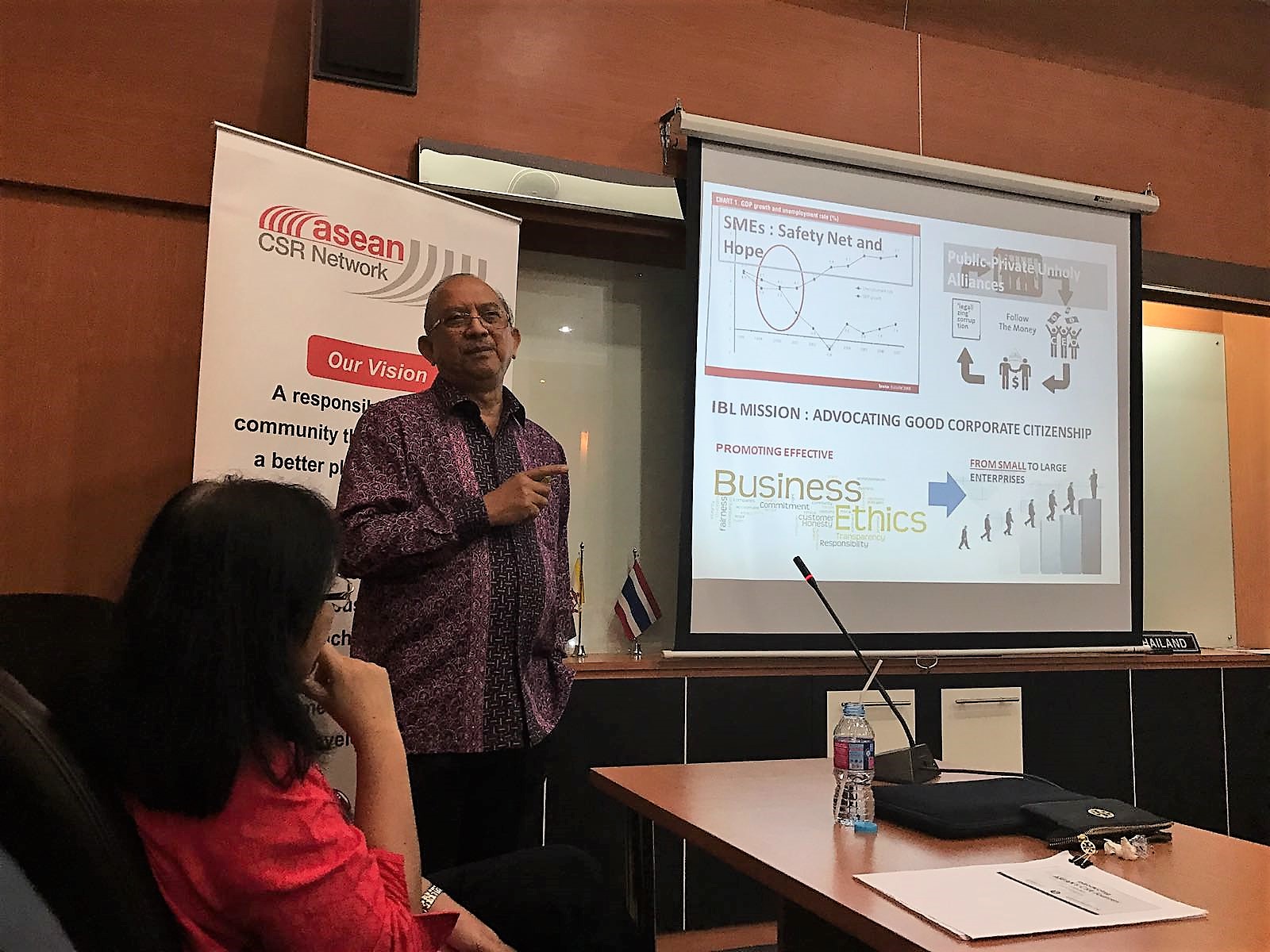
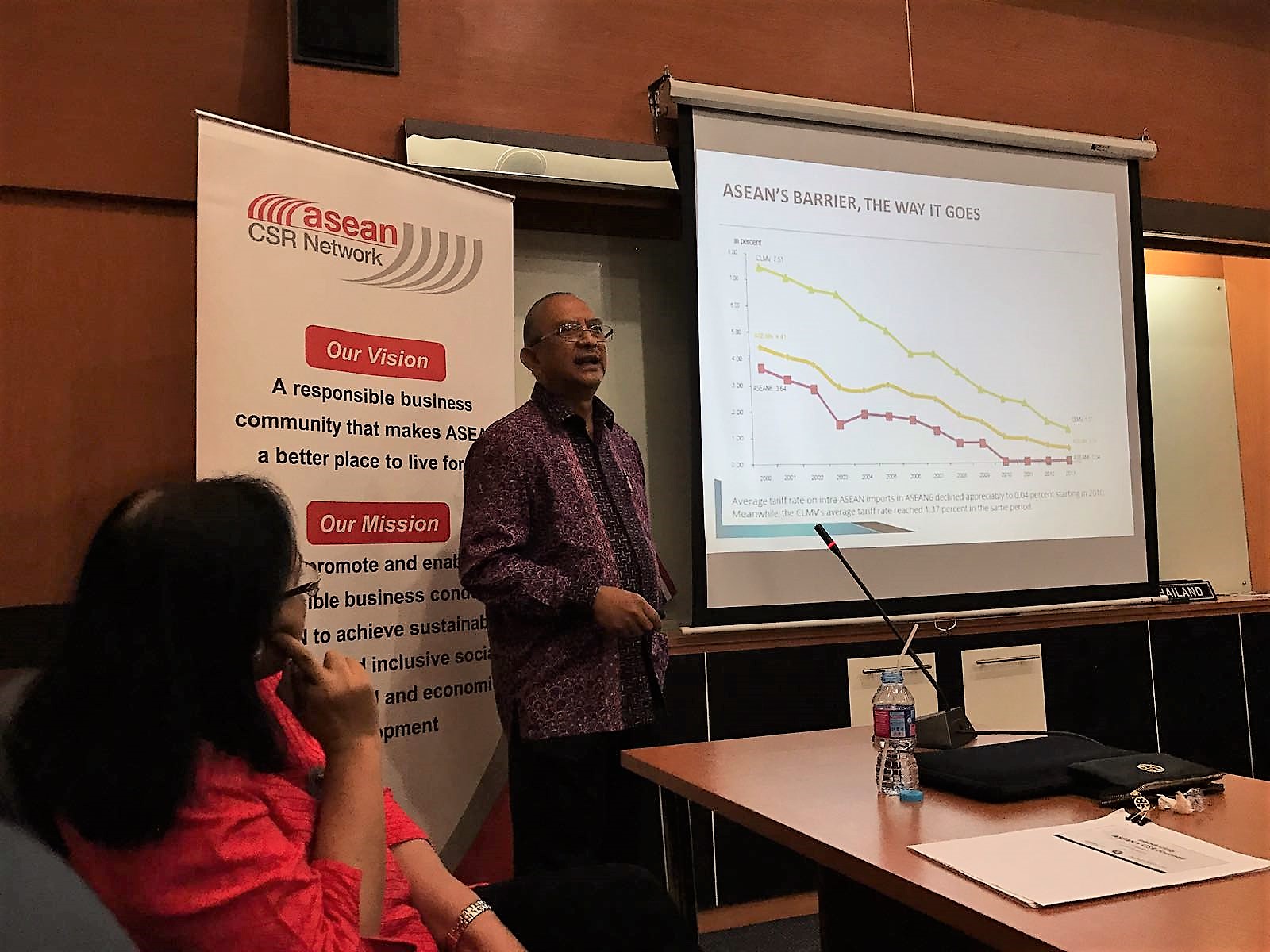
Chairman of IBL Heru Prasetyo sharing about the context, key challenges and opportunities for CSR in Indonesia and the role of IBL
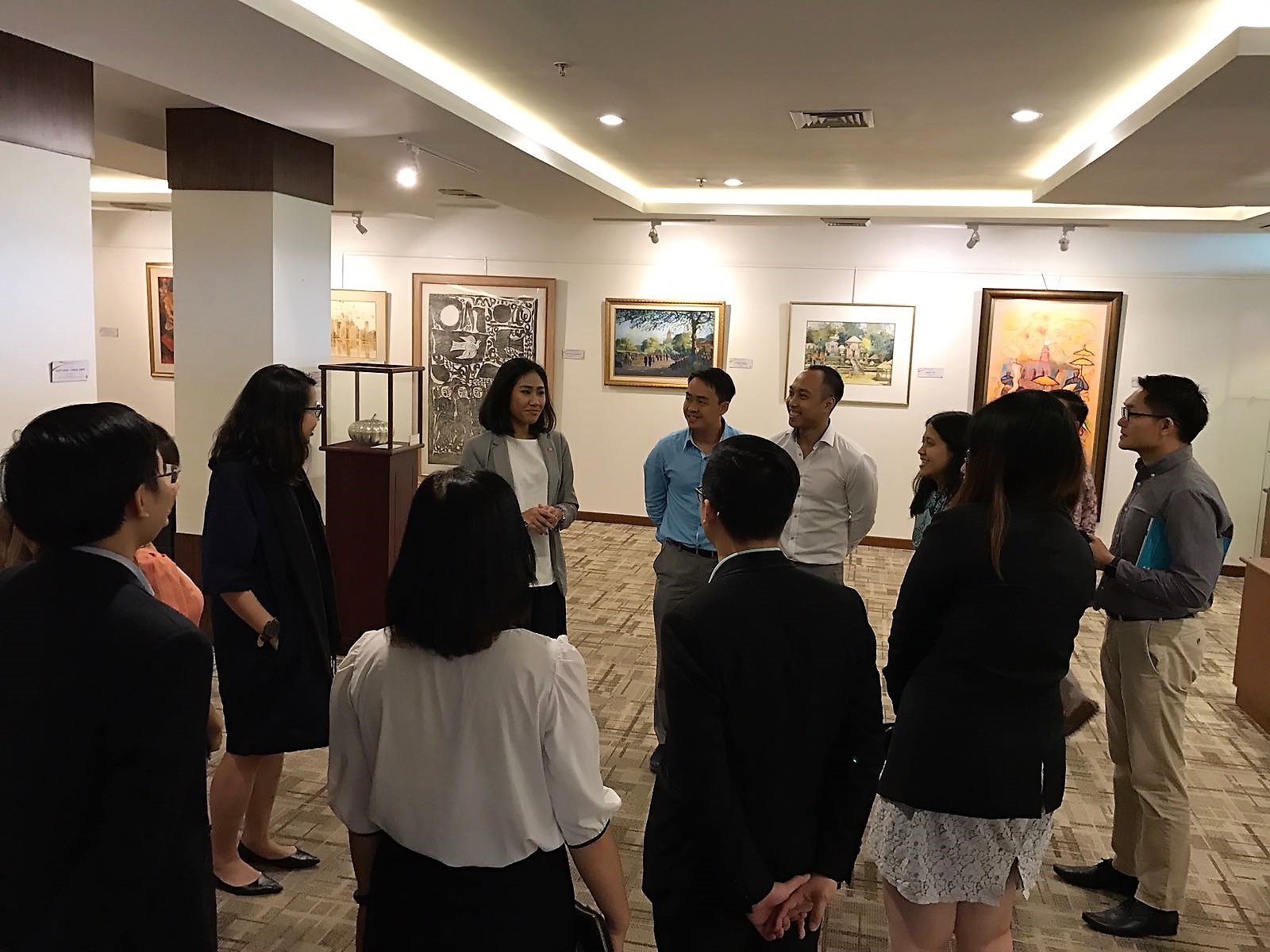
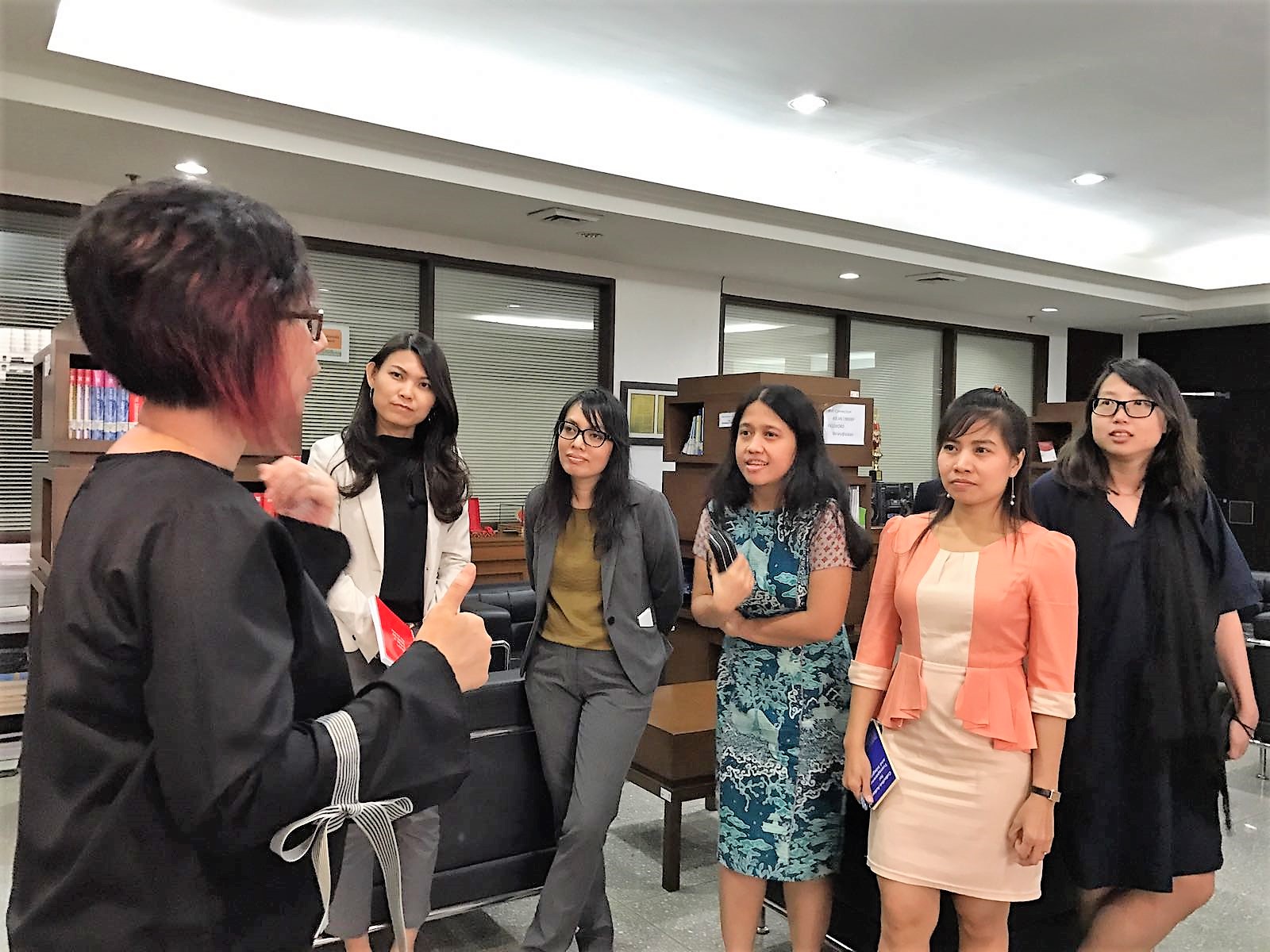
The Fellowship visits the ASEAN Gallery and Library in order to learn about it's history and contributions.
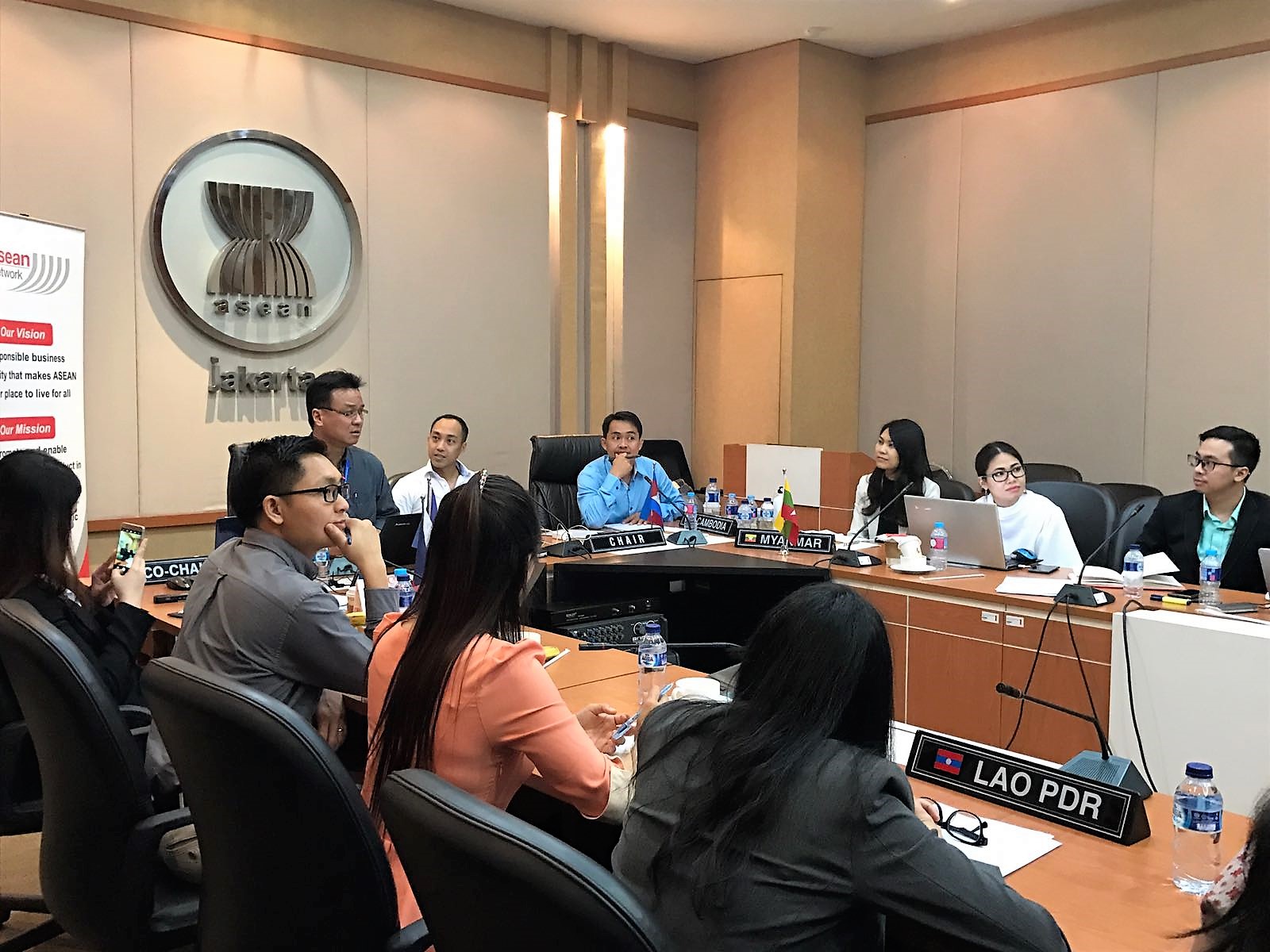
Mr Lee Yoong Yoong, Director of Community Affairs Directorate, ASEAN Secretariat sharing about the history of ASEAN and the ASEAN 2025 Blueprint
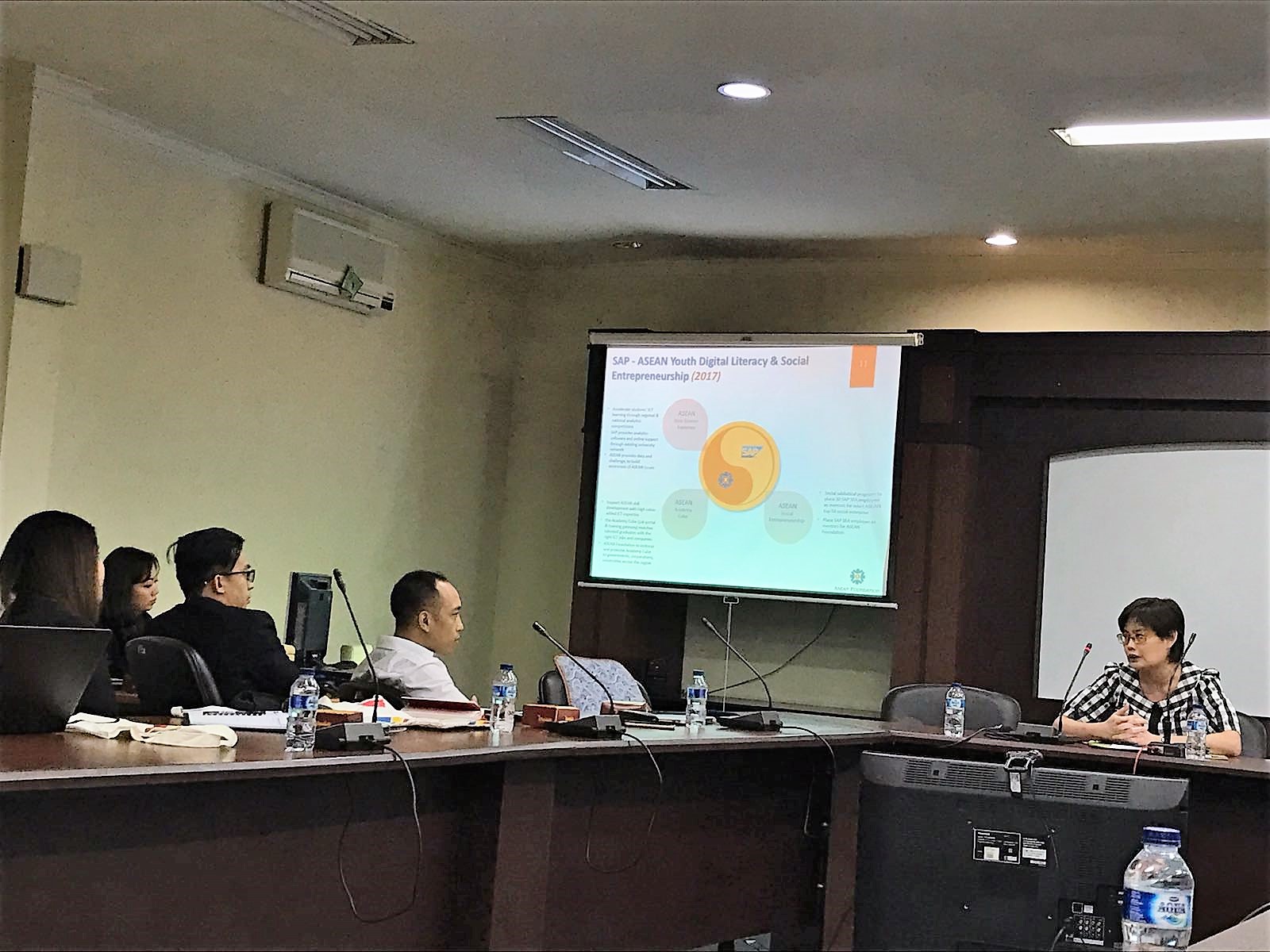
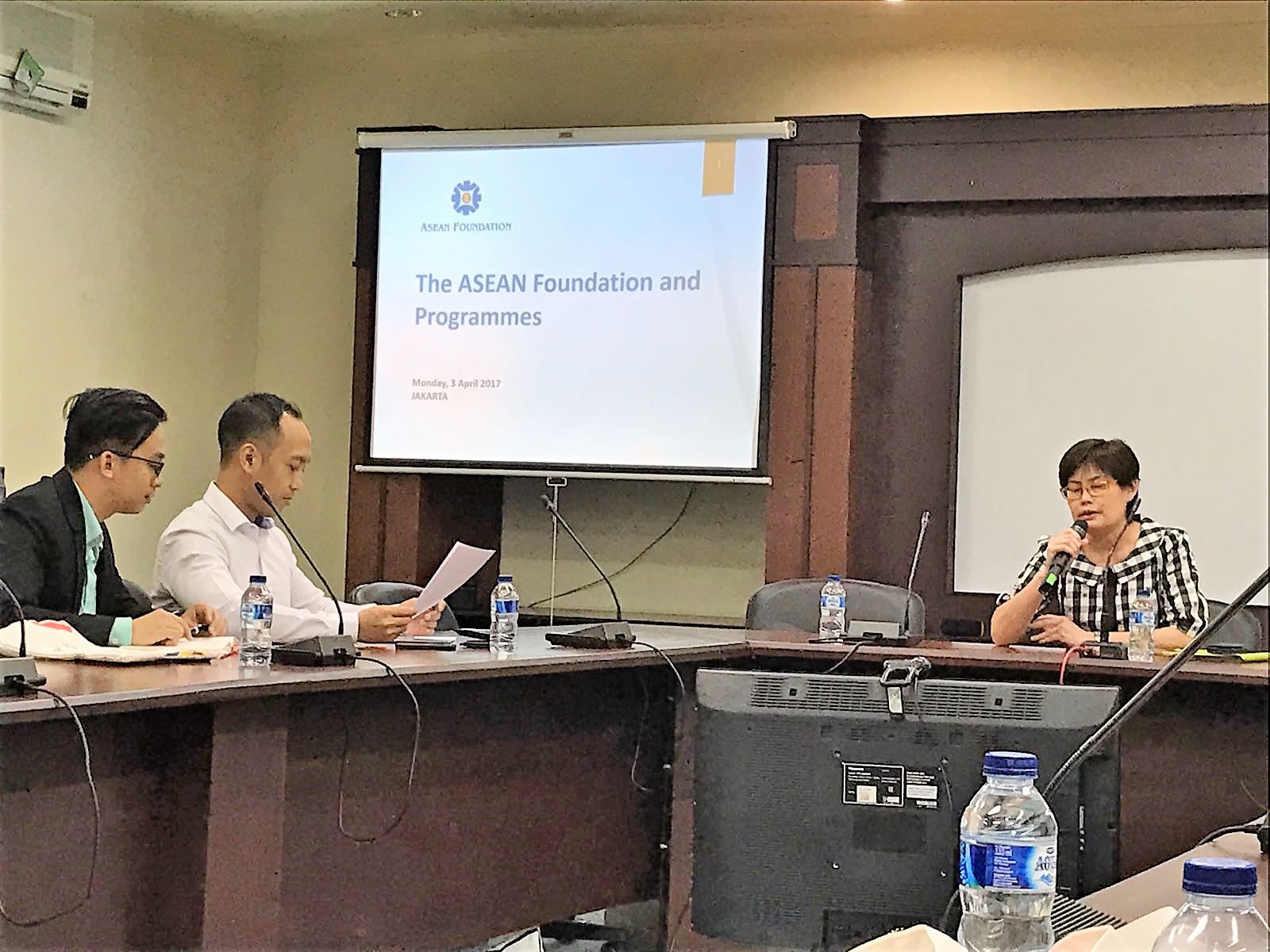
Ms. Elaine Tan, Executive Director of the ASEAN Foundation sharing the the ASEAN CSR Fellows about the ASEAN Foundation's mandate to promote greater awareness of the ASEAN identity, human resource development, people-to-people interaction, and close collaboration among the business sector, civil society, academia and other stakeholders in ASEAN.
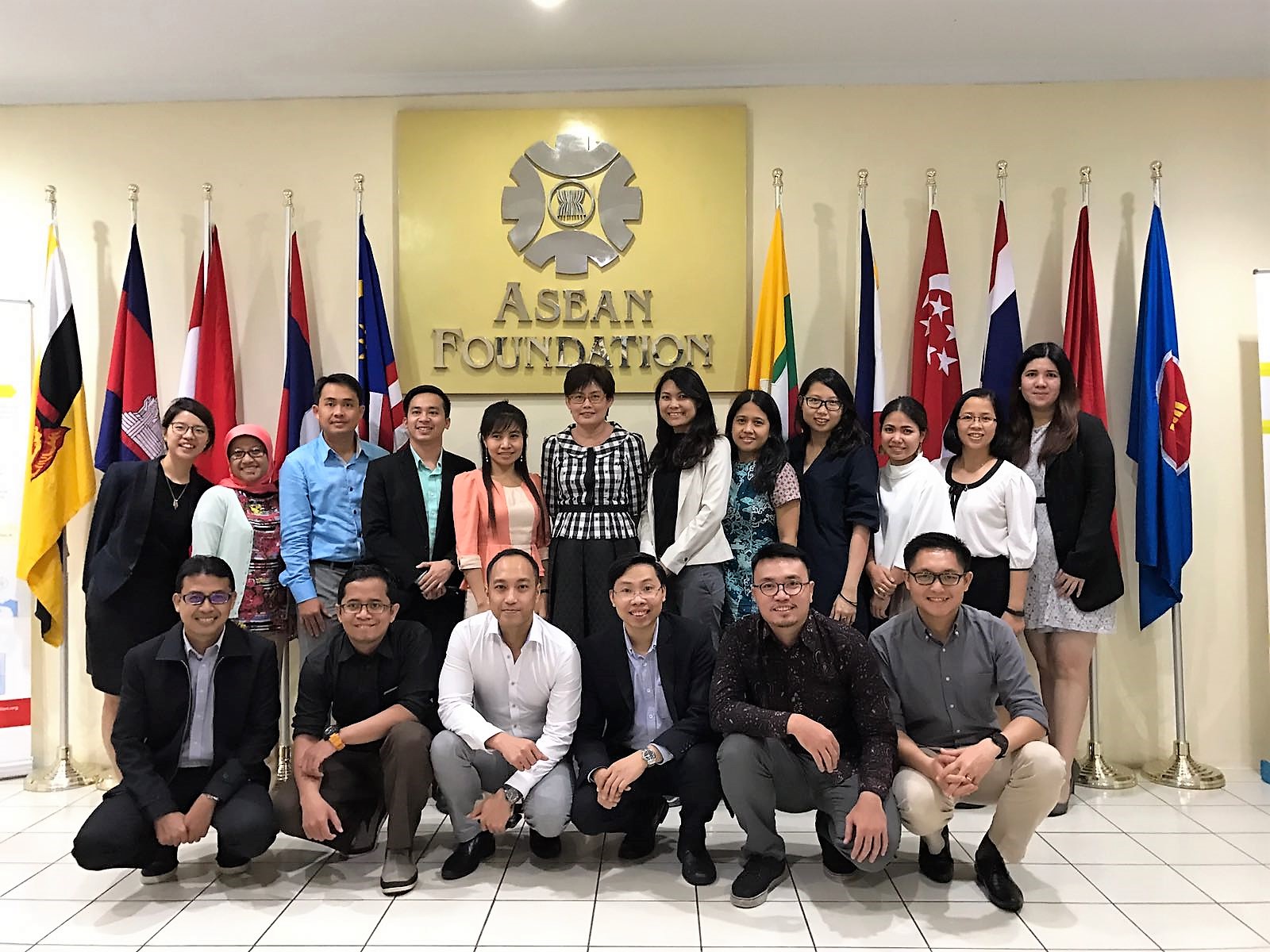
End of a long and friuitful day 1 for the ASEAN CSR Fellowship Programme.
Indonesia Day 2 (4 Apr 2017) - Visit to ASEAN Secretariat
Day 2 (April 4th) of the ASEAN CSR Fellowship programme in Indonesia will focus on 2 topics: business and human rights, and collective action for business integrity in Indonesia. Speakers are from Vale, Oxfam, Telkomtelstra and Indonesia Chamber of Commerece and Industry (KADIN)
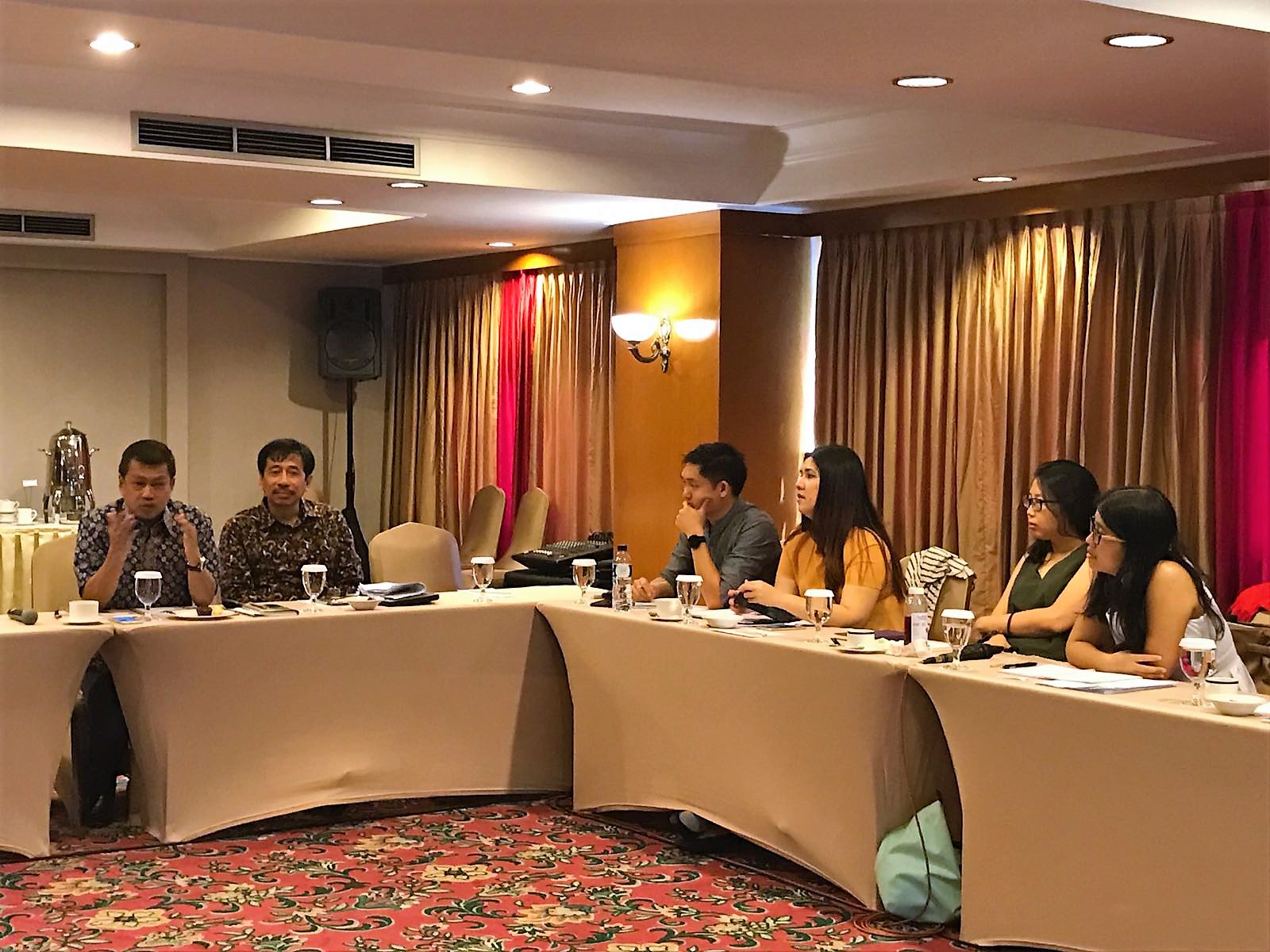
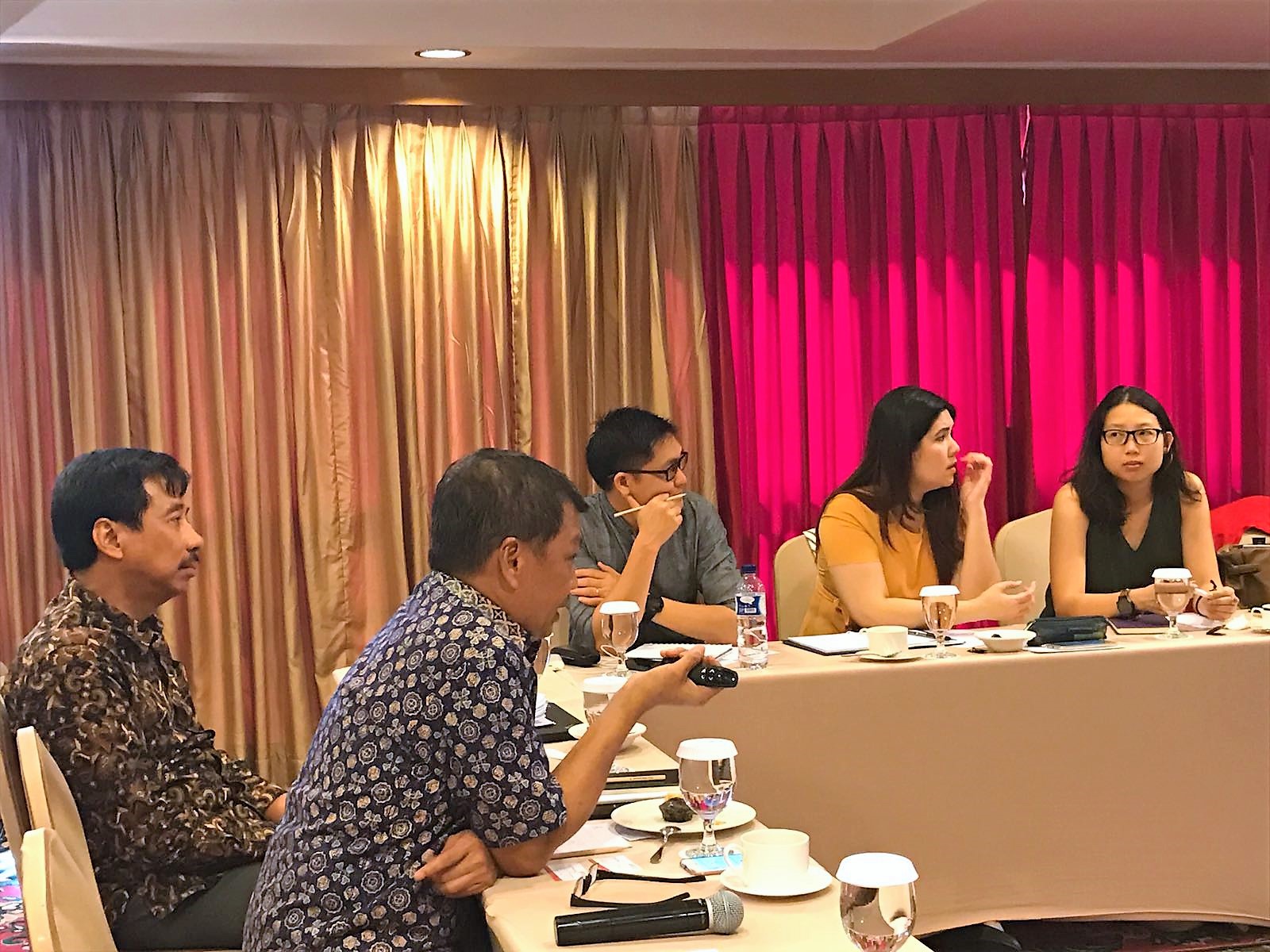
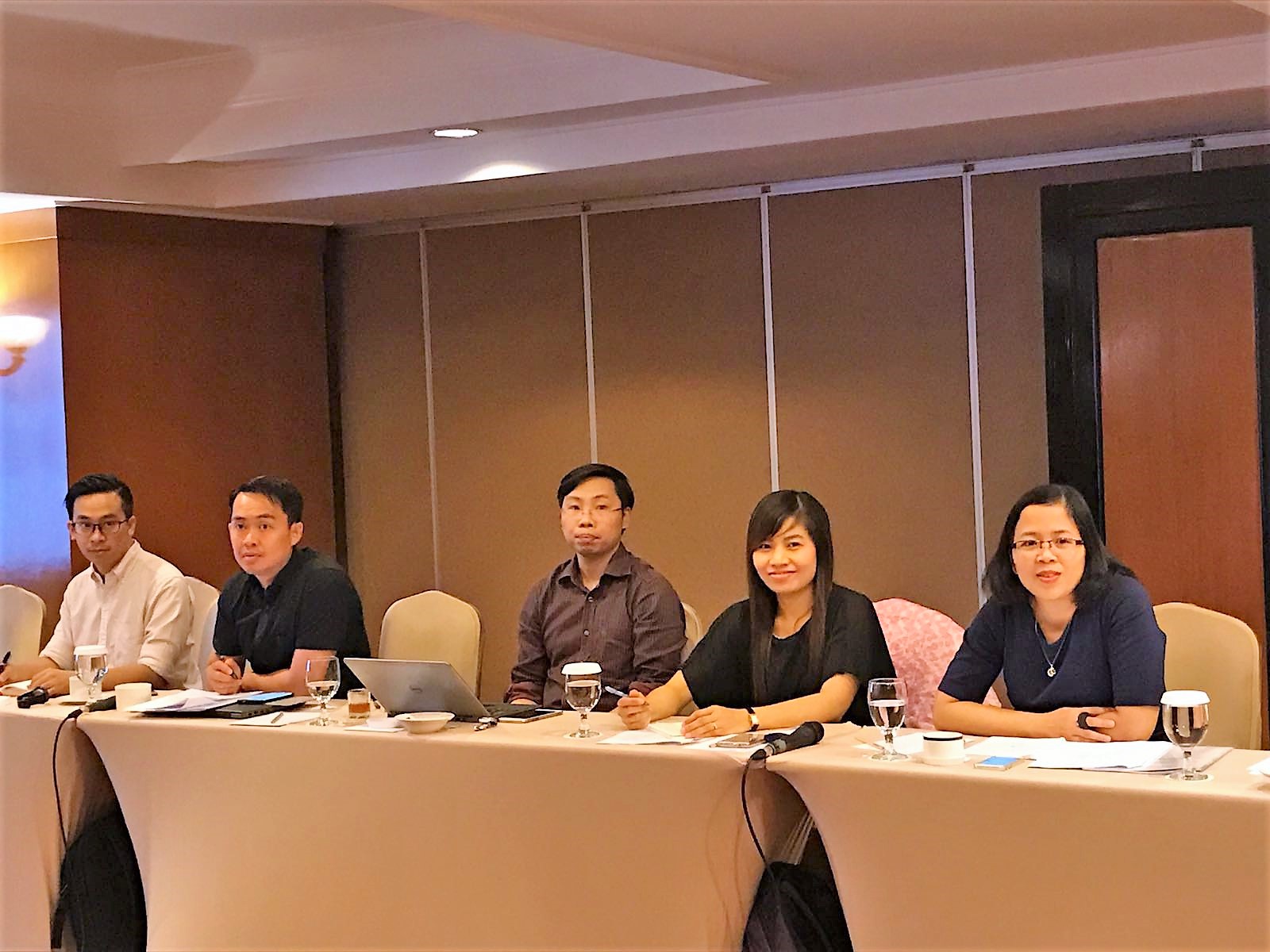
Mr Basrie Kamba, Director of Communications and External Affairs of Vale Indonesia - a leading mining company sharing about the human rights challenges in Indonesia. Human rights in Indonesia is progressing. However poor legal enforcement, corruption, and excessive overlap amongst different laws and institutions are problems common to all sectors including business. This results in legal uncertainties, additional adiminstrative costs, and bureaucracy.
The biggest human rights challenges caused by business activities in Indonesia are land issues (land rights, compensation, resettlement, land customary rights, land encroachment, in-migration, absence of documents, etc.) this uncertainty with regard to the mapping of community lands has casued or exacerbated problems for many companies, resulting in disputes with local communities. Additionallly, there is a lack of operatioinal standards pertaining to the responsibility of business entitites to the company or that would provide guidance on how business enterprises can engage with communities.
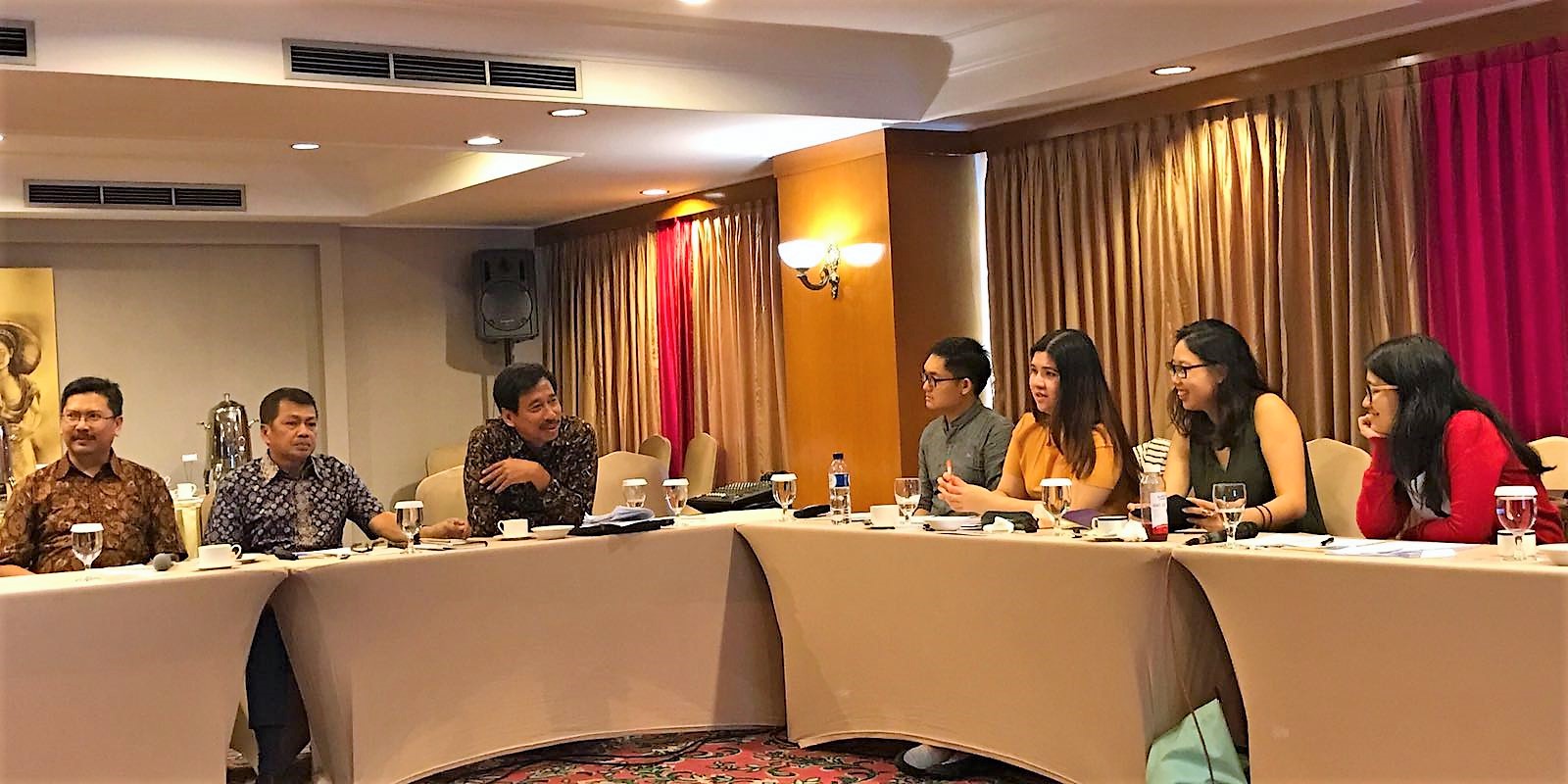
Mr Budi Kuncoro, Country Director of OXFAM Indonesia explaining about the three pillars of the UN Guiding Principles on Business and Human Rights: the State's duty to protect, the Corporate responsibility to respect, and Access to effective remedy.
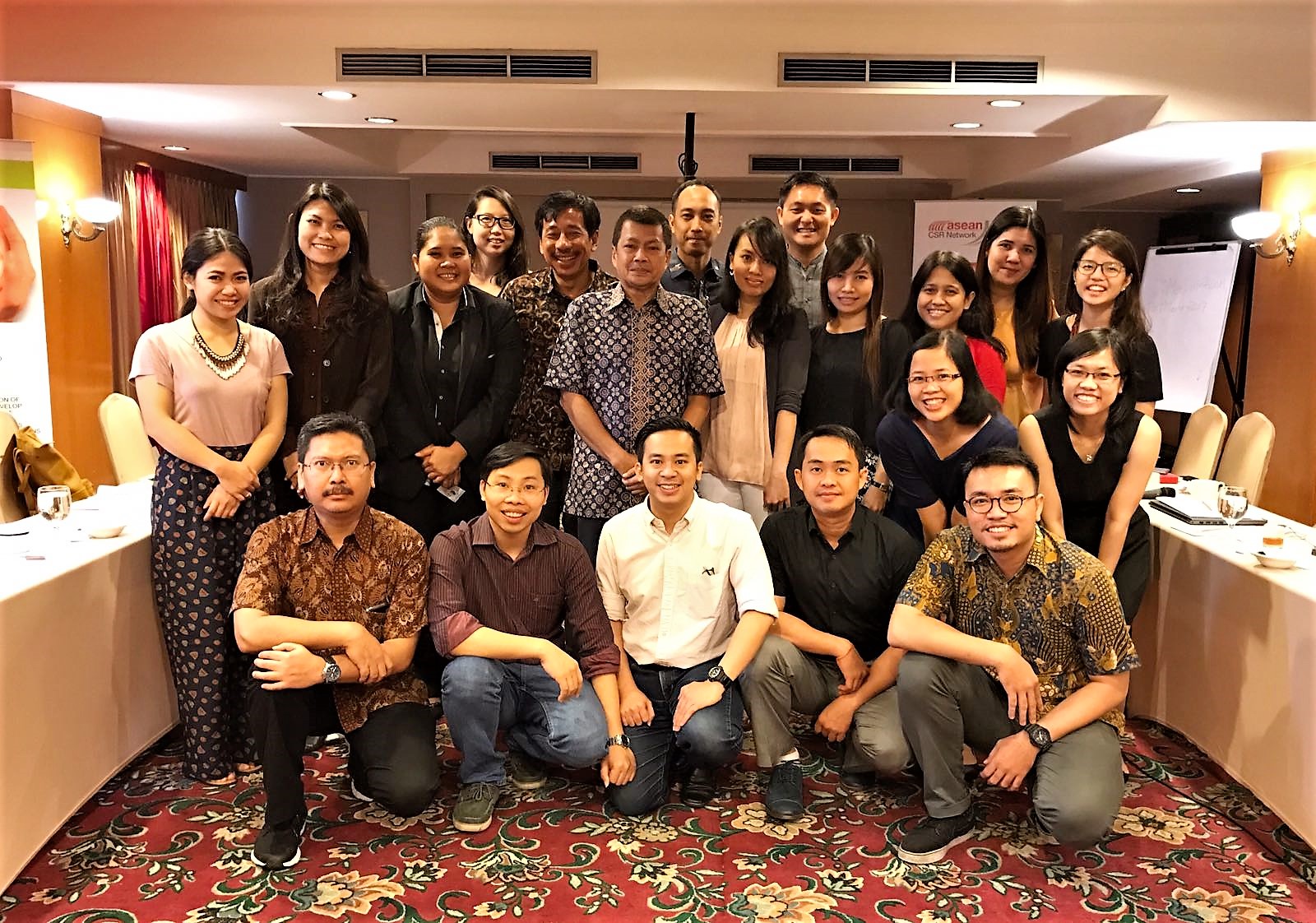
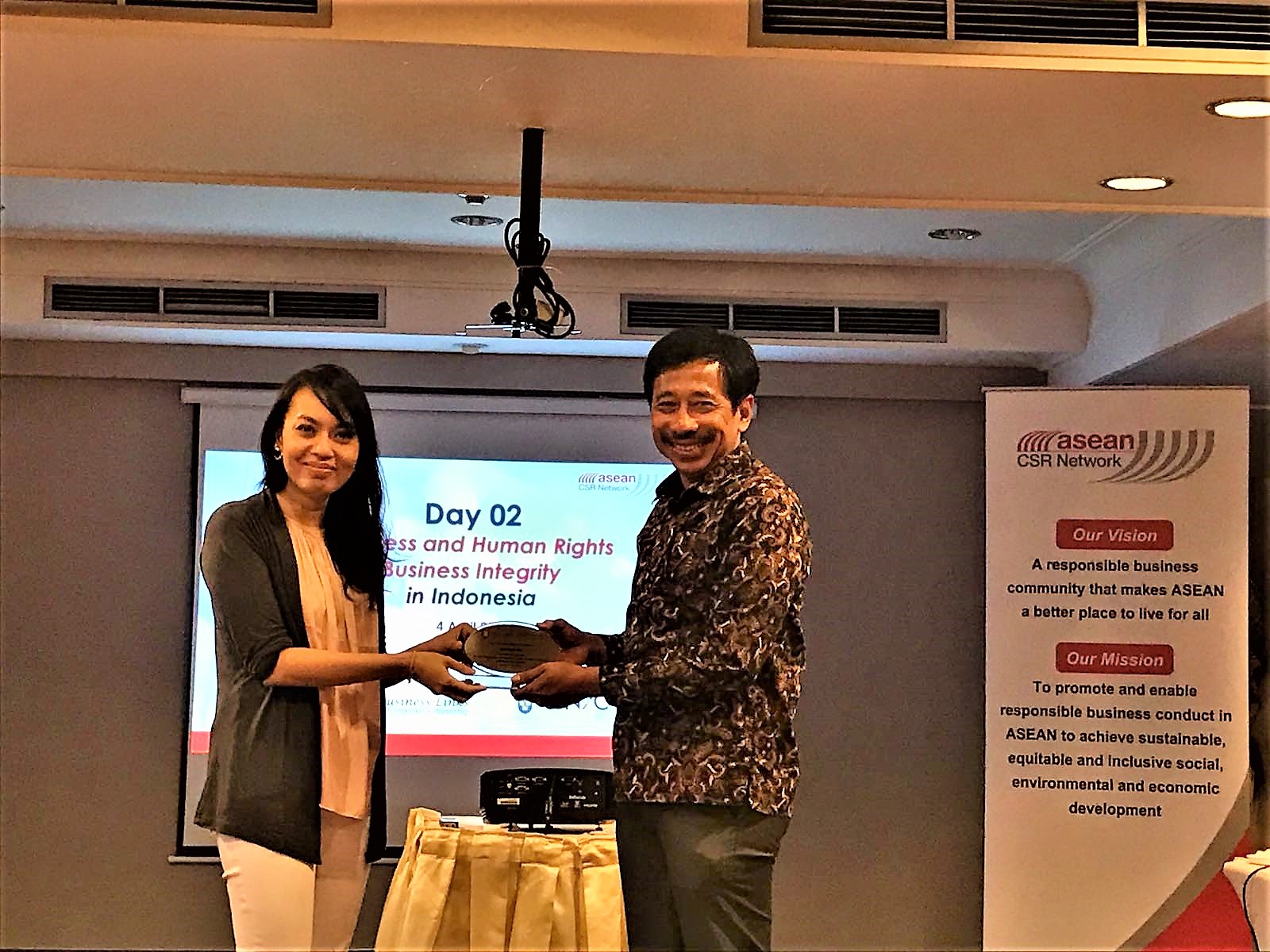
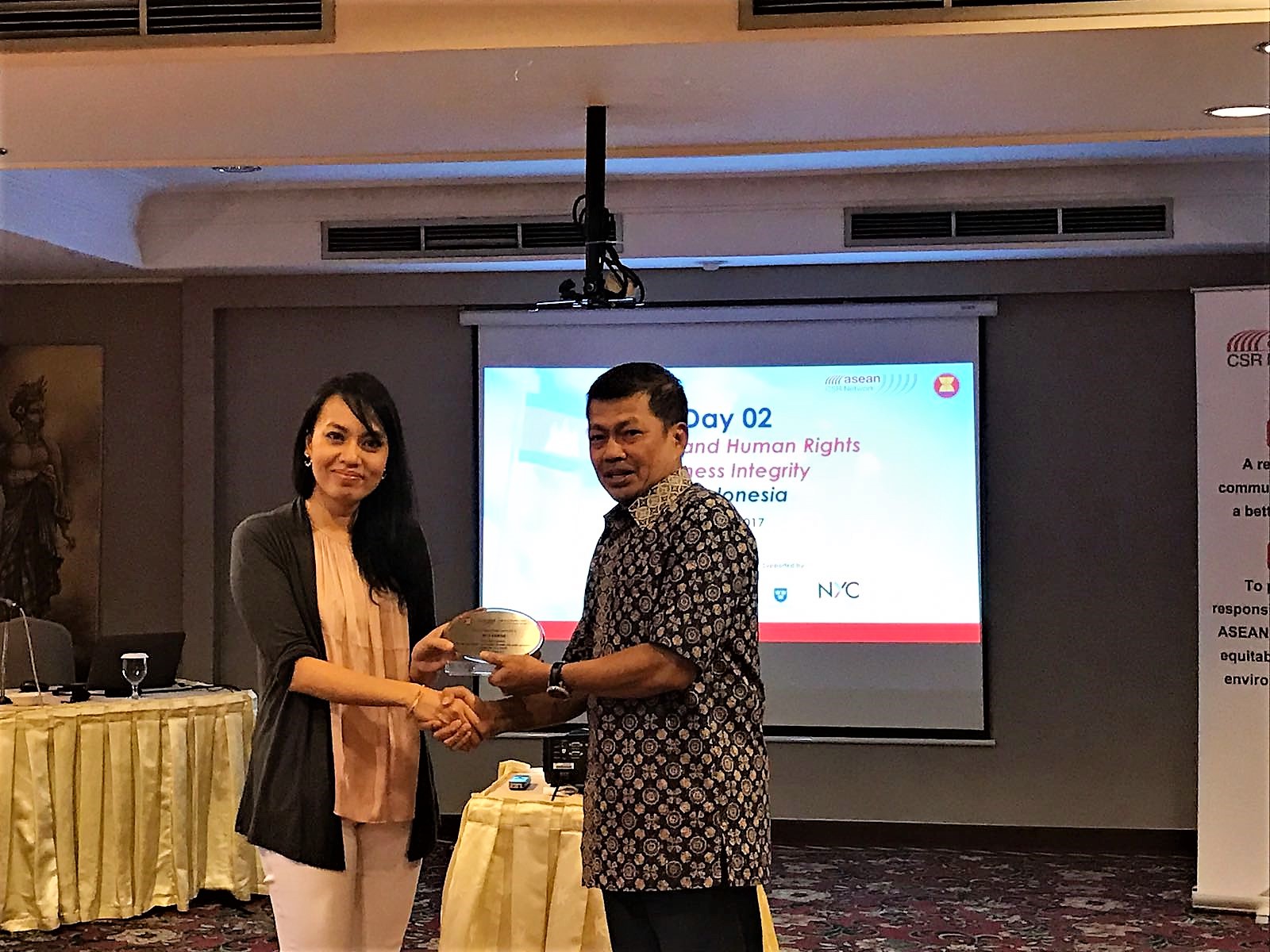
After the presentations were done, the two speakers were presented with tokens of appreciations for the time and effort they had spent educating the fellows.
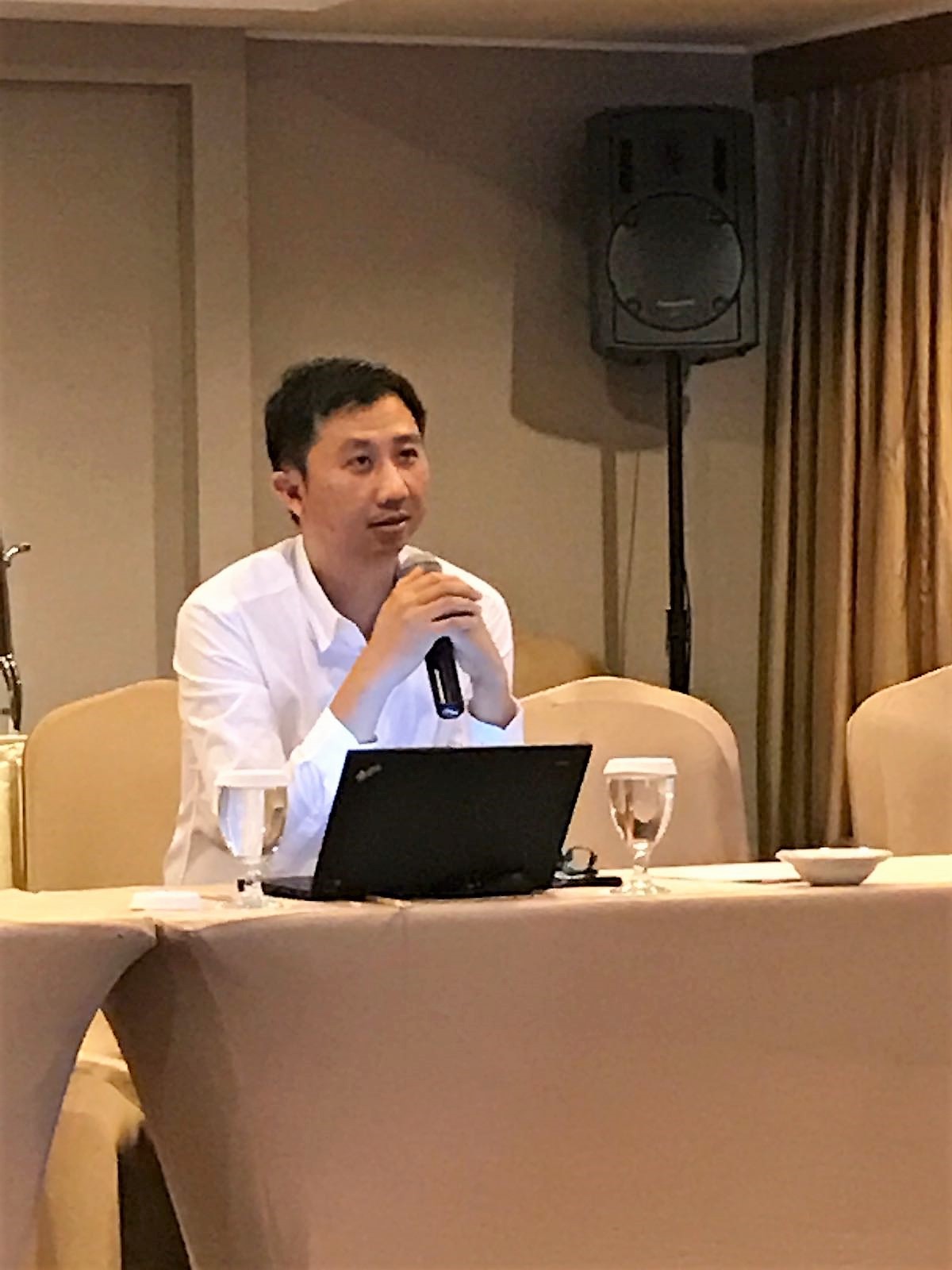
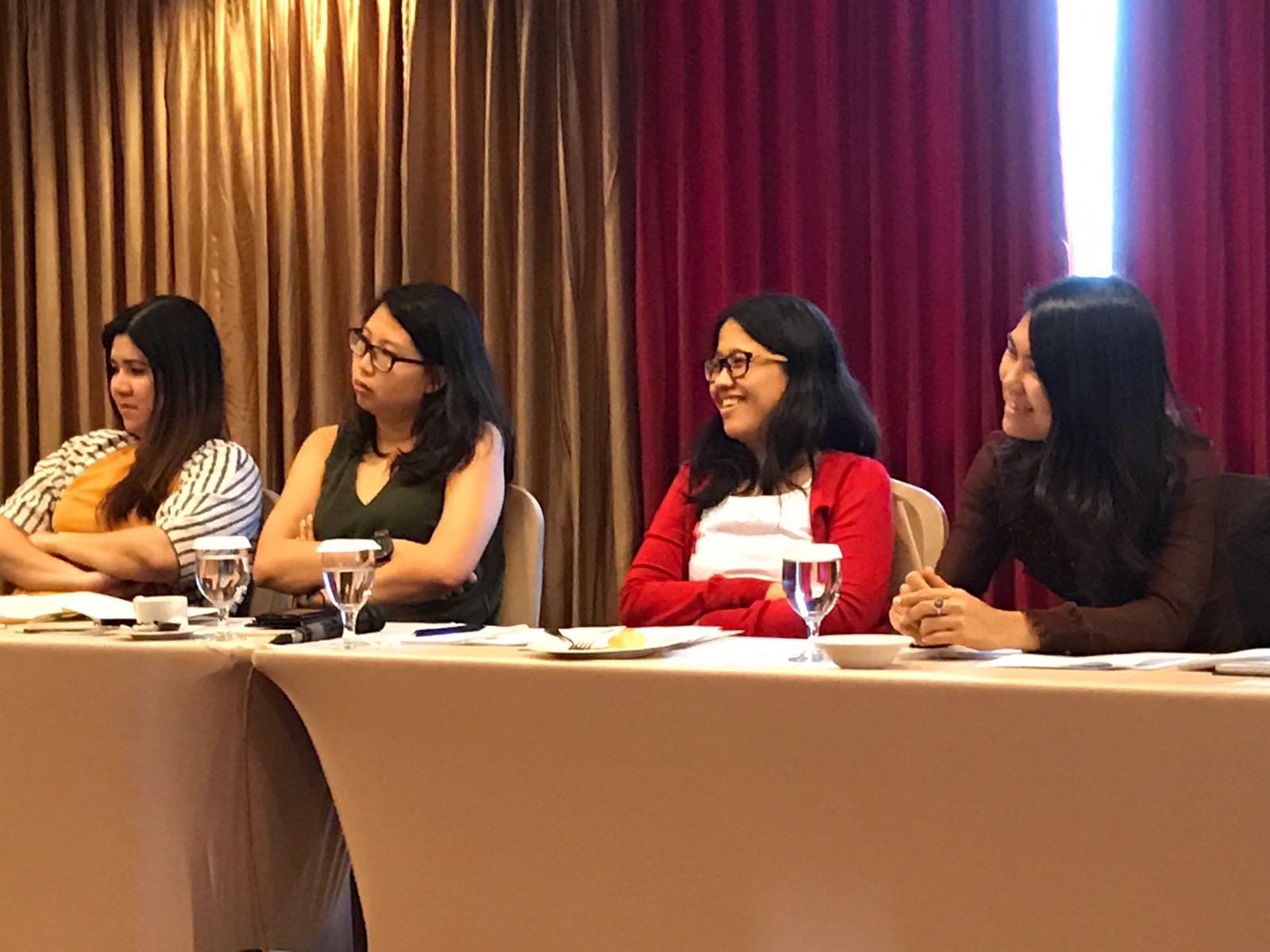
Mr Ernest Alto, Vice President, Risk and Compliance, Telkomtelstra highlighting the role of collective action and tone from the top in promoting business integrity in Indonesia
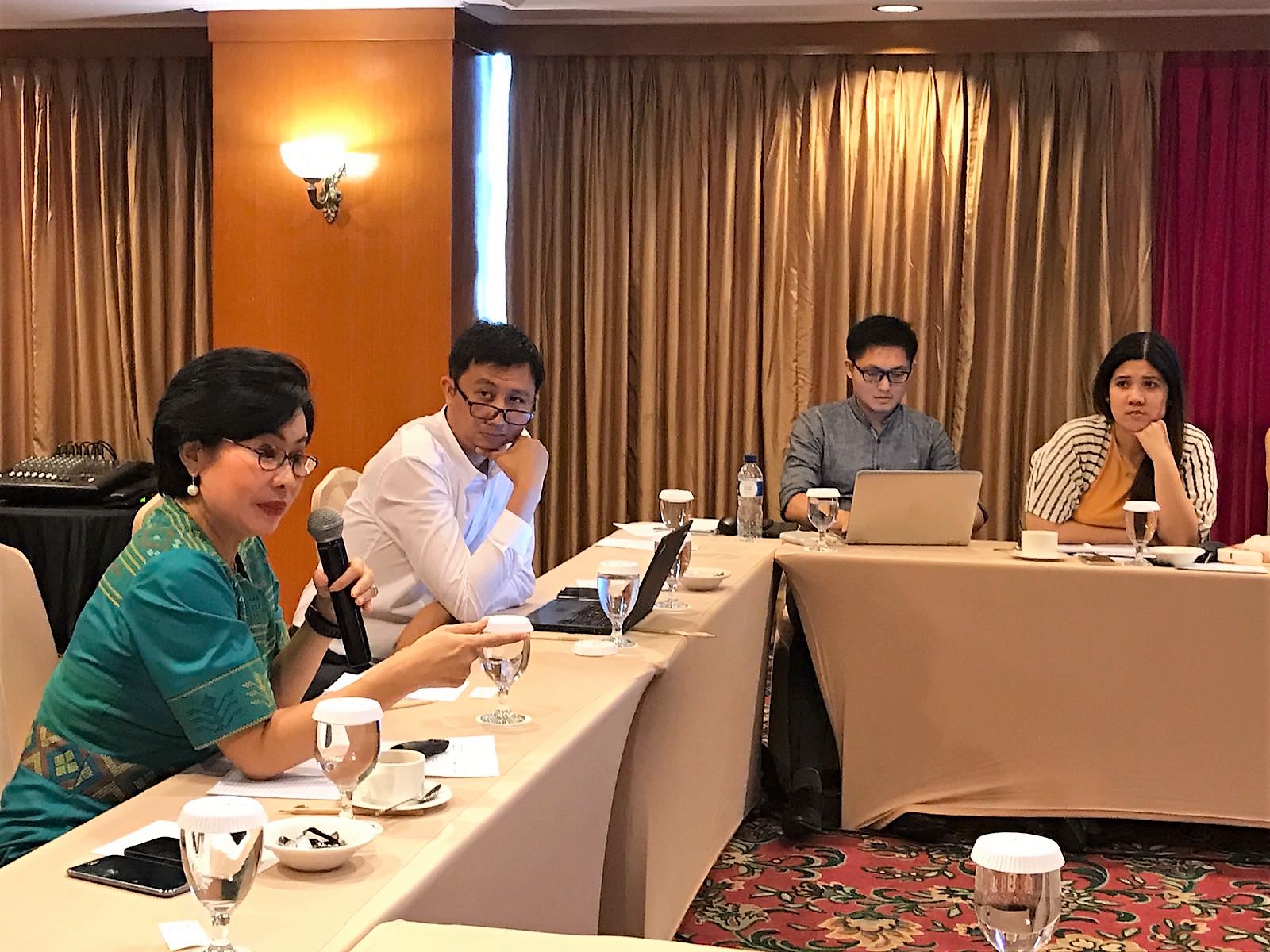
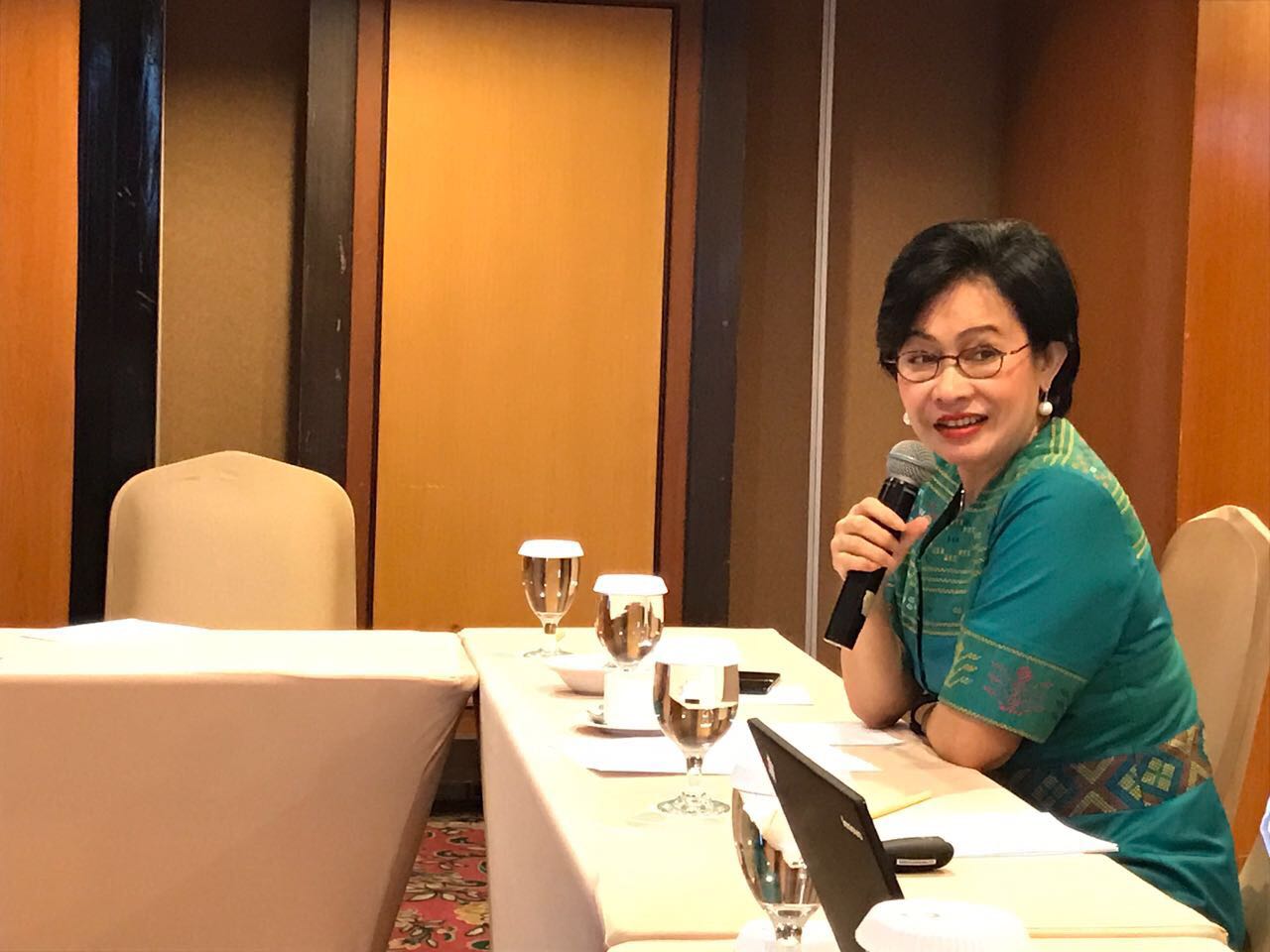
Dr Suryani Sidik F. Motik, Vice Chairman of Indonesia Chamber of Commerce and Industry (KADIN) emphasizing the role of not only internal organisation (business) but also that of external organisation (government). She said in order to run business in an ethical manner, it is important to have clear rule, regulation, and clean government.
With that, Day 2 came to a close.
Indonesia Day 3 (5 Apr 2017) - Visit to ASEAN Secretariat
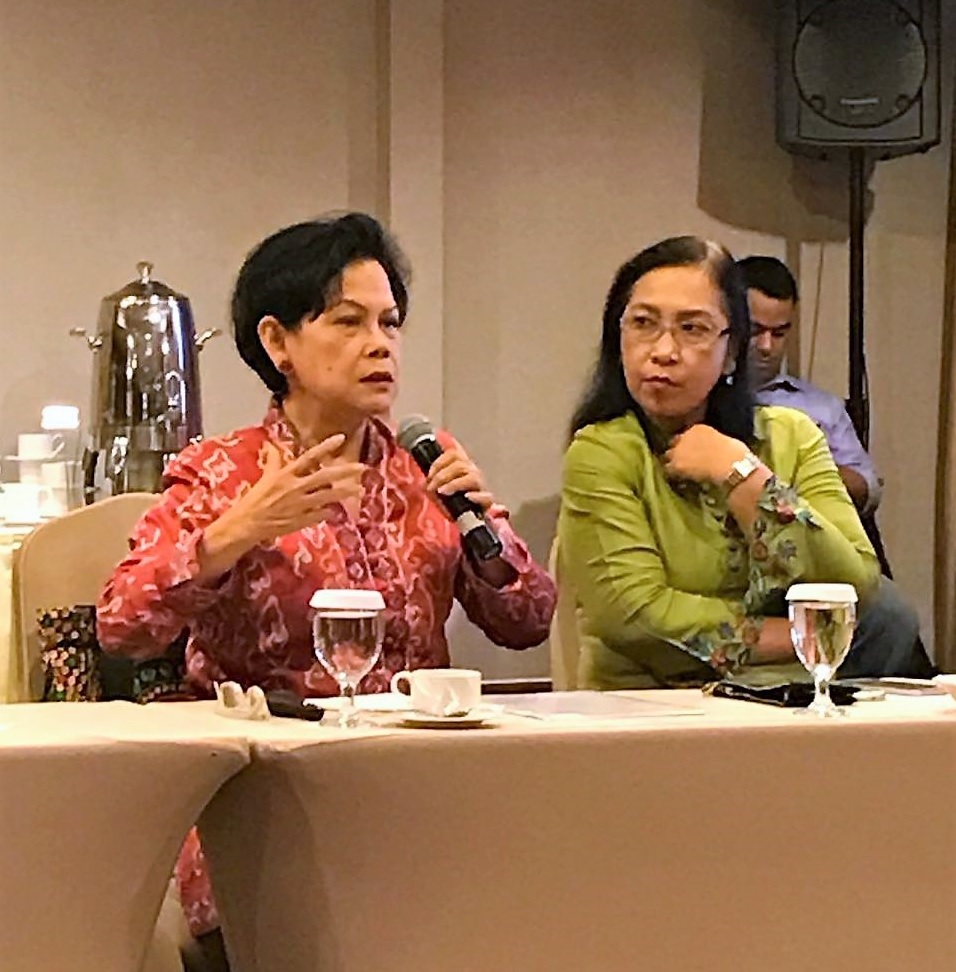
Day 3 (April 5th) of Jakarta leg of the ASEAN CSR Fellowship Programme will focus on business and environmental issues in Indonesia. Ms Erna Witoelar, Founder and Board Member of Indonesian Biodiversity Foundation (KEHATI), Co-chair of Filantropi Indonesia, former UN Special Ambassador for MDGs in Asia Pacific, highlighting key environmental challenges including unstainable consumption and production partners, overuse of non renewable energy, water pollution, wasterful lifestyles among others. Everyone is responsible for these challenges, so everyone can have a role in solving the problem
Responsible Governments can create policies and socio/economic/legal frmeworks at national and local levels. Responsible Businesses can make a big immpact and provide a balanced social, economic and environmental growth with their triple-bottom line approach. Responsible Citizens can live an environmental sound liftsyle, giving direct benefits to themselves, the community and the environment, said Ms. Erna Witoelar
Ms. Erna Witoelar emphasized that empowering women is most strategic, as there are no limitations for women's capacities to make a change and to protect Mother Earth
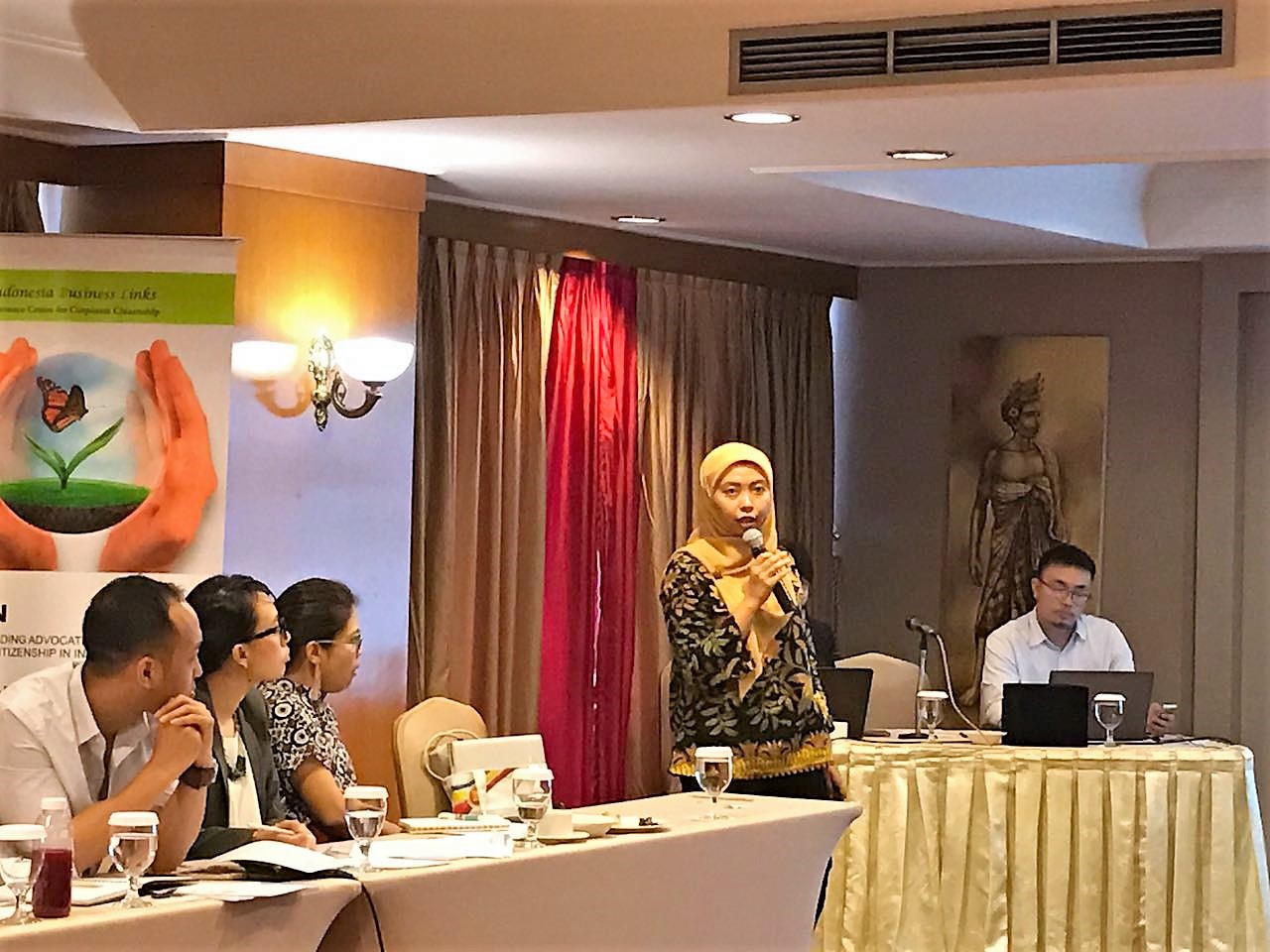
Ms Ratih Anggraeni, Senior Sustainability Integration Manager, Danone Indonesia sharing about AQUA's vision of 'creating healthier Indonesia'. In order to achieve its vision, AQUA has been promoting and providing healthy hydration in Indonesia through a number of CSR programmes such as sustainable packaging and sustainable farming. AQUA counts on continued multi-stakeholders collaboration and support to help secure and protect acess to safe water to as many Indonesians as possible, she said.
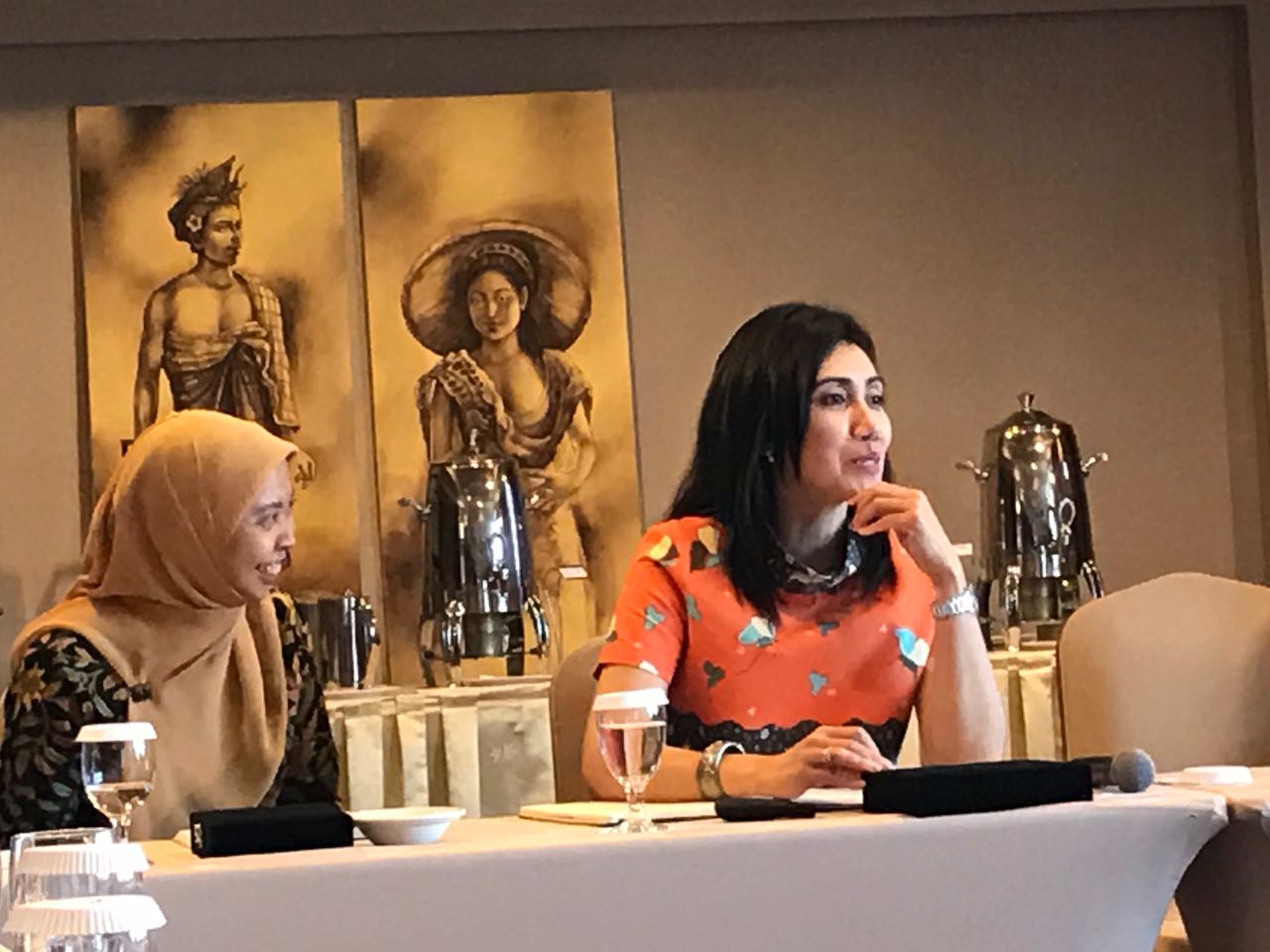
Ms Dian Novarina, Deputy Director of Corporate Affairs, Asia Pacific Resources International Limited (APRIL) sharing with the fellows about APRIL's Fire Free Village Programme (FFVP). The programme was designed to support fire detection, prevention and management, moving towards a free free and haze free environment in Indonesia. Through FFVP, APRIL engages directly with local community, community leaders and public officialls to influence people's behaviour in relation to the use of of fire at the village level and provide sustainable alternatives to land clearing with fire.
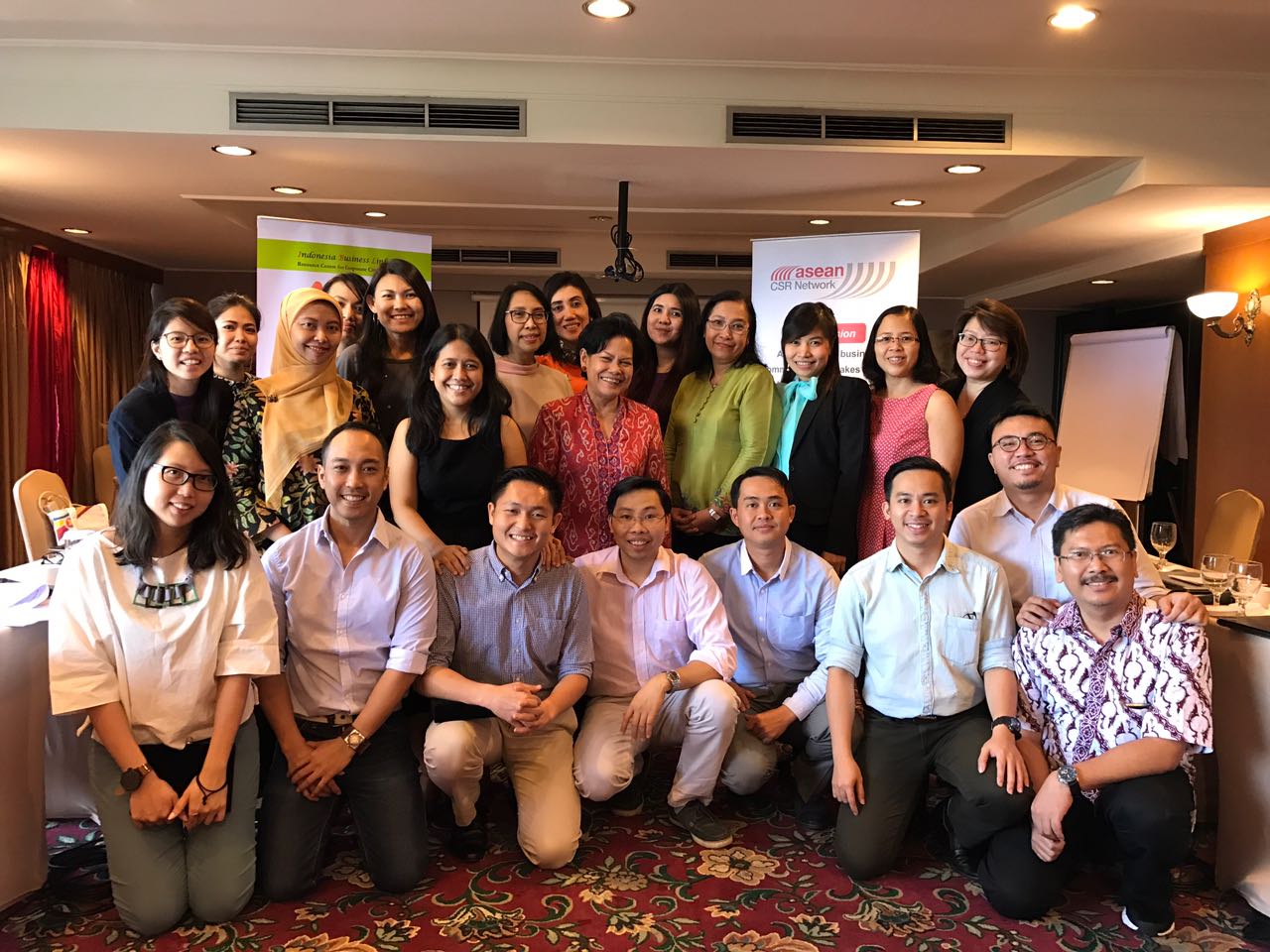
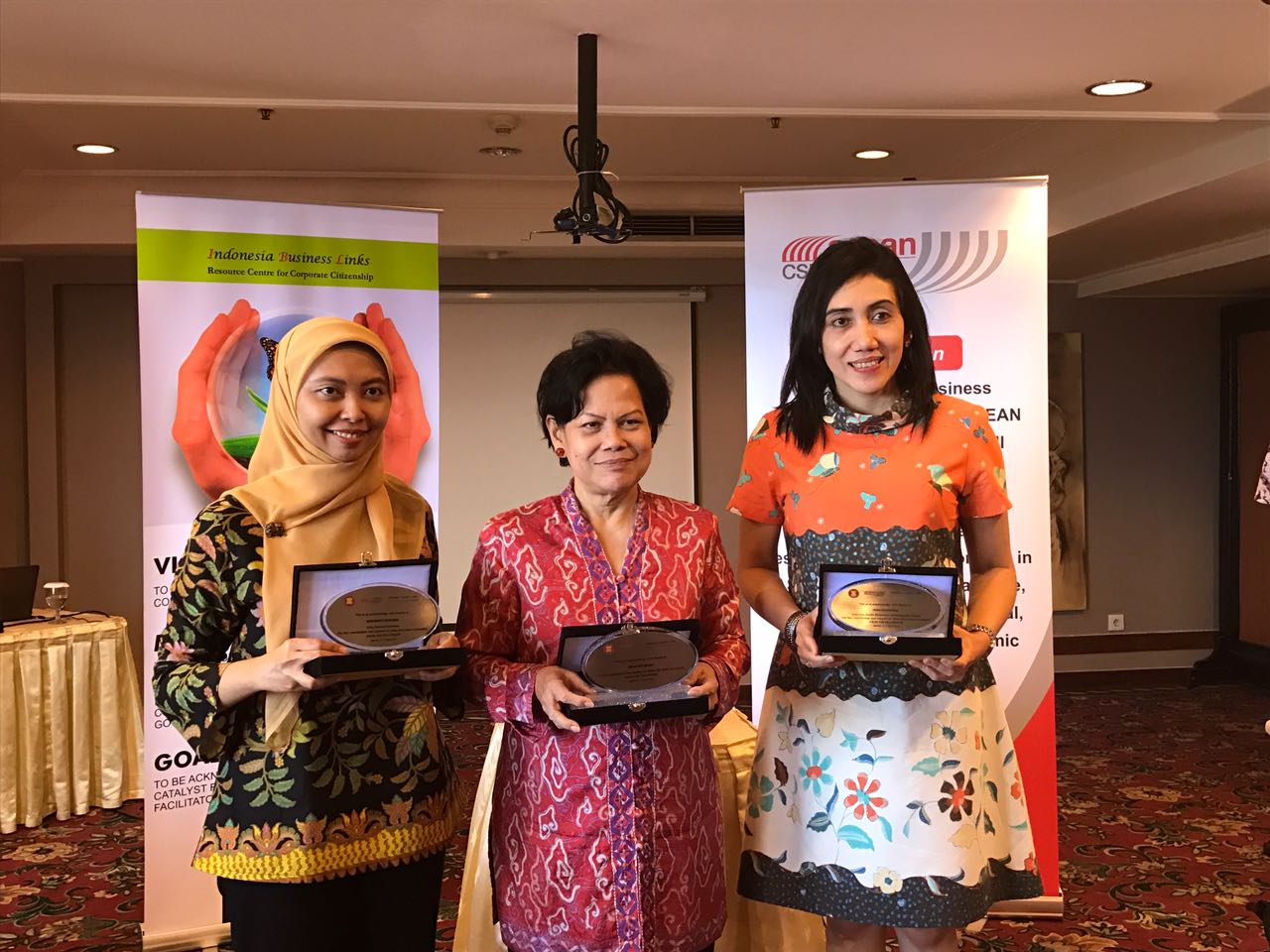
The morning session ended with a group photo and presentation of tokens of appreciation to the 3 speakers.
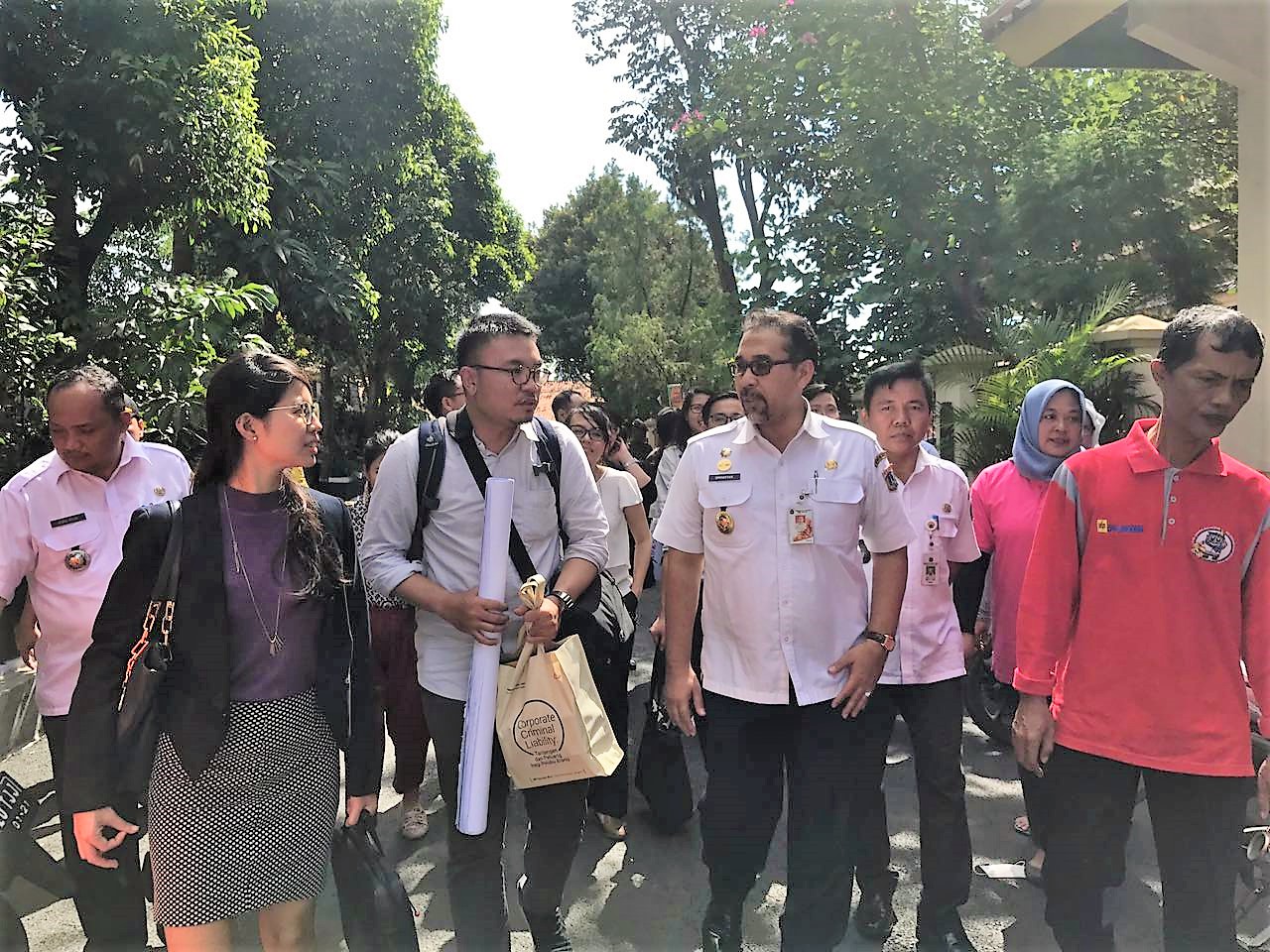
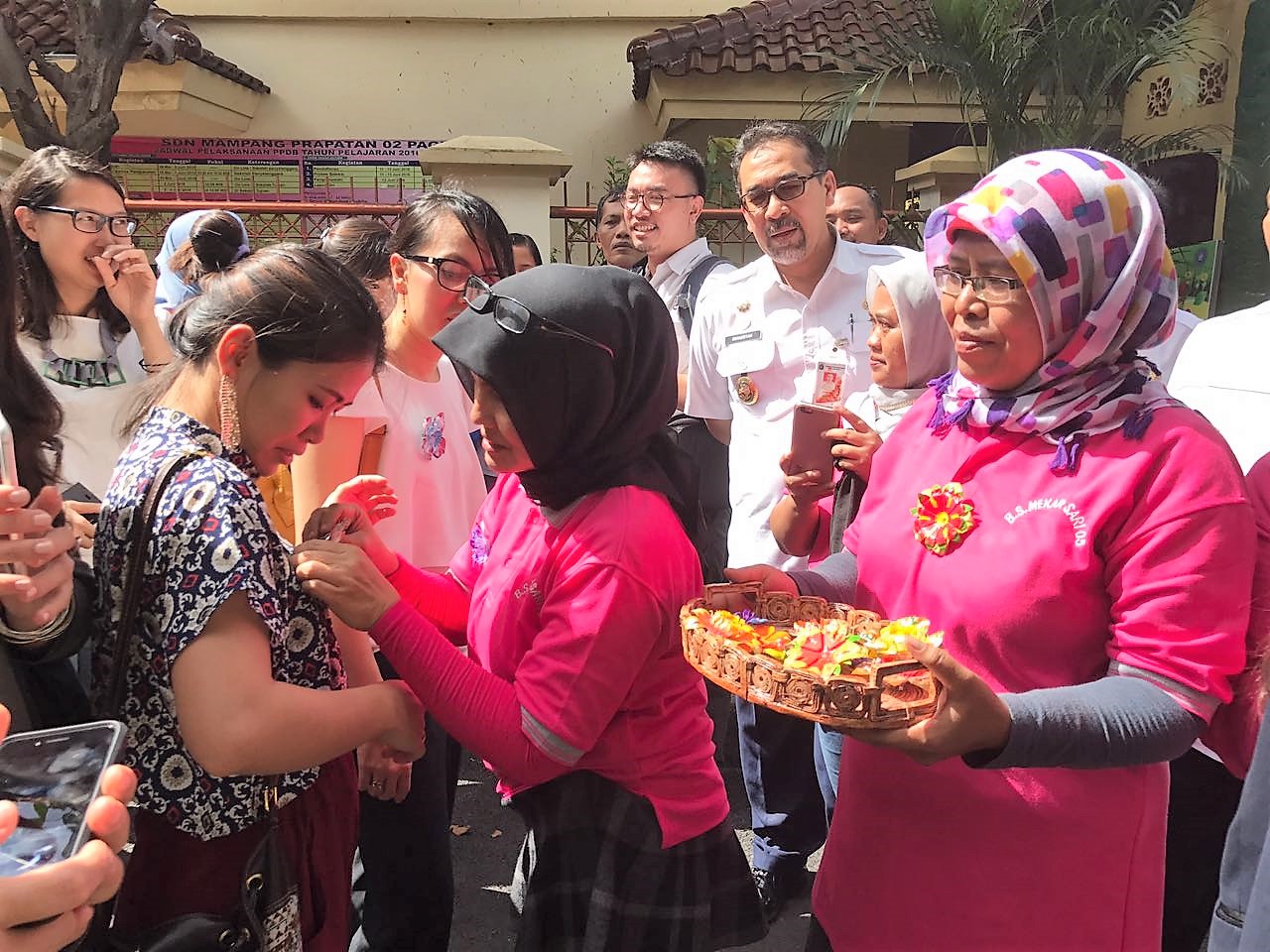
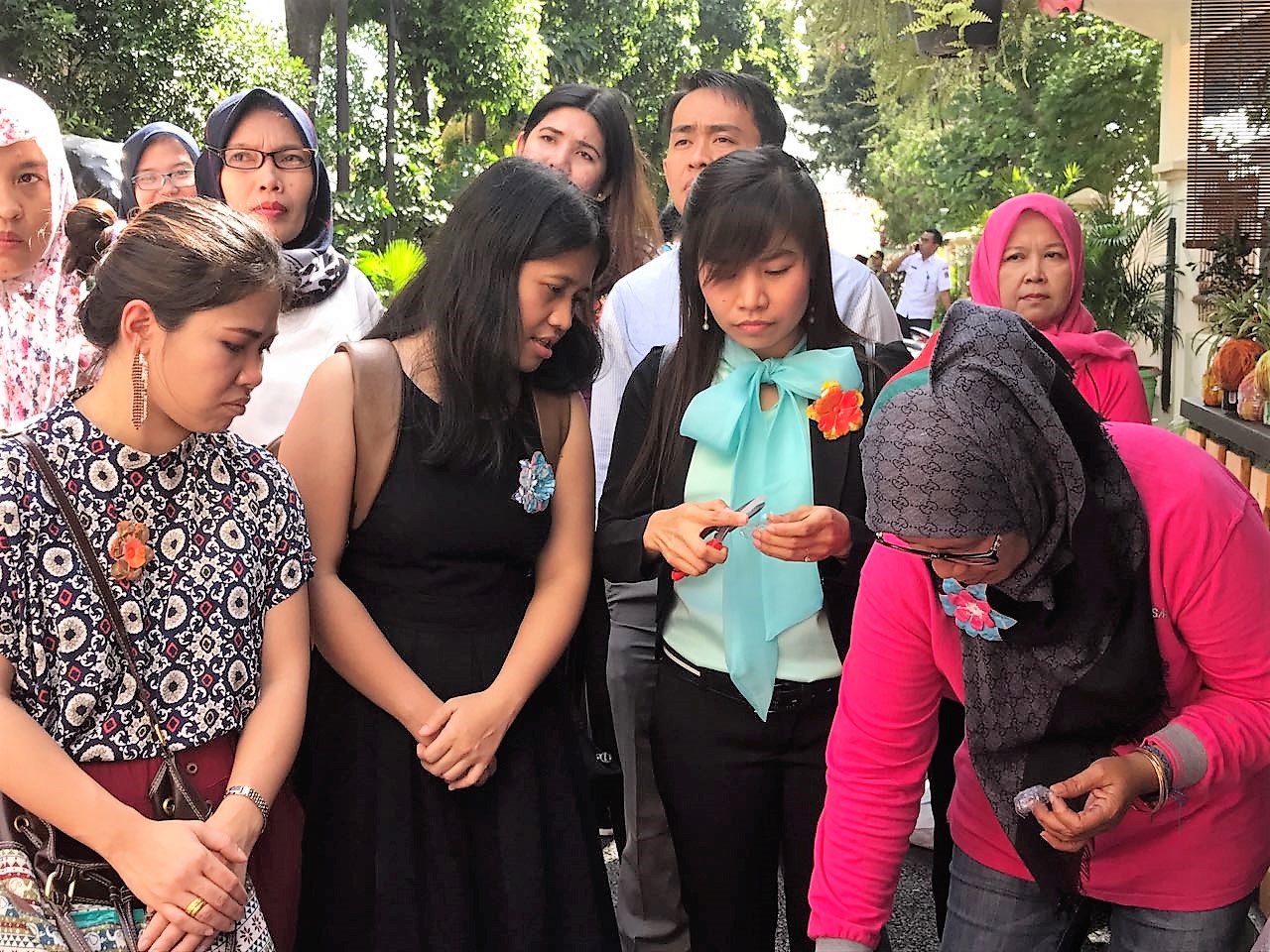
In the afternoon, the fellows visited a waste bank supported by the local government and Unilever Indonesia Foundation in Mampang, South Jakarta. Local communities are encouraged to collect inorganic waste and sell it based on its value. The money is saved within the community waste bank and can be cashed in over time. The system works like a regular bank except that waste is deposited instead of money. The fellows were welcomed by Vice Major of South Jakarta Drs. IRMANSYAH, M.Sc.
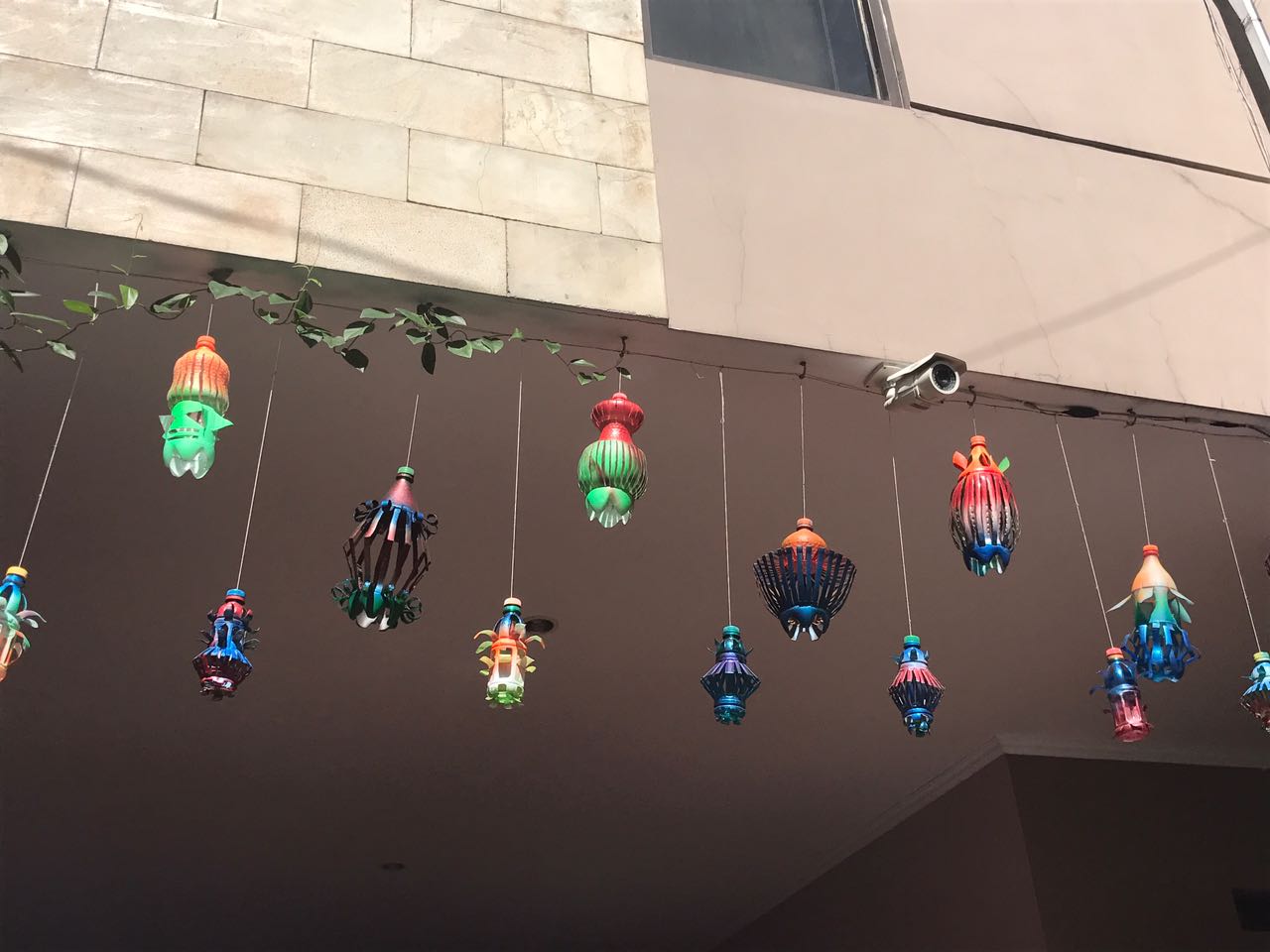
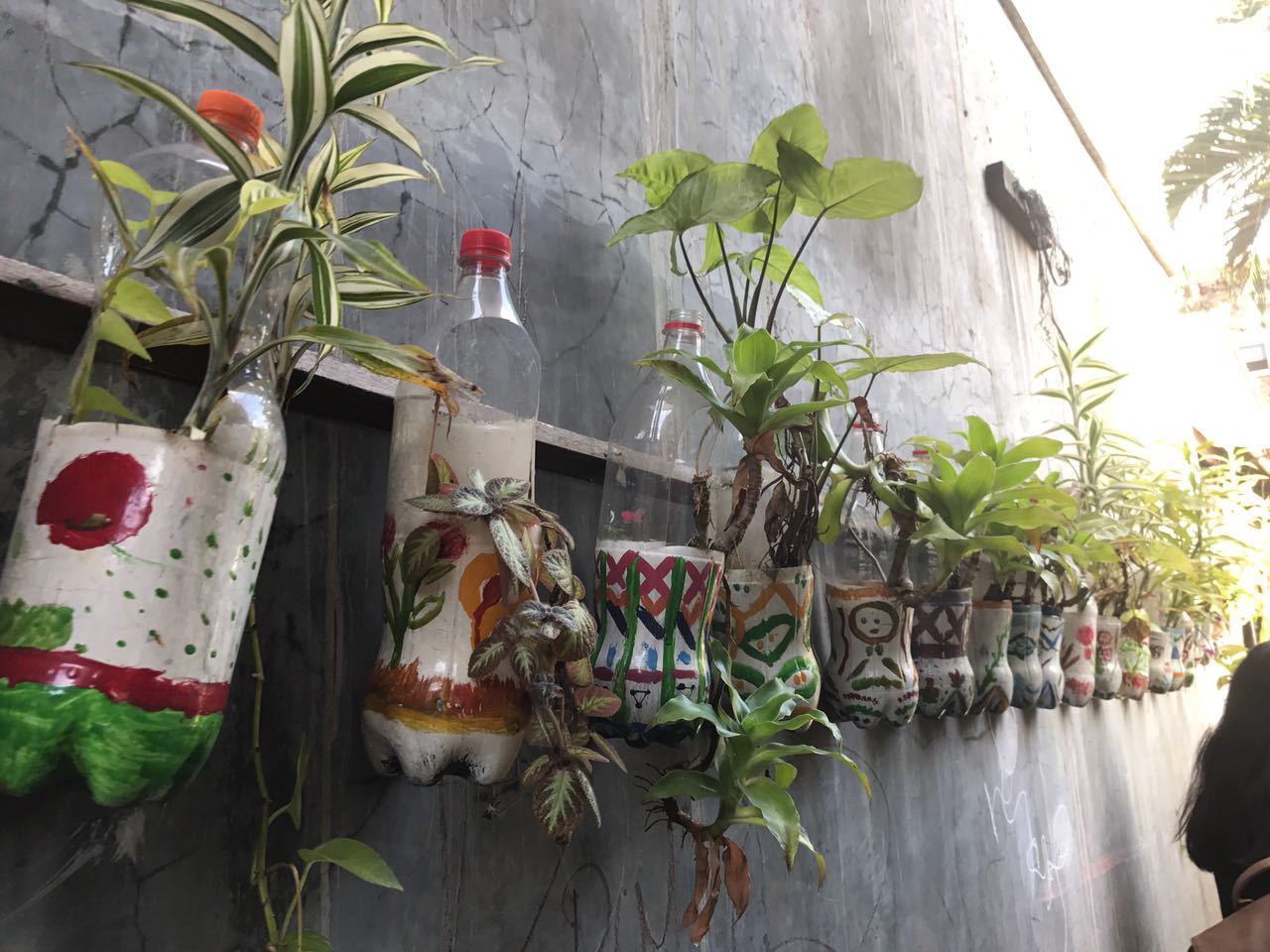
Currently there are 57 Waste Banks in South Jakarta. The local Government and Unilever are aiming to establish 125 waste banks by 2017. There are 7,000 tones of waste generated every day in South Jakarta. In 2016, 66 tons of waste had been reduced. Still there were 36,653 tons of waste that couldn't be recycled
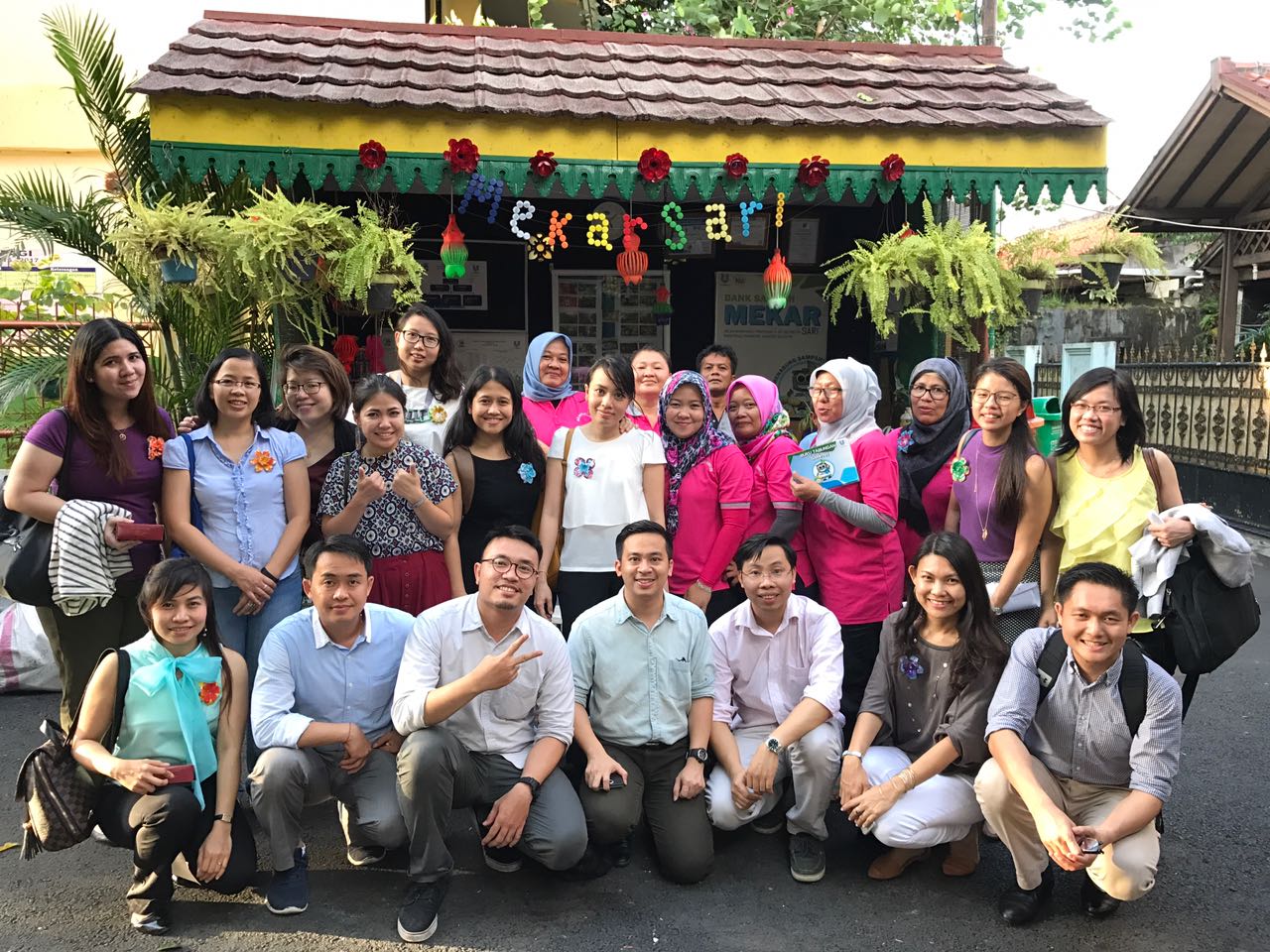
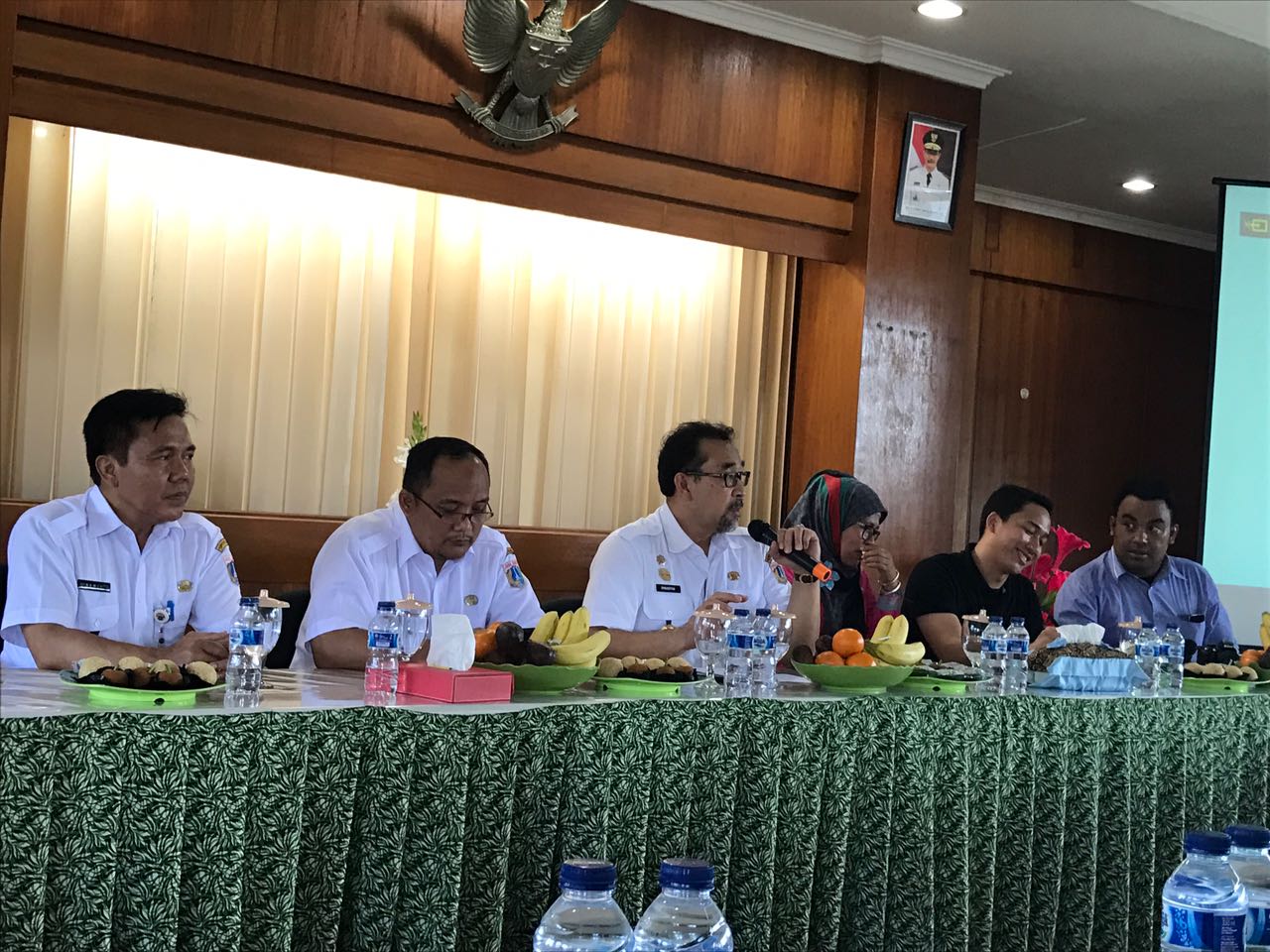
The waste bank is a typical example of how multi-stakeholders collaboration, with the support from the government, the responsibility of the private sector and the participation of communities, can benefit the local communities and help protect environment. Companies like Unilever and its partners in this programme such as Danone/AQUA can also promote a more sustainable production and packaging
Profiles of the Fellows:
|
|
Dini Triyuni, WWF-Indonesia Dini is an accountant-turned-conservationist, believing in her responsibility to engage in social and environmental causes. After receiving a scholarship to undertake a Masters in University of New South Wales in Sydney, she gained particular interest in a module she took on Reporting for Climate Change. After graduating, she decided to work for WWF-Indonesia as a Grant Officer. One of her current responsibilities is to analyse project financial performance and act as an intermediary between donors and project staff involved in project reporting. In addition to working as a grant officer, she continues to increase her depth of knowledge in CSR issues, with ambitions to work on sustainability projects at WWF-Indonesia, particularly related to sustainable finance. |
|
|
Nguyen Dung Tien, ILO-IFC Joint Programme on Better Work Indonesia Tien is an Enterprise Advisor of the ILO-IFC Joint Programme on Better Work in Vietnam. He provides assessment and advisory services for garment and footwear factories in Vietnam to ensure that they comply with national and international labour standards, as well as meet CSR requirements for international buyers. Prior to joining Better Work Vietnam, he worked for the Ministry of Labour, War Invalids and Social Affairs of Vietnam (MOLISA). During his service for MOLISA, Tien engaged in international cooperation activities on labour law development, international labour standards and trade. He also took part in the negotiation for a number of free trade agreements, including TPP and Vietnam-EU FTA. Mr. Tien holds a MSc. Degree in Globalisation and Development from the University of Manchester, UK, where he studied labour law compliance in Vietnam’s garment sector. He also has an Executive Master Degree in Labour Economics jointly issued by Science-Po Paris and University of Turin, where he conducted research about labour policies and returns to education in Vietnam’s labour market. Before joining MOLISA, Mr. Tien was a lecturer of English Language and Translation studies at the University of Foreign Languages and International Studies of the Vietnam National University, where he graduated with a B.A. degree in Translation and Interpretation. |
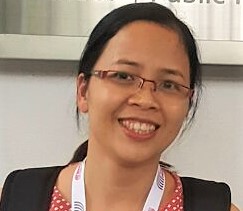 |
Nguyen Thi Bich Hien, IUCN (Vietnam) Hien works for the International Union for Conservation of Nature (IUCN) as a Project Manager of the Ha Long–Cat Ba Alliance Project. She is responsible for engaging with businesses to encourage environmentally-friendly business practices and catalyse public-private partnerships to improve environmental management, especially to protect the natural integrity of the Ha Long Bay World Heritage Site. Before taking over this project, she was in charge of managing a Small Grant Facility under the Mangroves for the Future Programme, which issued grants to local organisations, including social enterprises to undertake on-the-ground projects towards sustainable development of coastal areas. |
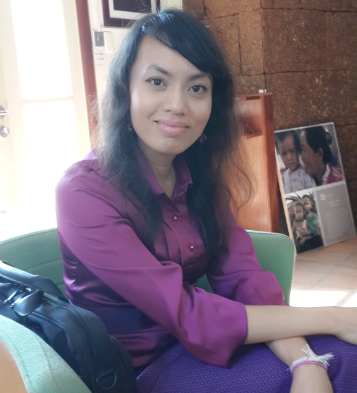 |
Philaiphone Vongpraseuth, CEO of Phousy Construction and Development Public Company (Laos) Philly is an MBA Graduate from Australia with diverse experiences in both development and private sectors for more than ten years. She is currently a CEO of Phousy Construction and Development Public Company. She is very passionate about CSR and wanted to incorporate CSR into her organisation to create equal opportunity and better living conditions for her staff. |
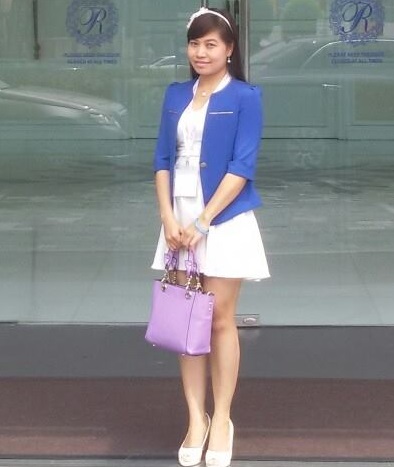 |
Pidor Chhay, Transparency International (Cambodia) Pidor is a Business Integrity Senior Programme Officer for Transparency International Cambodia. Before joining TI Cambodia, she spent three years with the United Nations Development Programme Cambodia (UNDP) in the Poverty Portfolio. Prior to that, Pidor worked as a Research Assistant for an independent research institute, Cambodia Development Resource Institute (CDRI). In terms of private sector experience, she was previously the deputy-owner of an import-export company. Overall, she has more than 7 years of professional experience in the areas of good governance, poverty monitoring and analysis, rural livelihood development, social development, and private sector development. She graduated with a Bachelor degree from the National University of Management in Phnom Penh, Cambodia, where she was awarded a scholarship to complete her studies. |
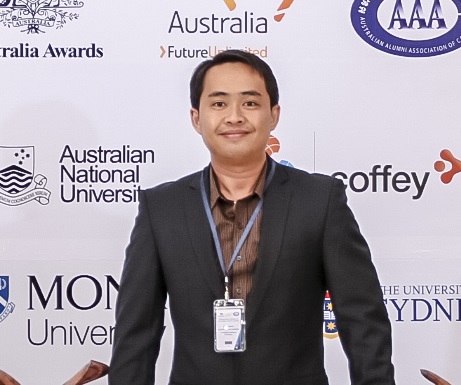 |
Sambath Bun, G Gear Company (Cambodia) Sambath is currently the Assistant to the CEO of G Gear Company, a private company in Cambodia. He assists the CEO on various aspects, particularly on strategic, planning and policy of the company as well the Young Entrepreneurship Association, whom the CEO is the president of. Sambath is mainly responsible for the CSR activities of G Gear, and moved to the private sector after close to 10 years working for NGOs, embassies and the government. Sambath has an M.A. in Public Policy in Development Policy and Graduate Diploma in Public Administration from Australian National University, and a B.A. in Education in English Teaching and Information Technology. He has been working on development issues, especially youth empowerment and education including monitoring, evaluation and budget management at local NGOs and international institutions. He has extensive knowledge on community and social development, and has spent his time organising many national and regional youth forums and meetings. |
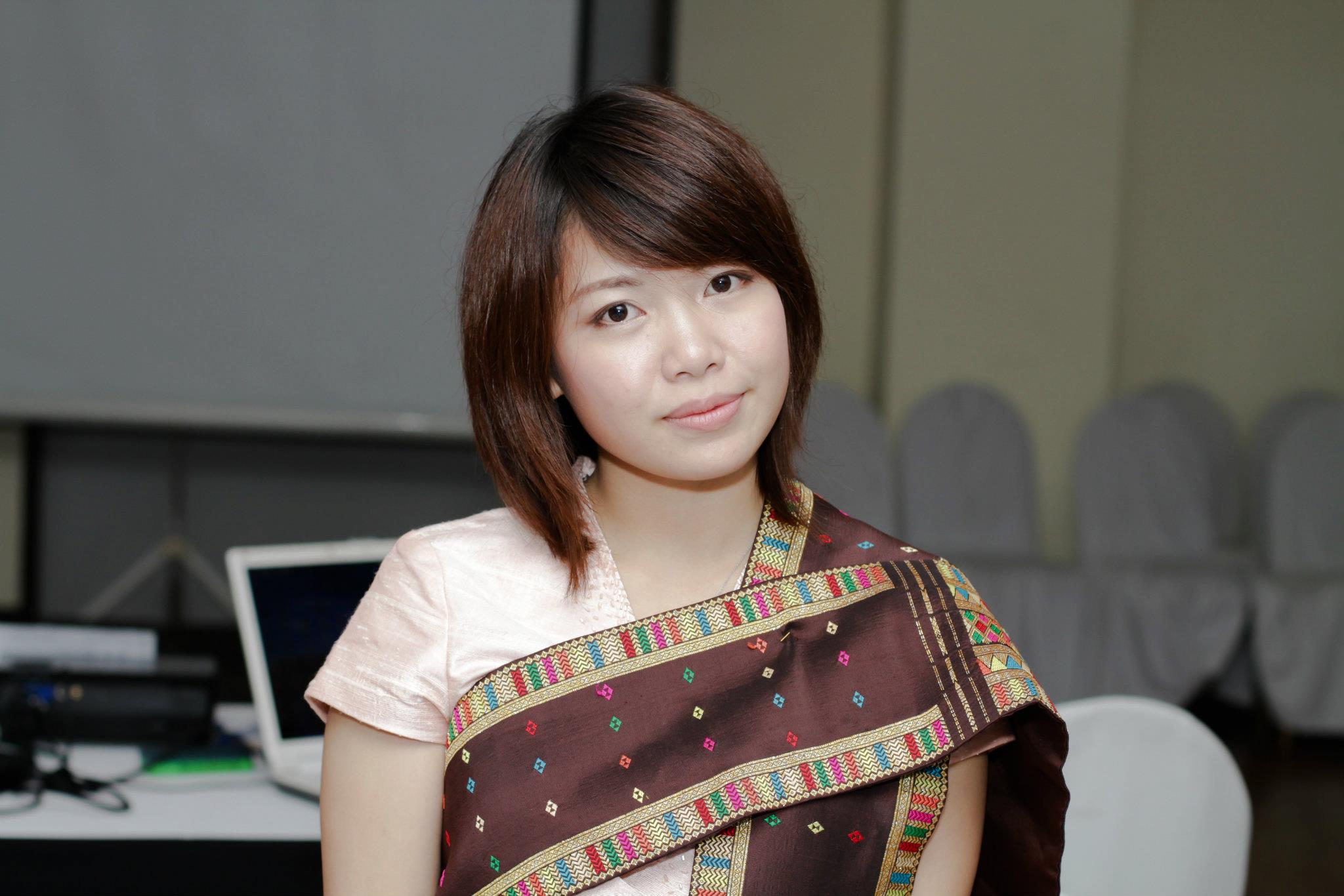 |
Vanida Khouangvichit, Village Focus International (Laos) Vanida works for Village Focus International (VFI), an NGO working to promote land rights for local communities to address increasing resettlement and loss of access to land and natural resource due to large-scale land concessions. Her responsibility includes engaging with the private sector, especially agribusinesses, with an aim to improve companies’ land acquisition processes, community consultation processes, and grievance redress mechanisms, to ensure local participation and improve land tenure security faced by communities. Vanida holds an MA in Anthropology from North Carolina State University, and was awarded the Fullbright Foreign Student Programme Scholarship.
|
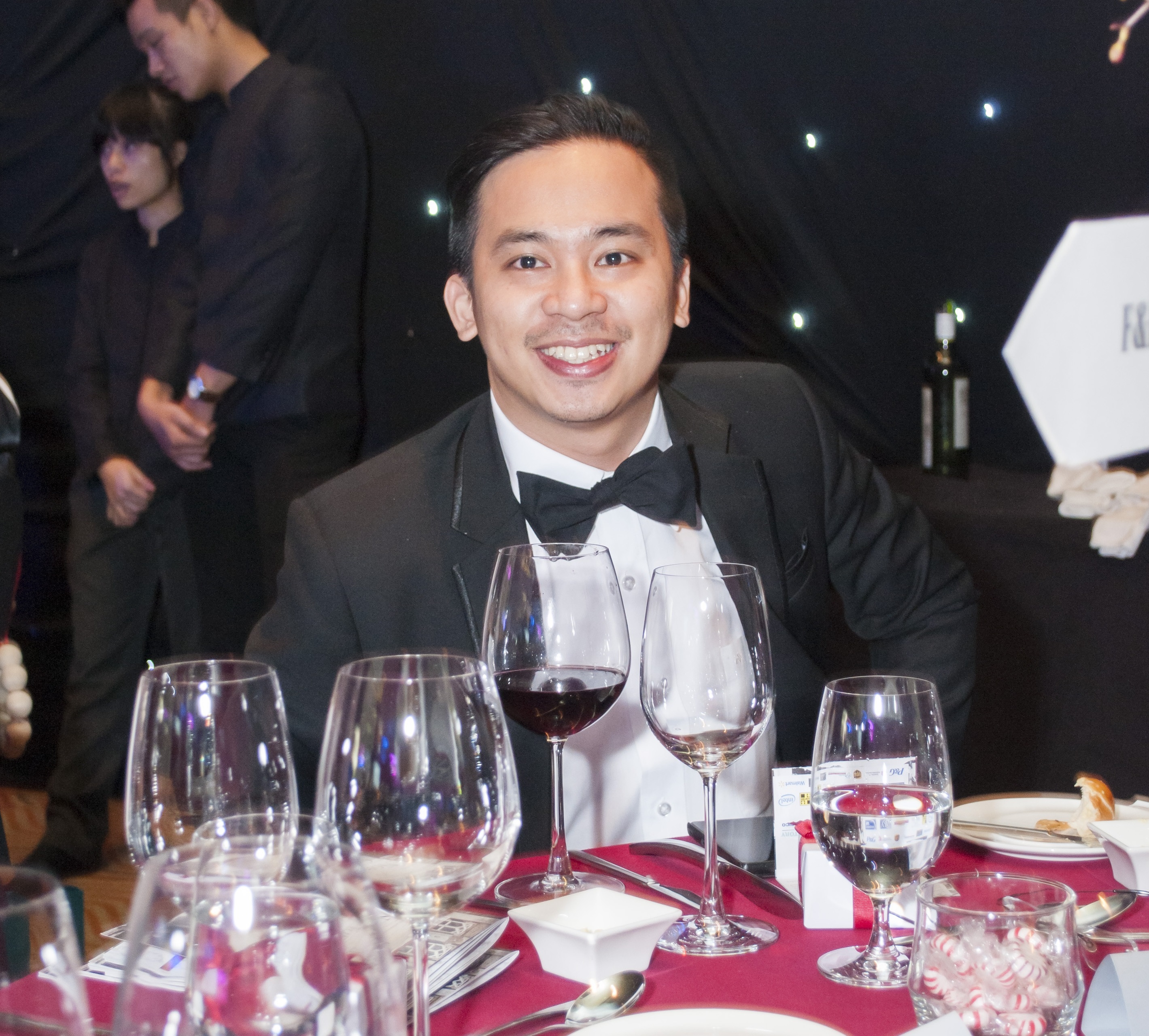 |
Vo Ly Hoai Vinh, Coca-Cola Vietnam Vinh has strong experience in Sustainability, Stakeholder Engagement, and Public Affairs. He is currently working as the Sustainability Officer at Coca-Cola Vietnam, leading a national CSR flagship program EKOCENTER, as well as the other 3W objectives of Coca-Cola: Water - Women - Well-being. Vinh also contributes to corporate reputation by supporting businesses to win Sustainability Awards in Vietnam. He has worked with key partners ranging from government bodies, civil societies to academia, in creating a stronger synergy for shared social goals. Before joining Coca-Cola, he worked for the American Chamber of Commerce in Vietnam as a Program Executive in CSR and Industry Committees. Vinh holds a Bachelor Degree in International Economics and another Degree in Law. His personal motto says: “If you want to go fast, go alone. If you want to go far, go together”. |
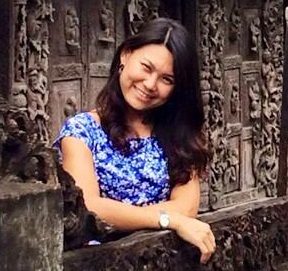 |
Zin Mar Lwin, Norwegian People's Aid (from Myanmar, but based in Laos) Zin works for Norwegian People's Aid, an international NGO which develops long-term sustainable development programs with a focus on environment, resources management, human rights, democratisation, capacity building and empowerment for local organisations. As the International Finance Manager, she is responsible for the sound financial management of the organisation, as well as leads the national team to support more than 30 civil society organizations in the areas of governance and accountable financial management. She holds an Executive Master of Business Administration and Bachelor of Development Studies from Yangon Institute of Economics, Myanmar. |
Vinh has strong experience in Sustainability, Stakeholder Engagement, and Public Affairs. He is currently working as a Senior Sustainability Officer at Coca-Cola Vietnam, leading a national CSR flagship program EKOCENTER, as well as the other 3W objectives of Coca-Cola: Water - Women - Well-being. Vinh also contributes to corporate reputation by supporting businesses to win Sustainability Awards in Vietnam. He has worked with key partners ranging from government bodies, civil societies to academia, in creating a stronger synergy for shared social goals. Before joining Coca-Cola, he worked for the American Chamber of Commerce in Vietnam as a Program Executive in CSR and Industry Committees. Vinh holds a Bachelor Degree in International Economics and another Degree in Law. His personal motto says: “If you want to go fast, go alone. If you want to go far, go together”.

